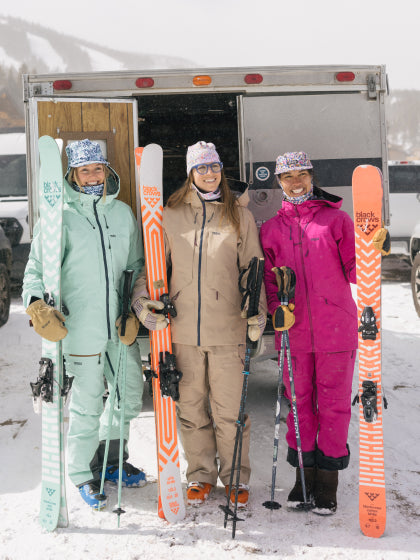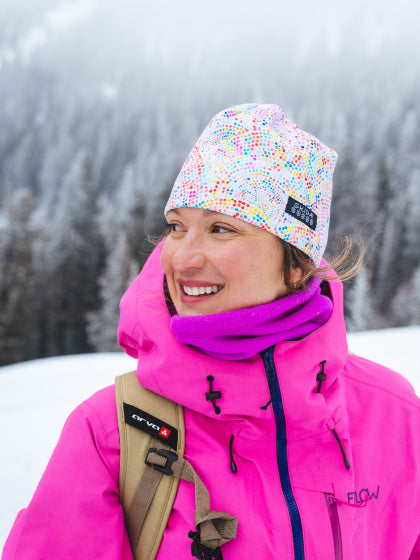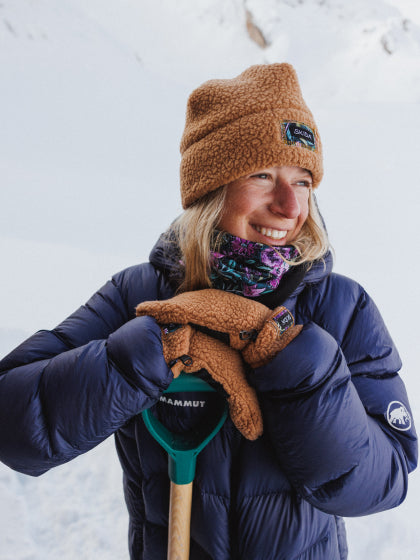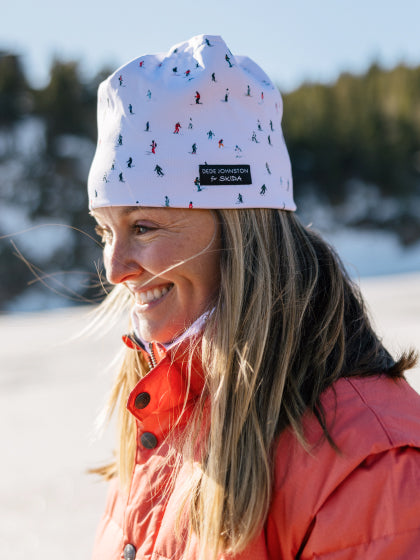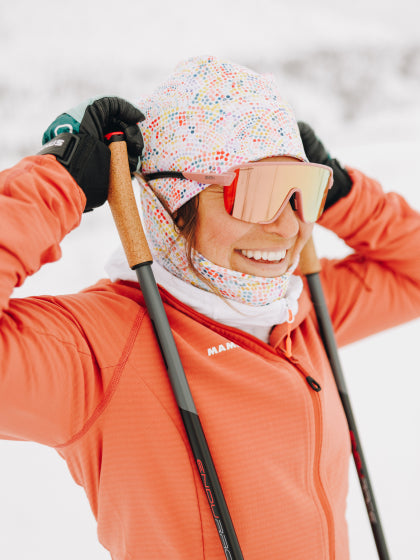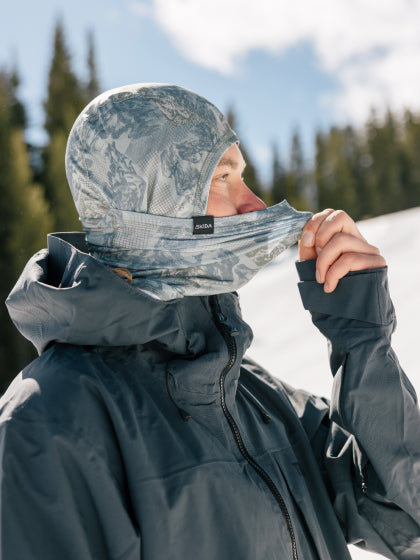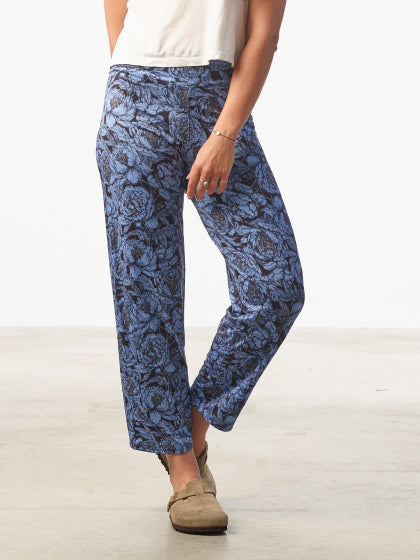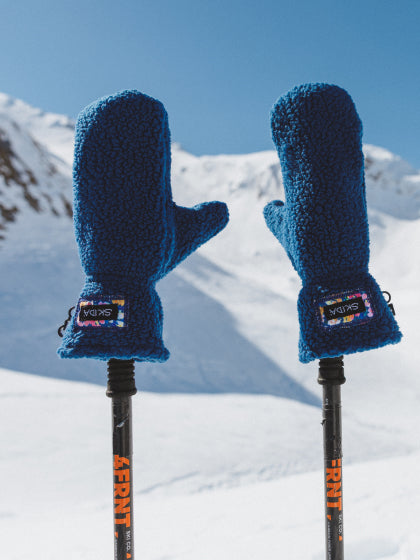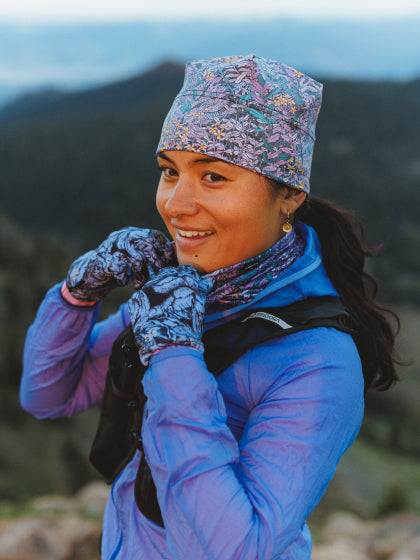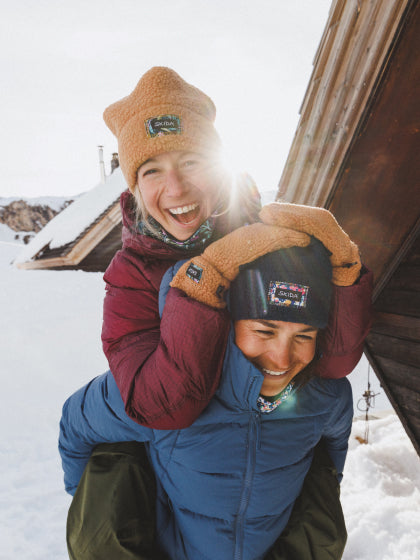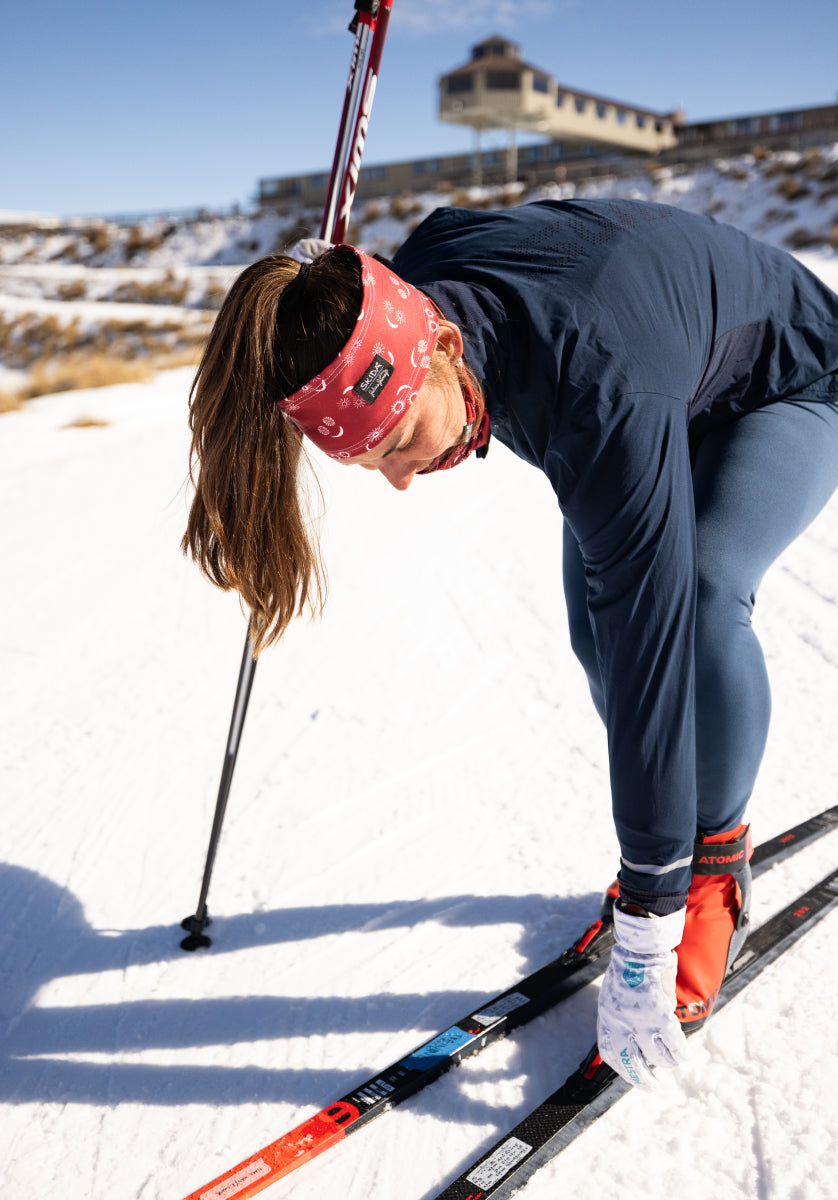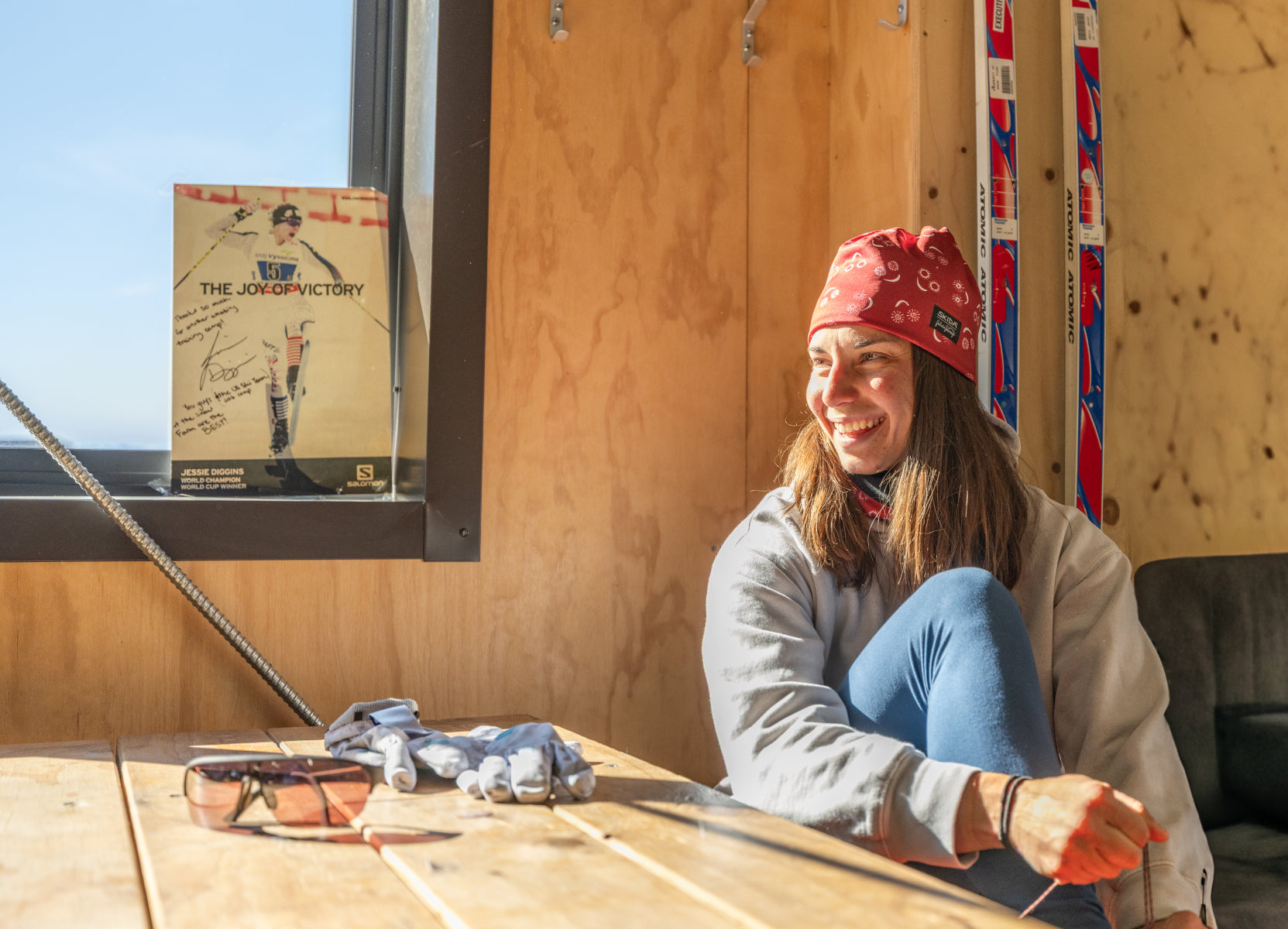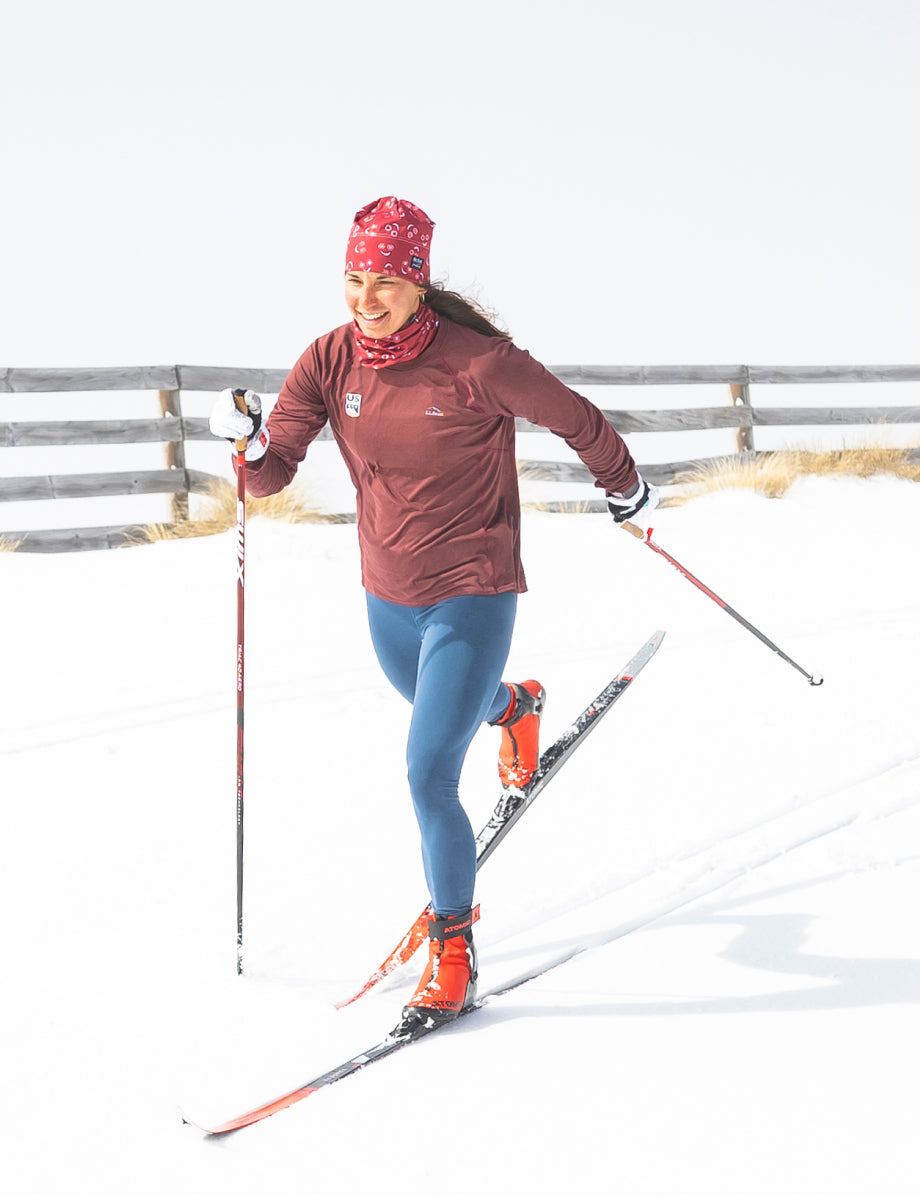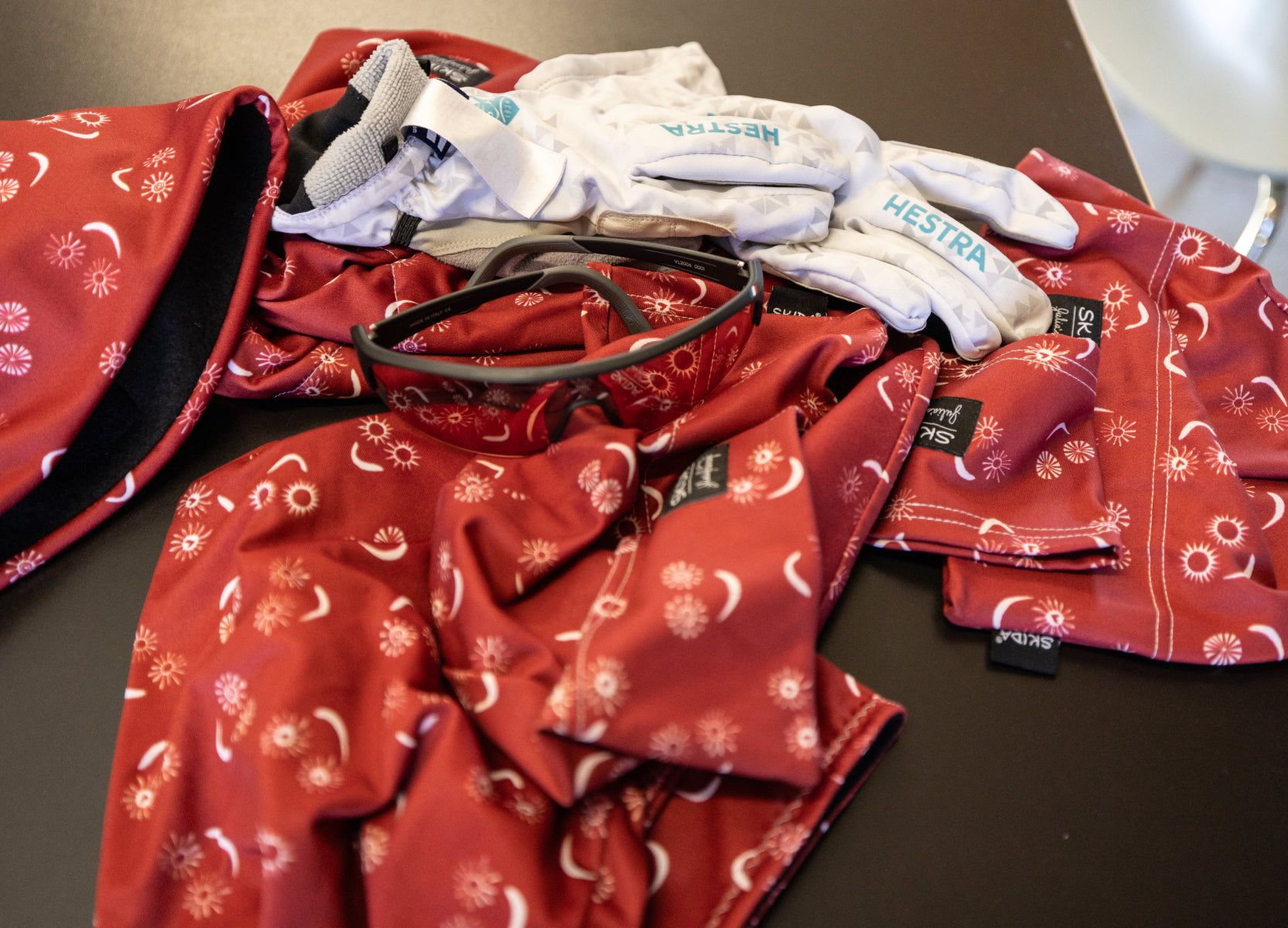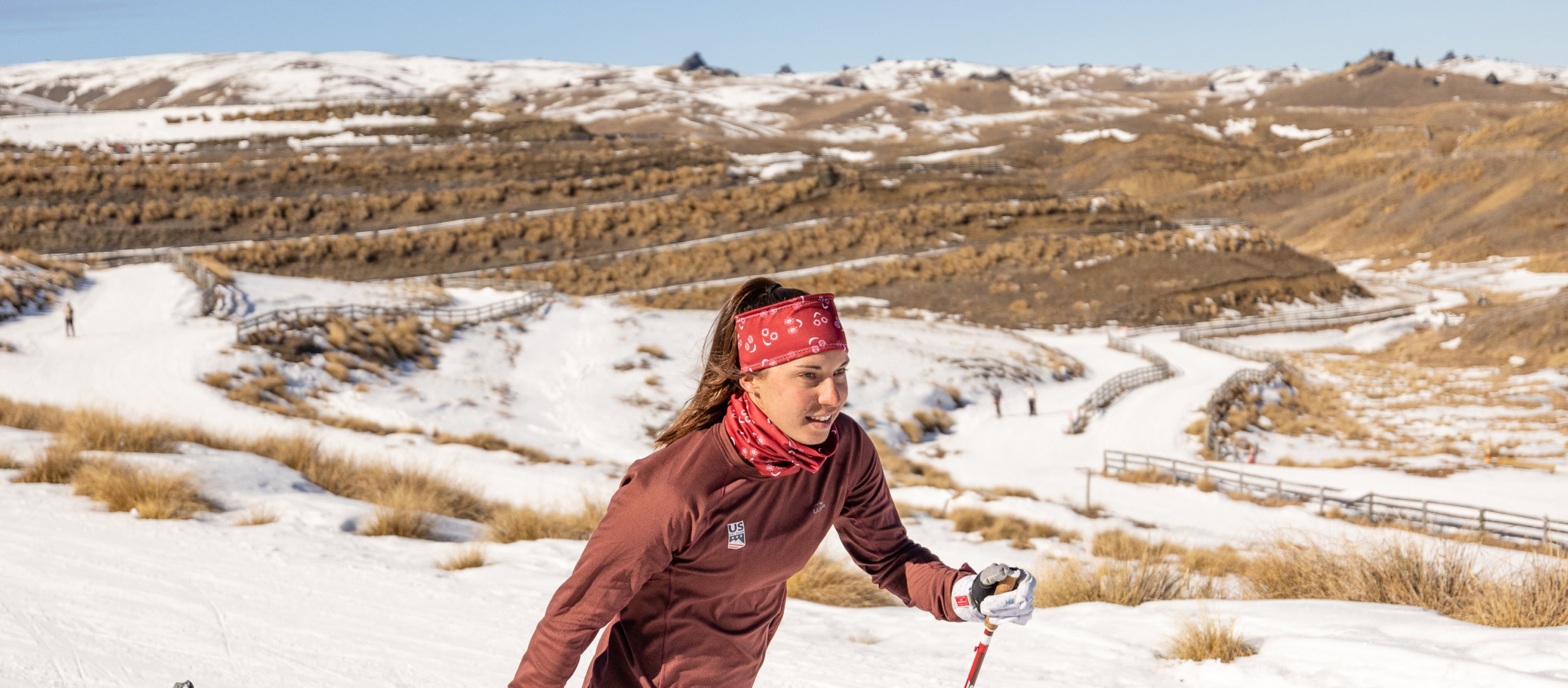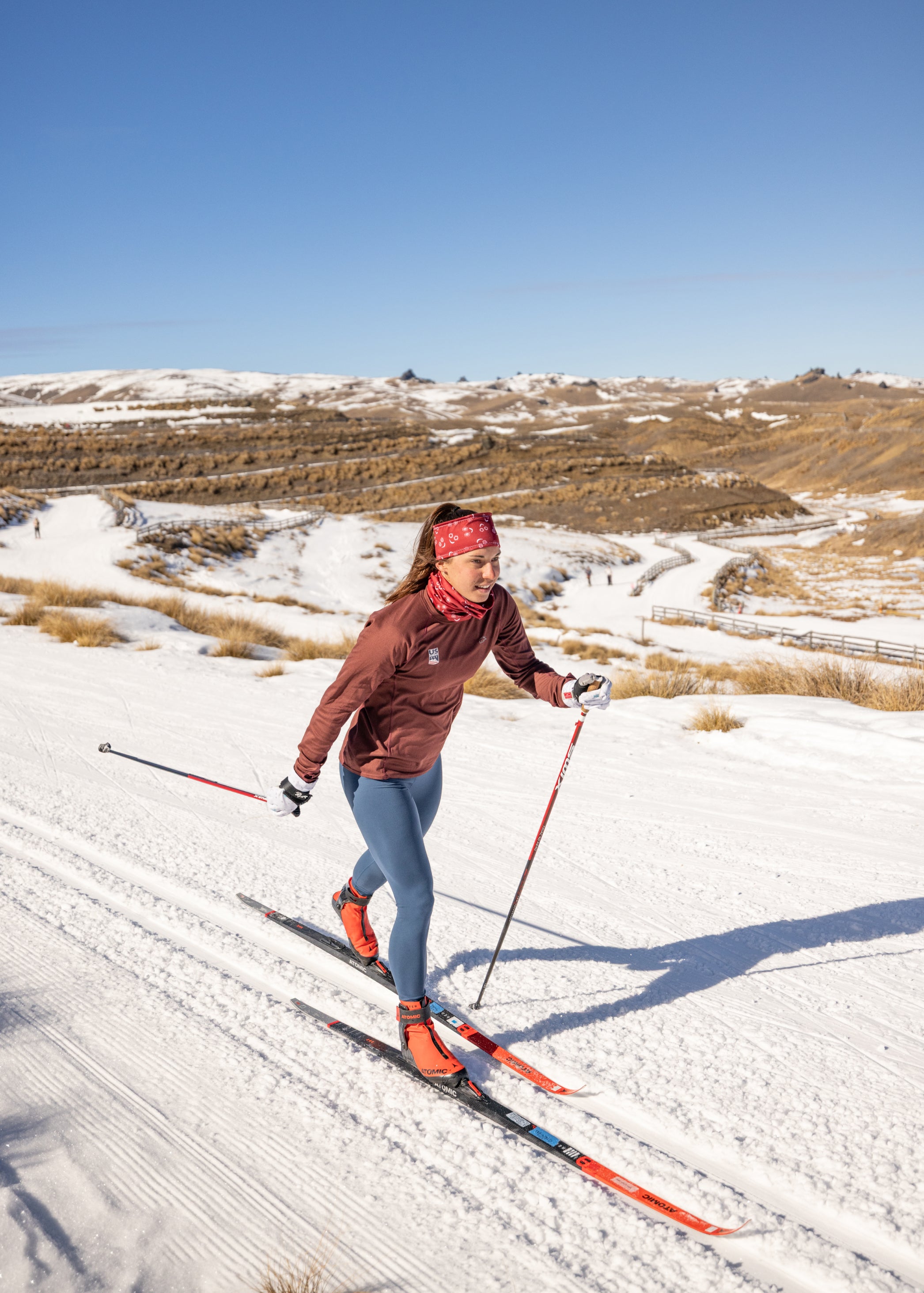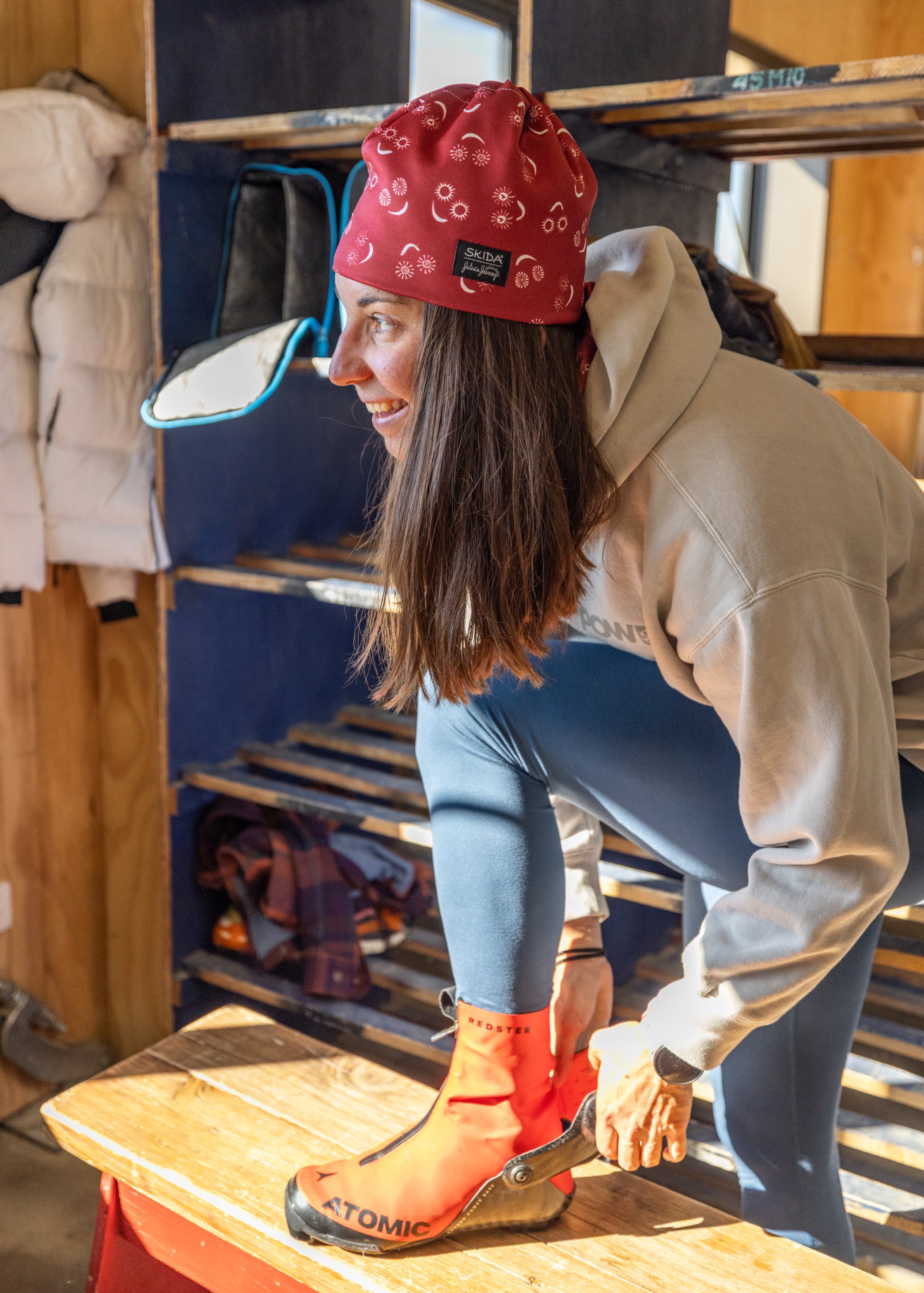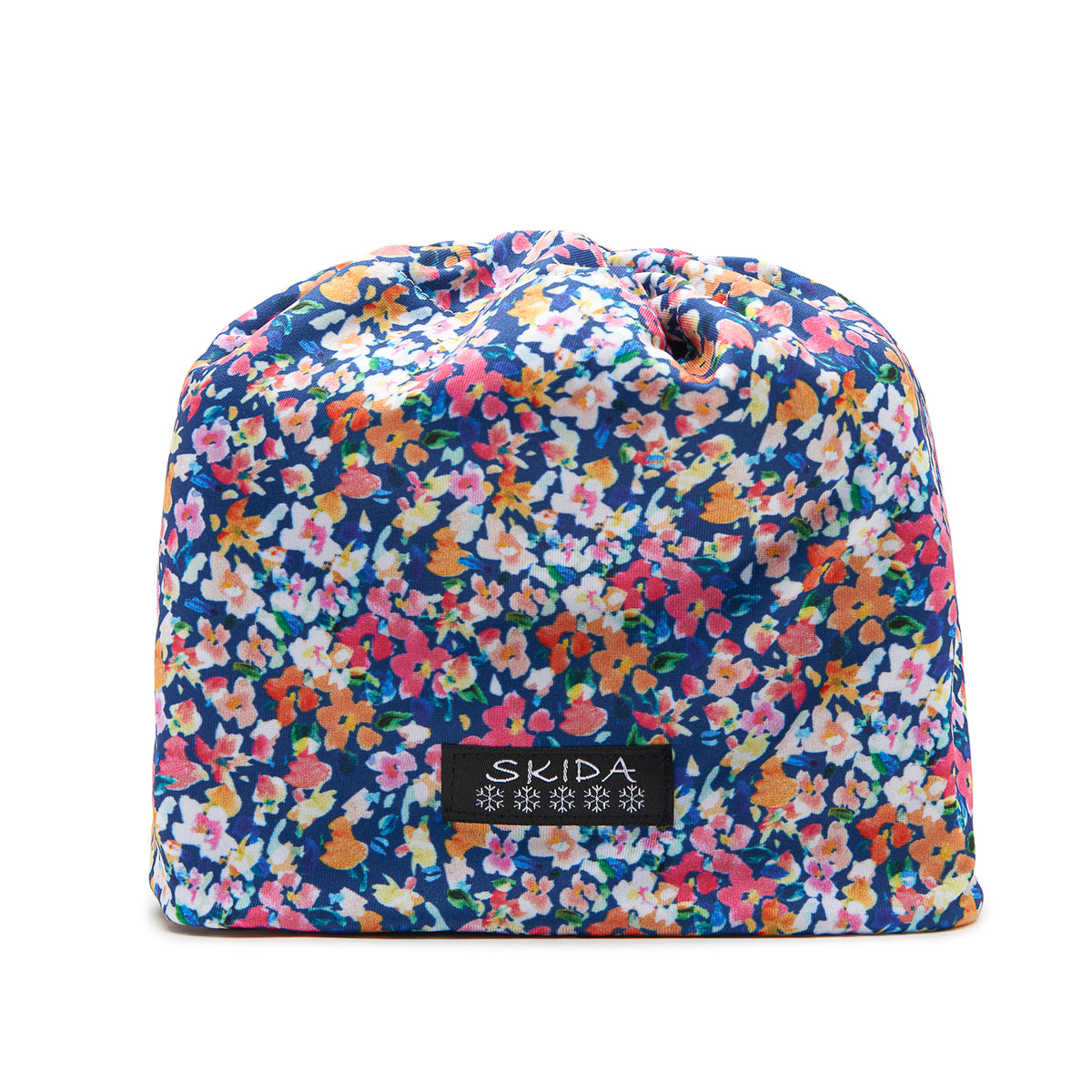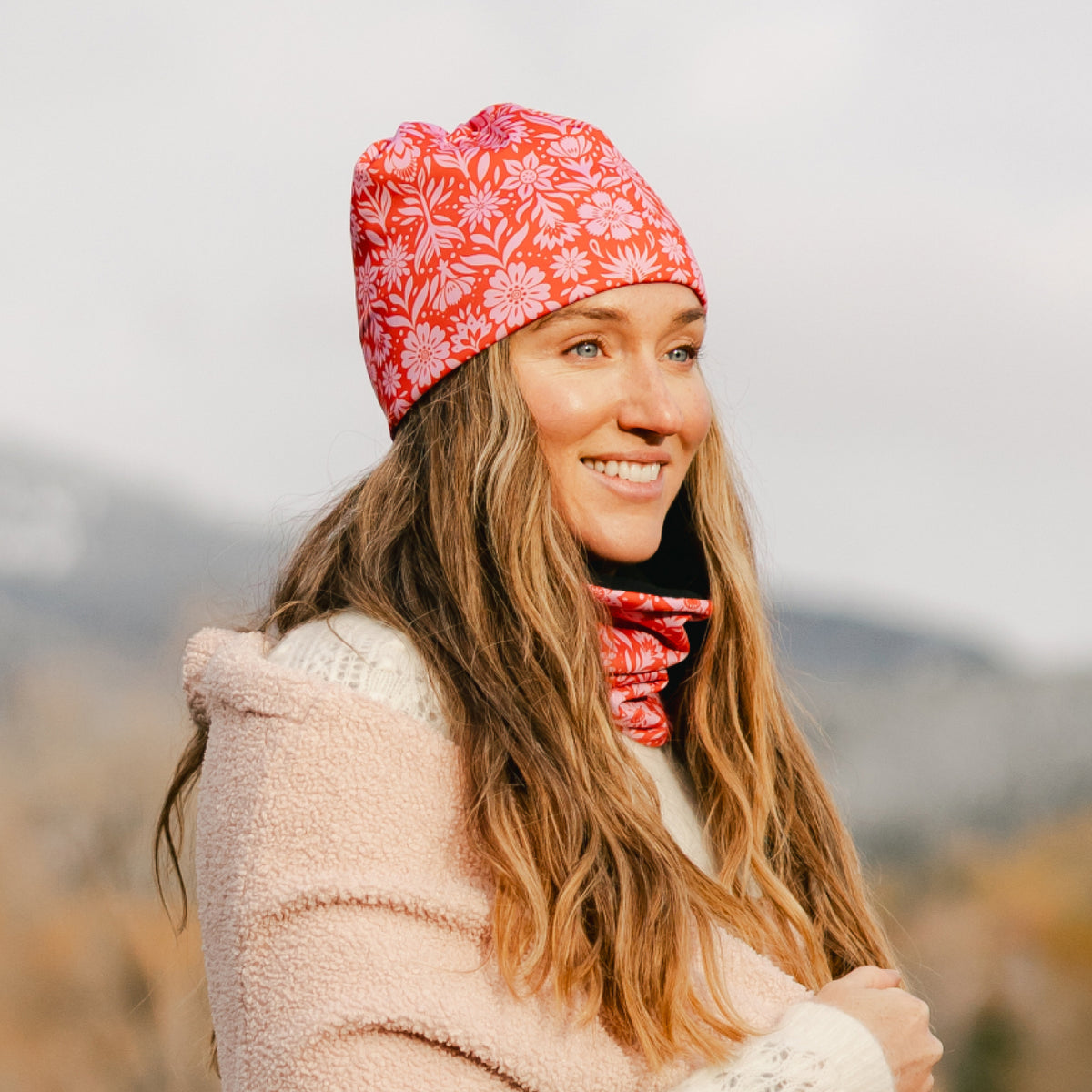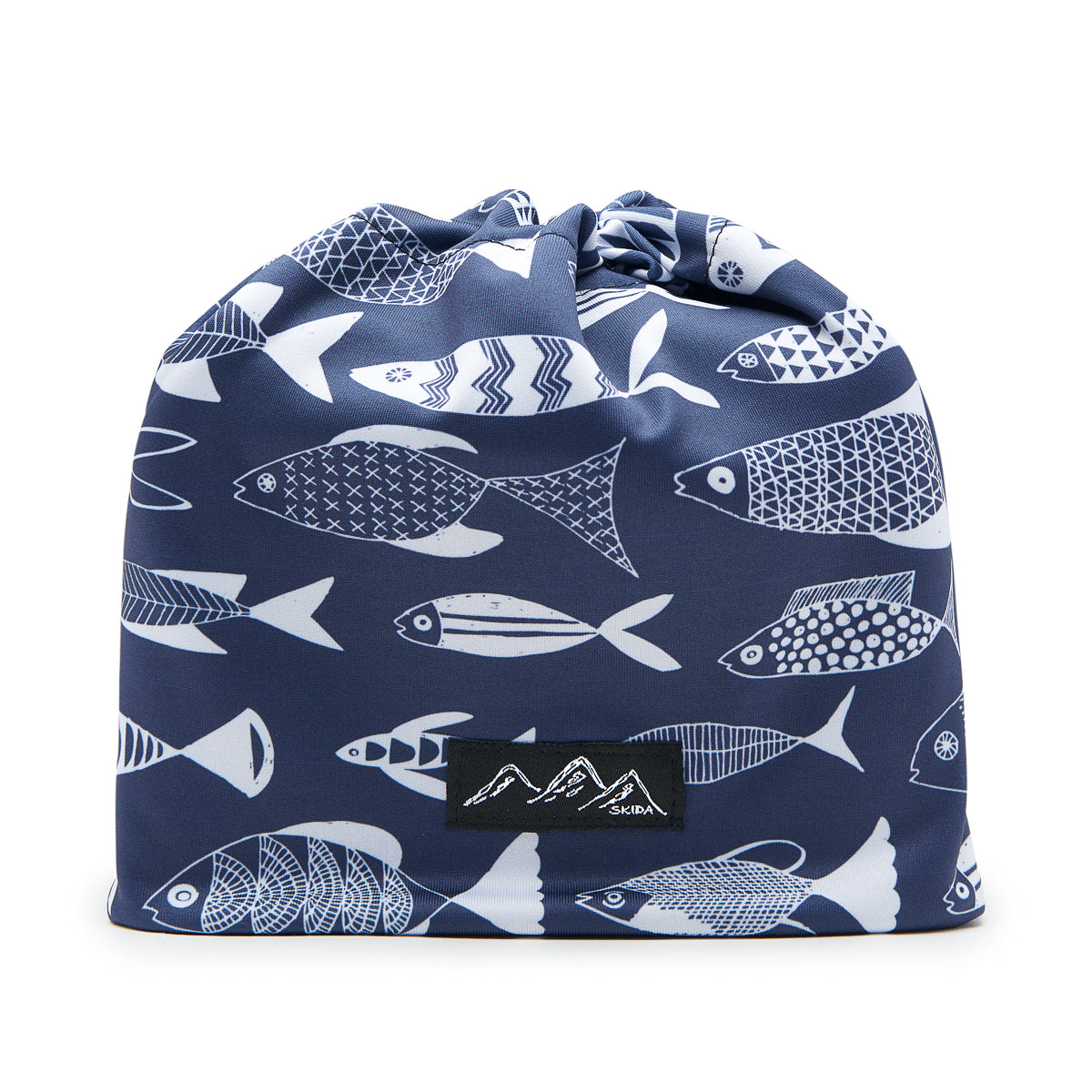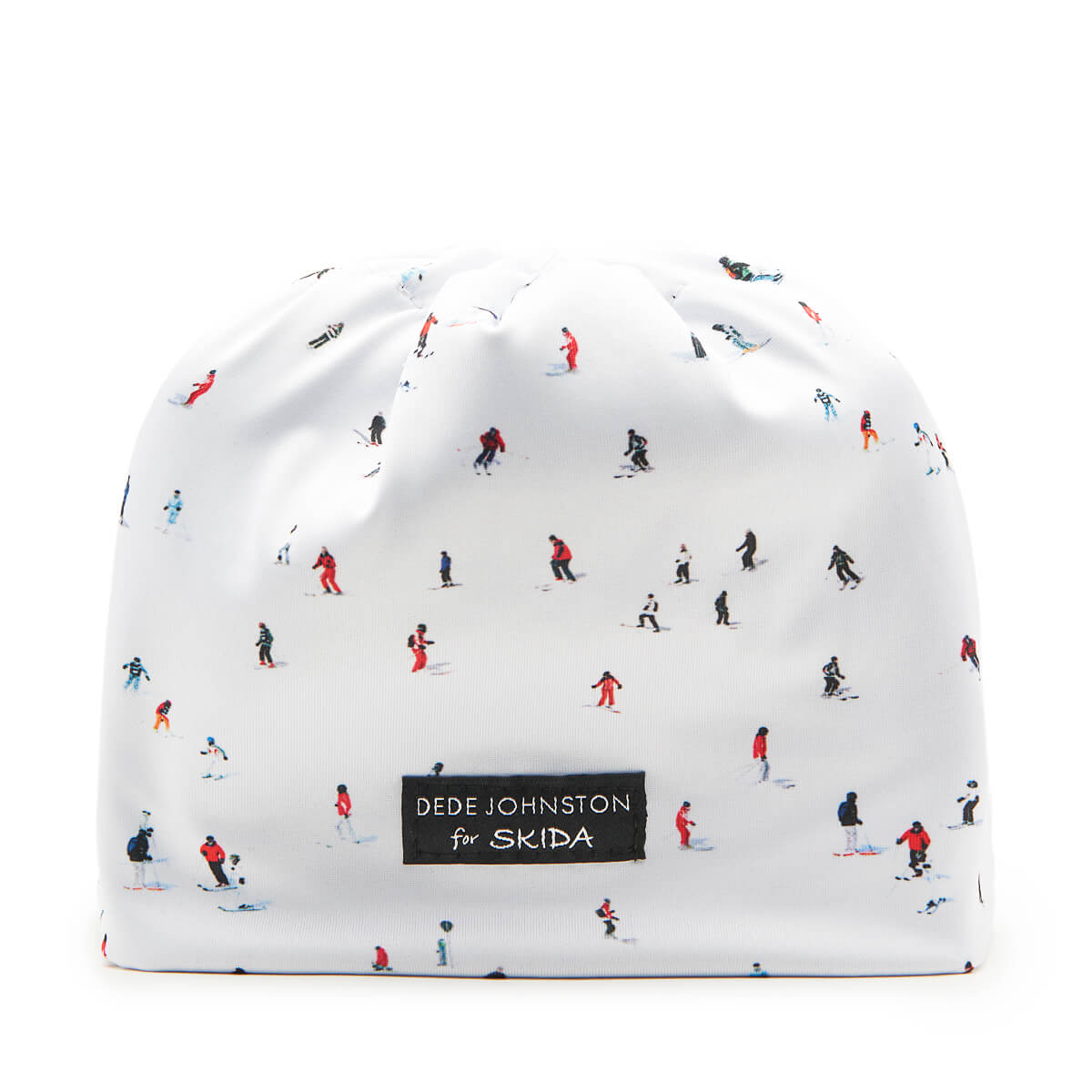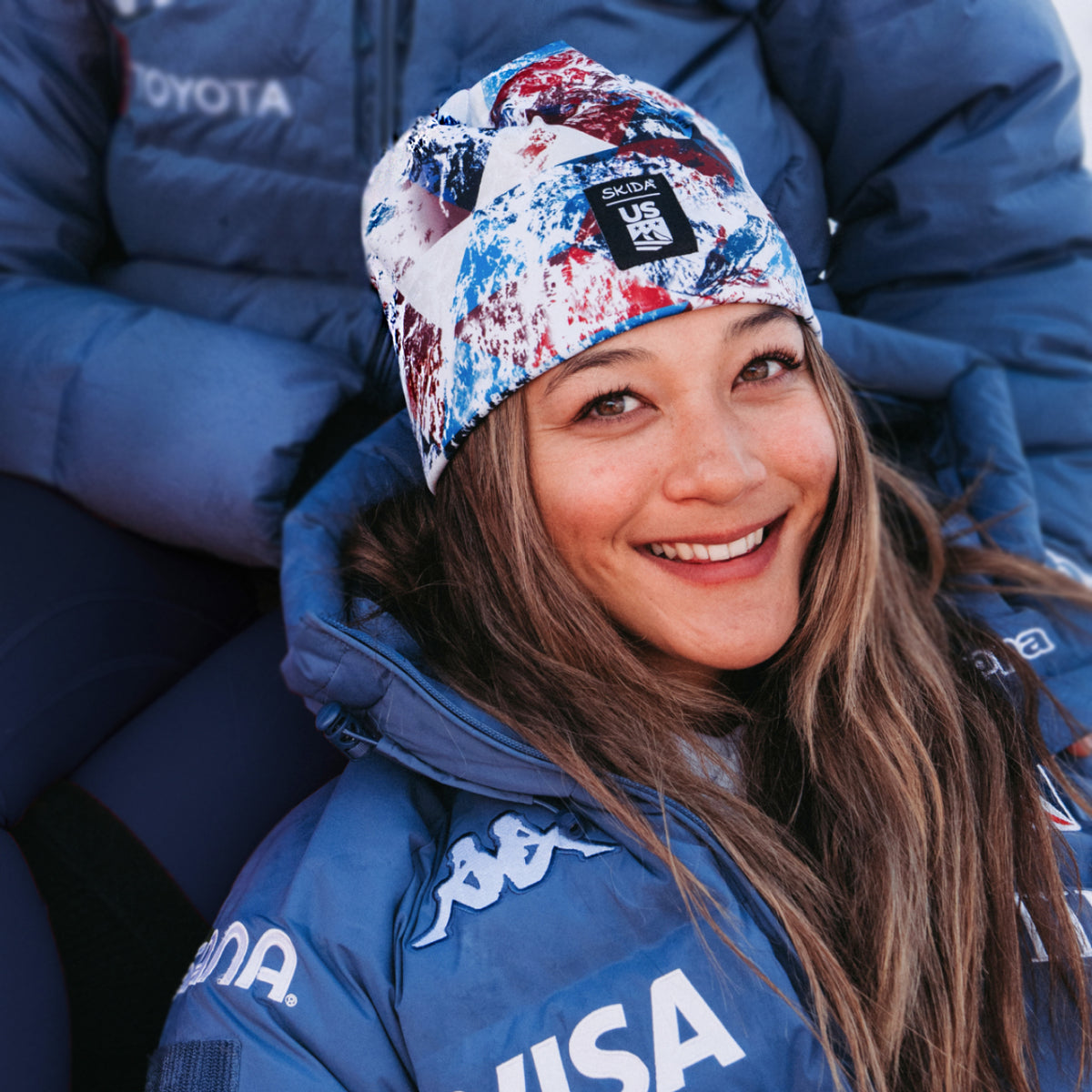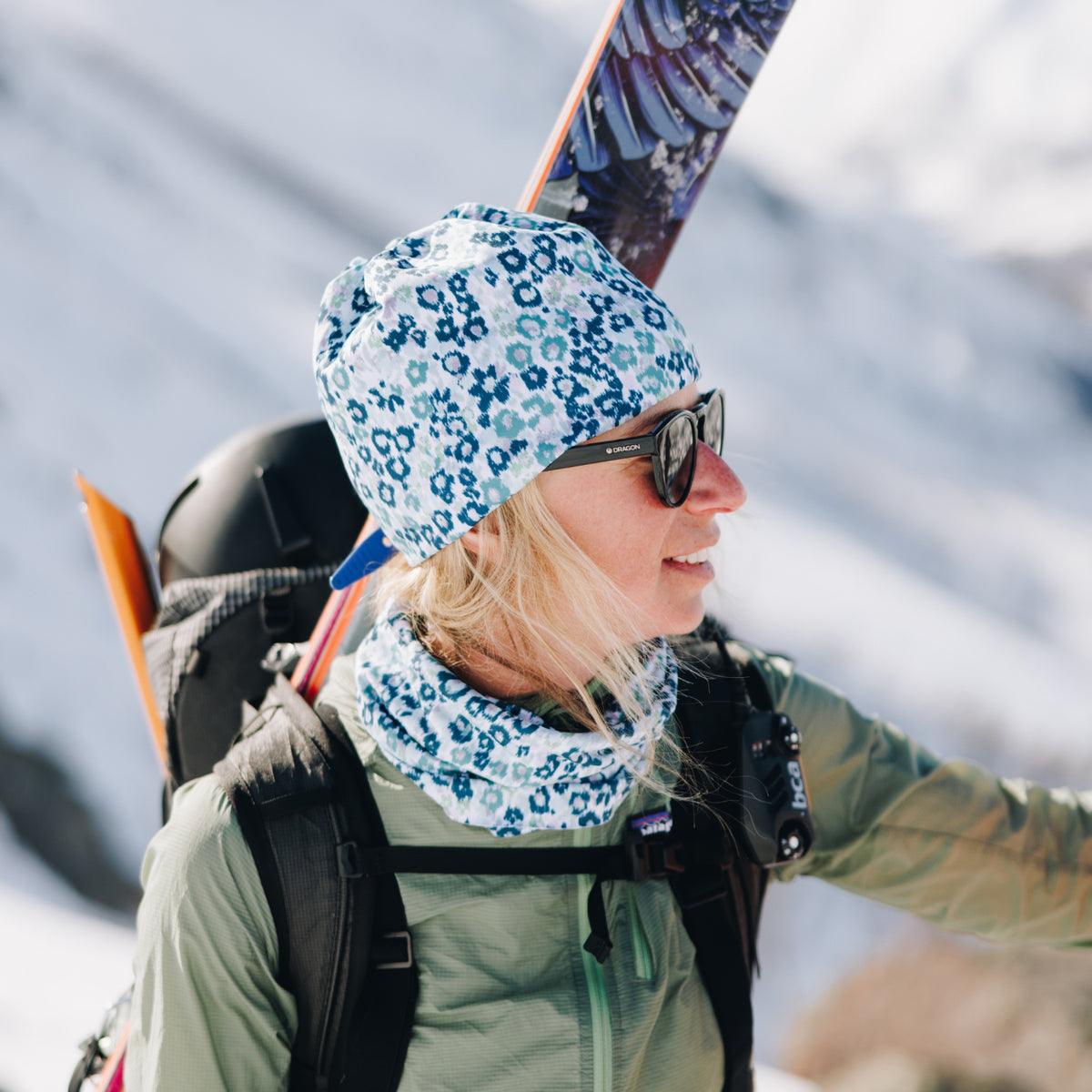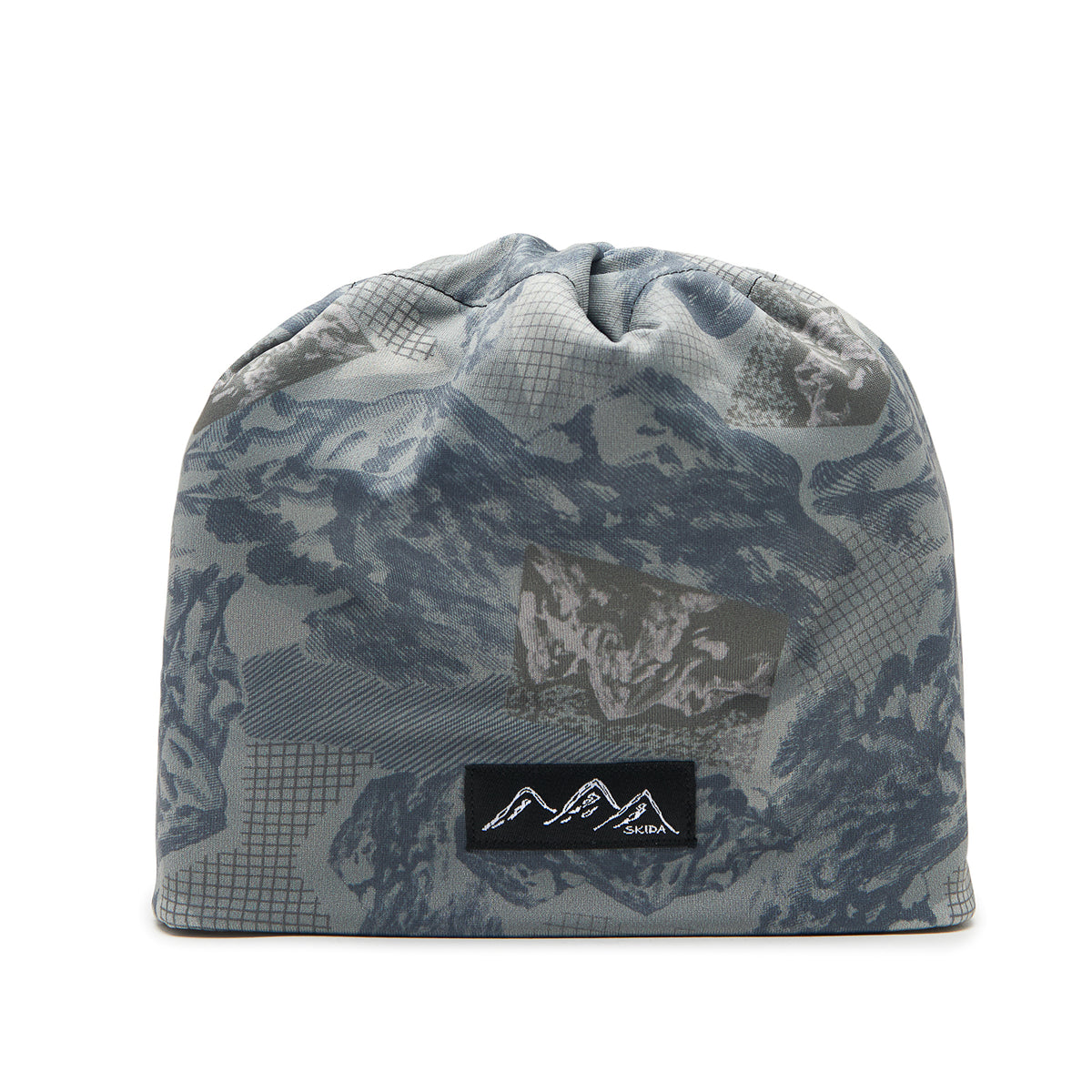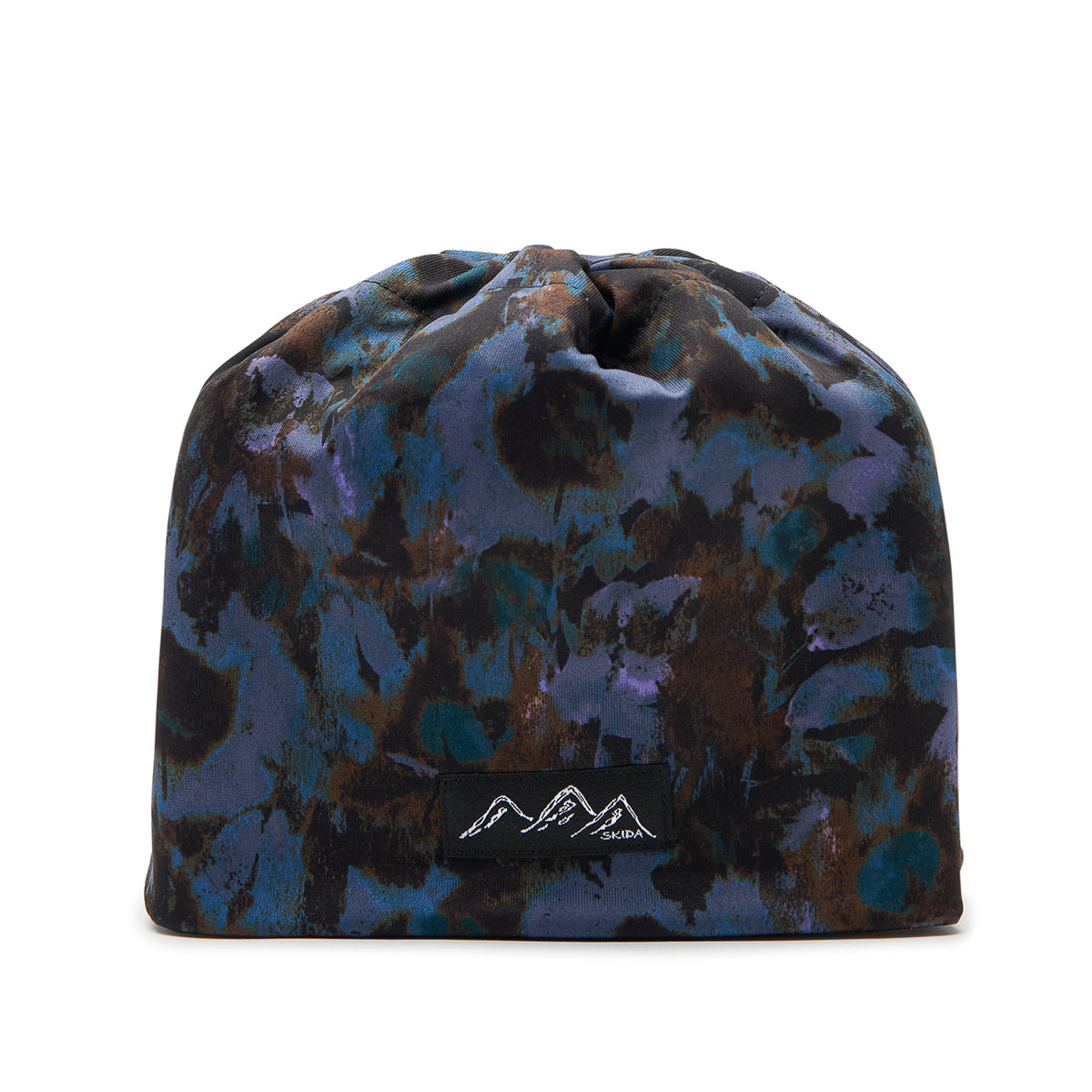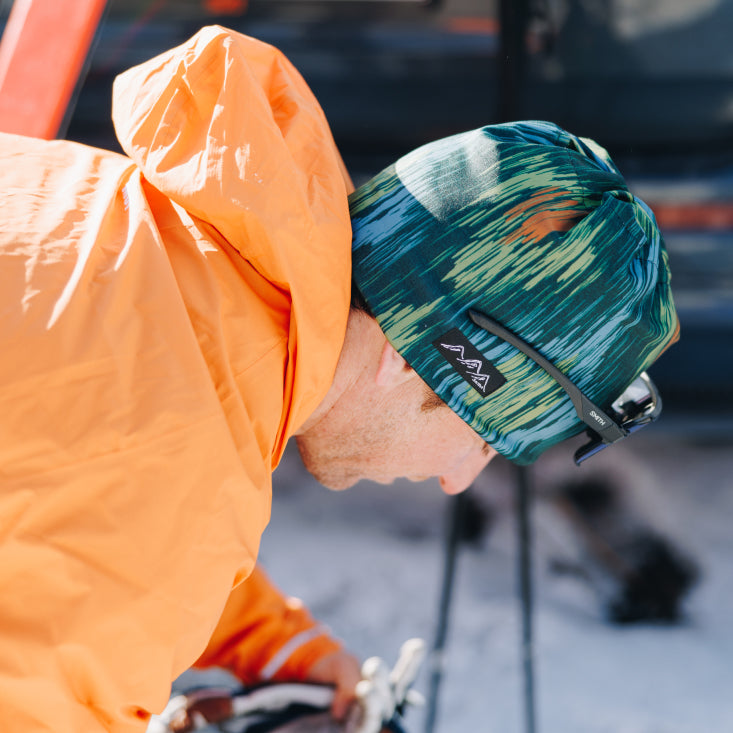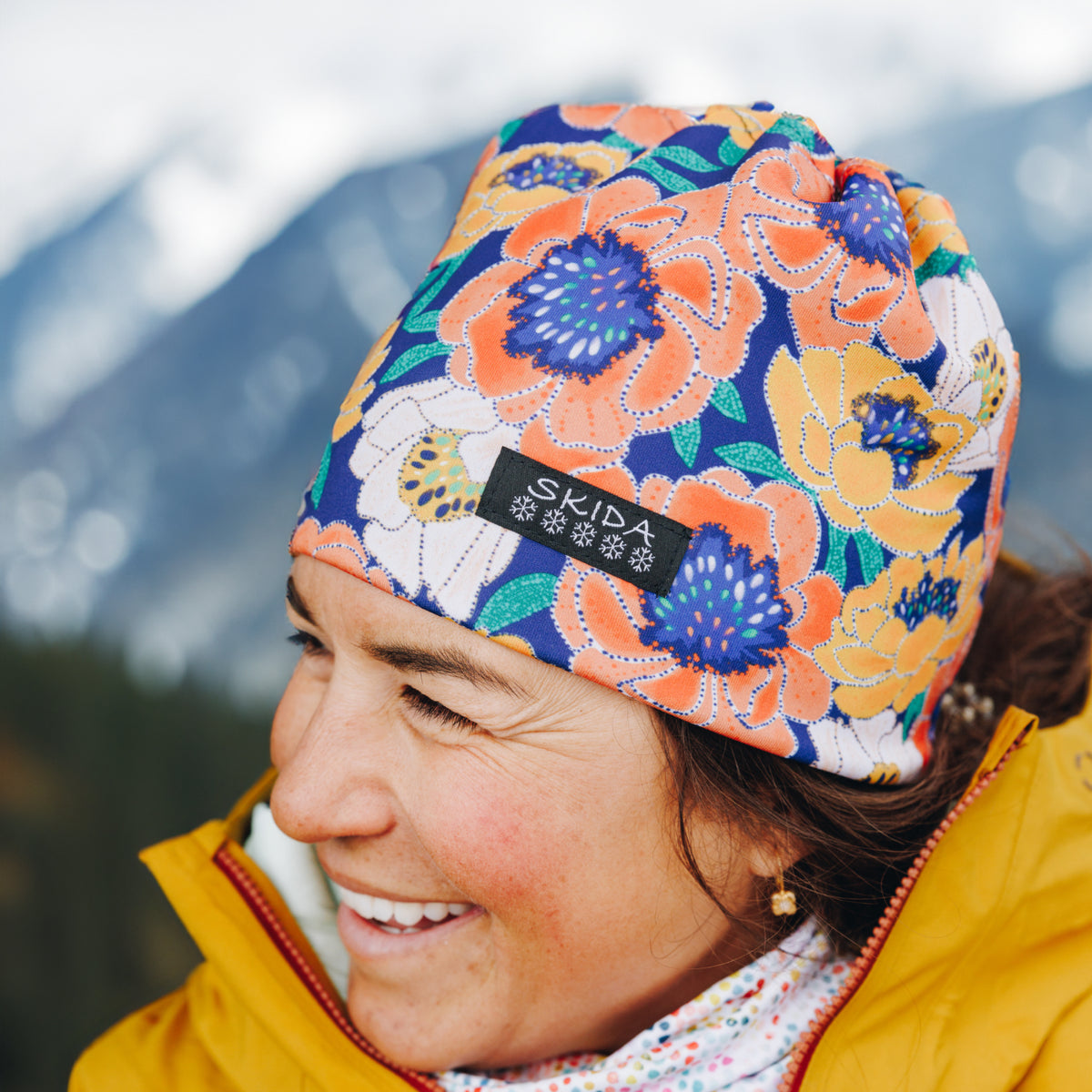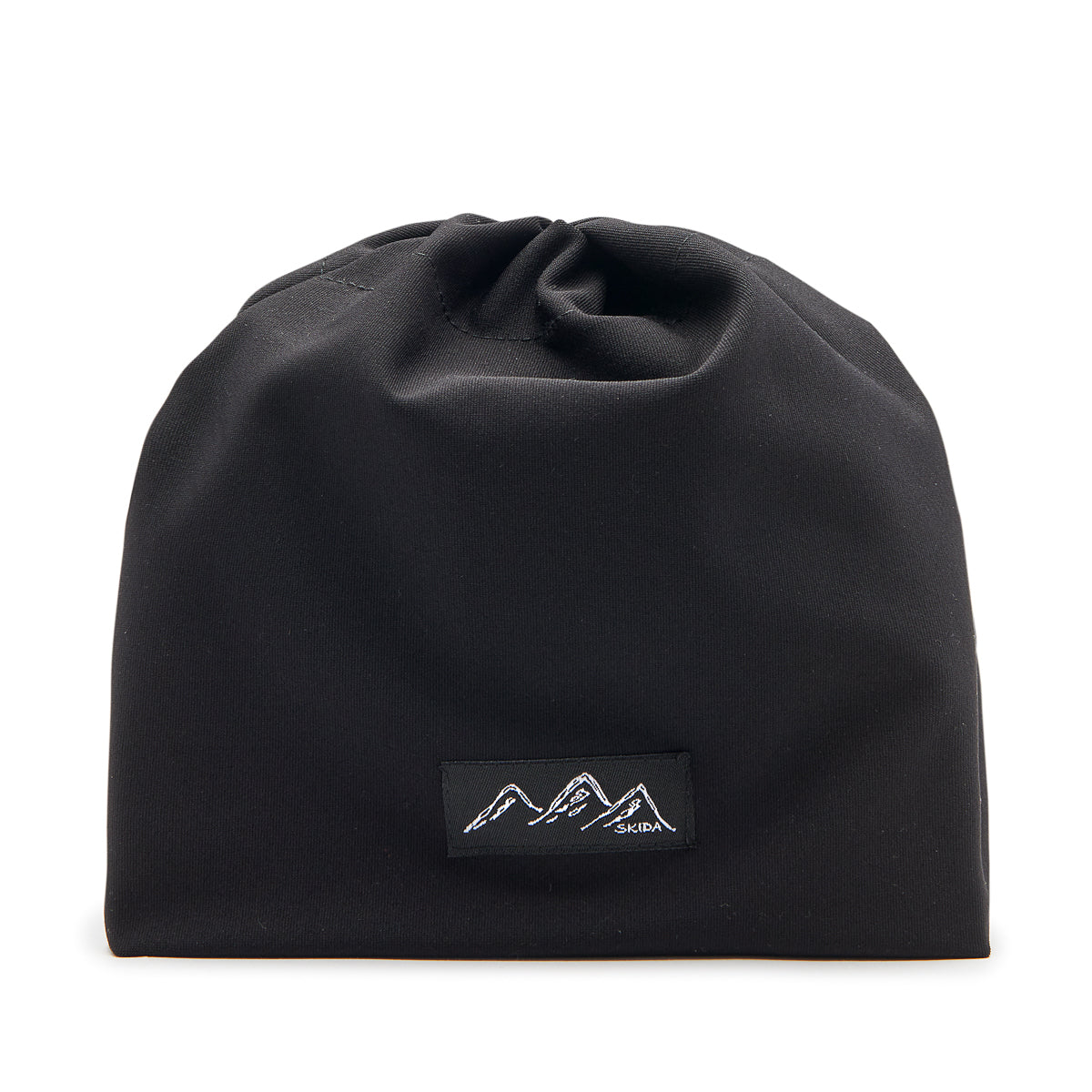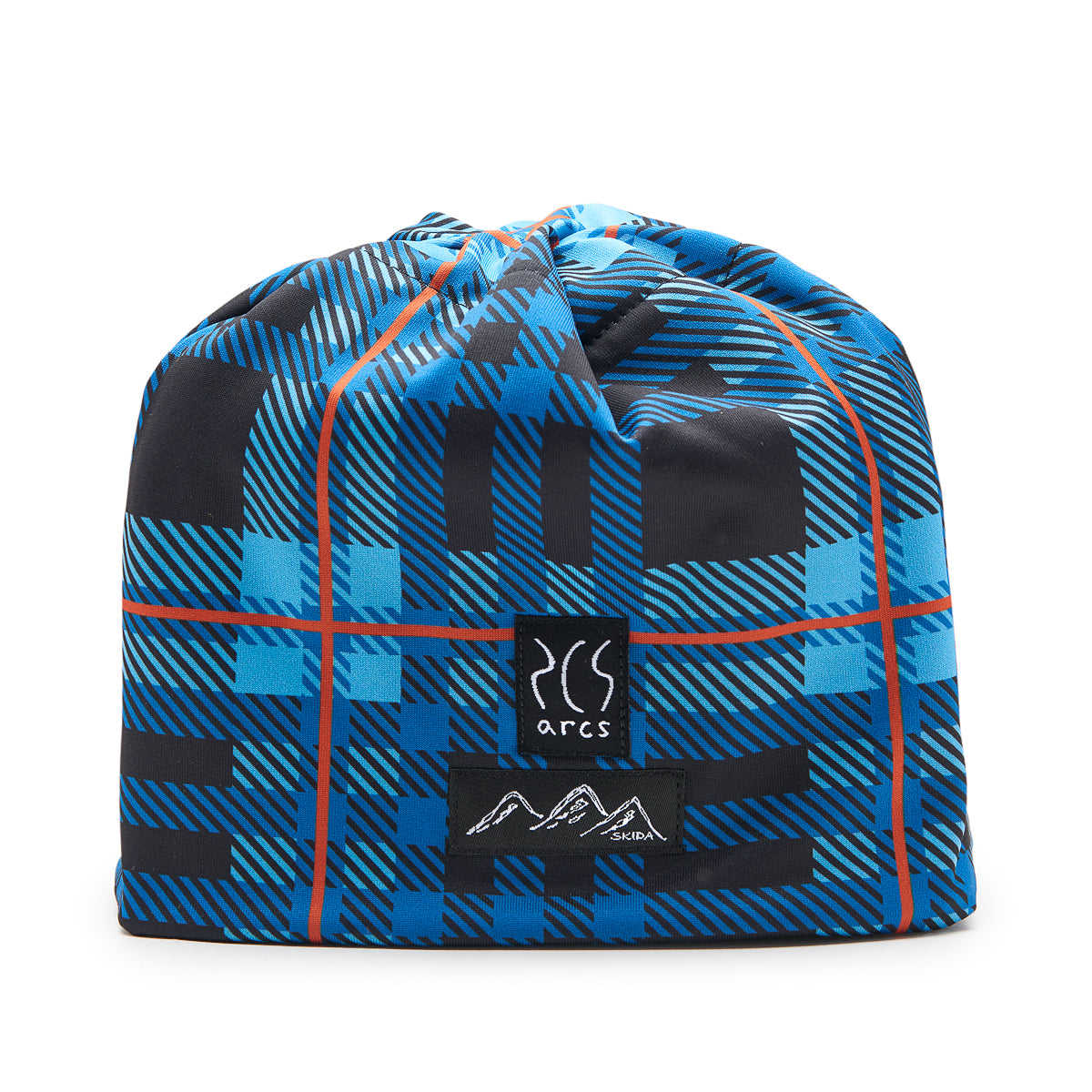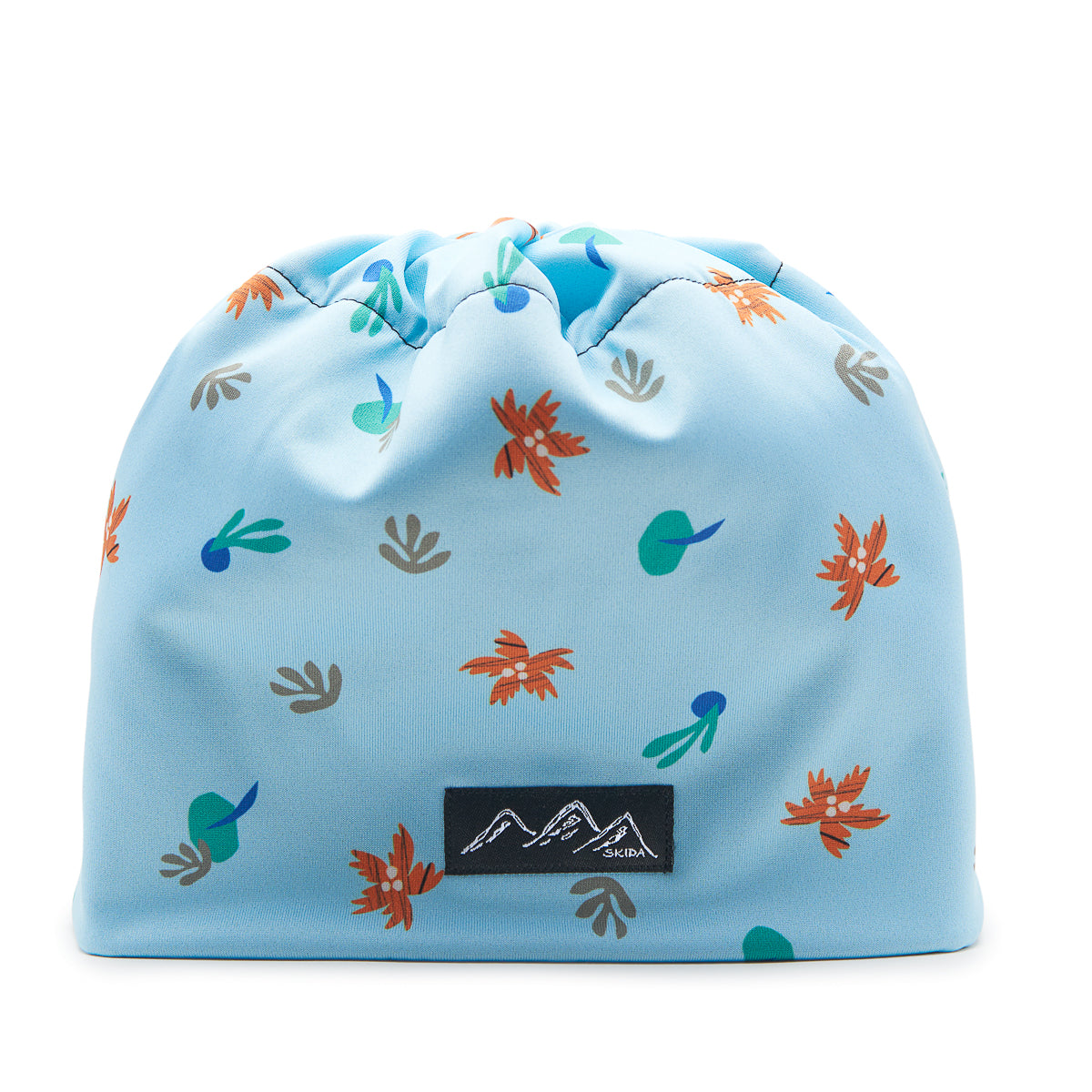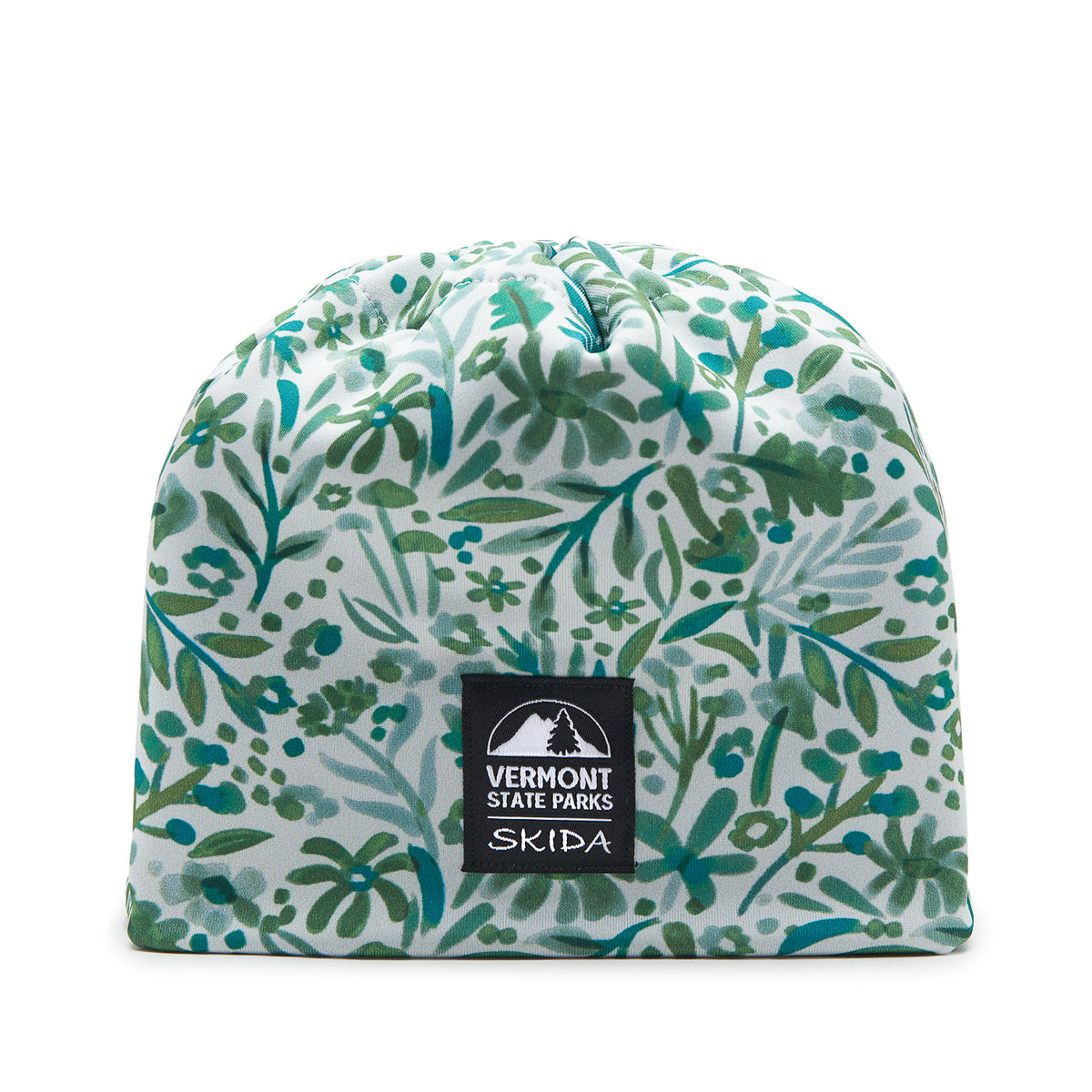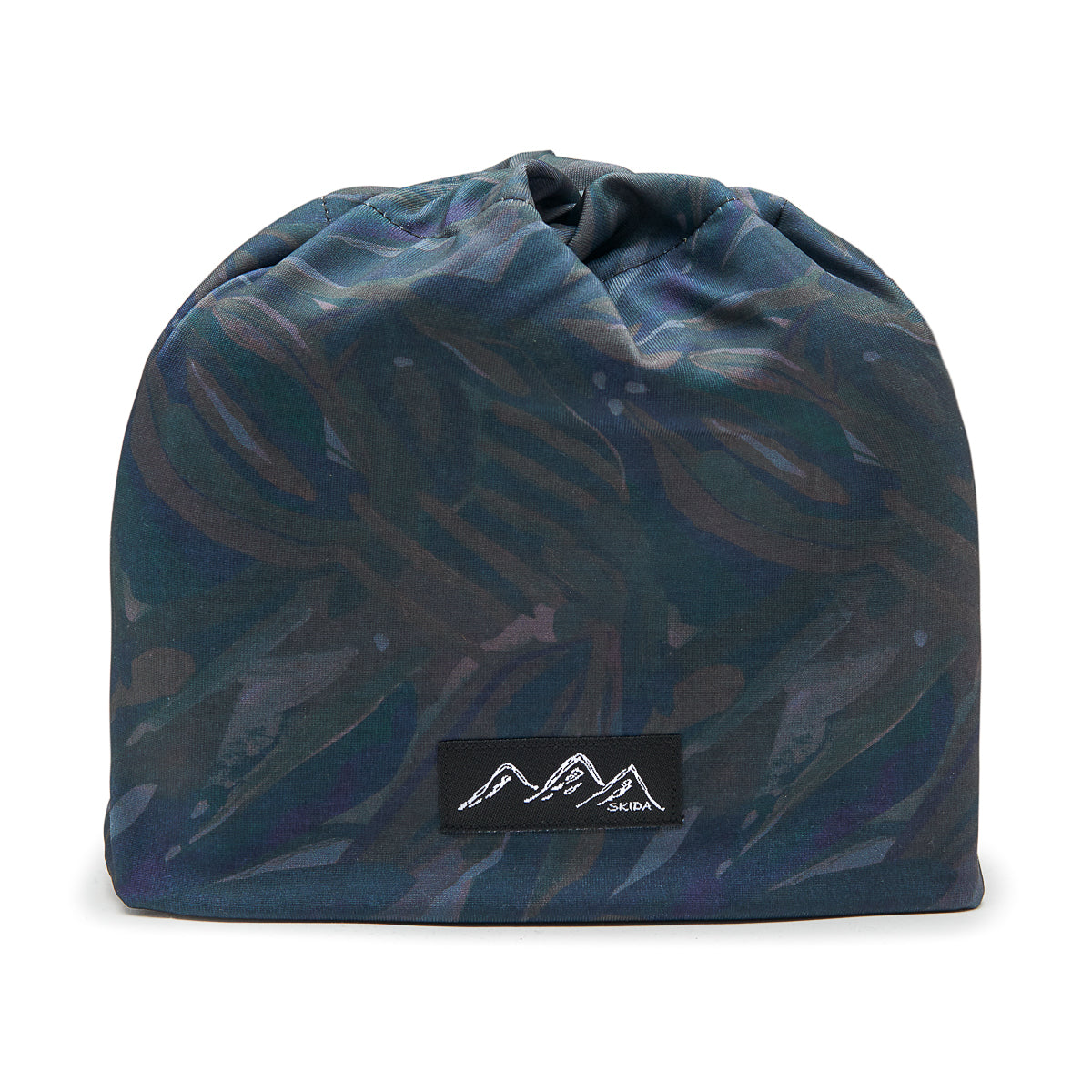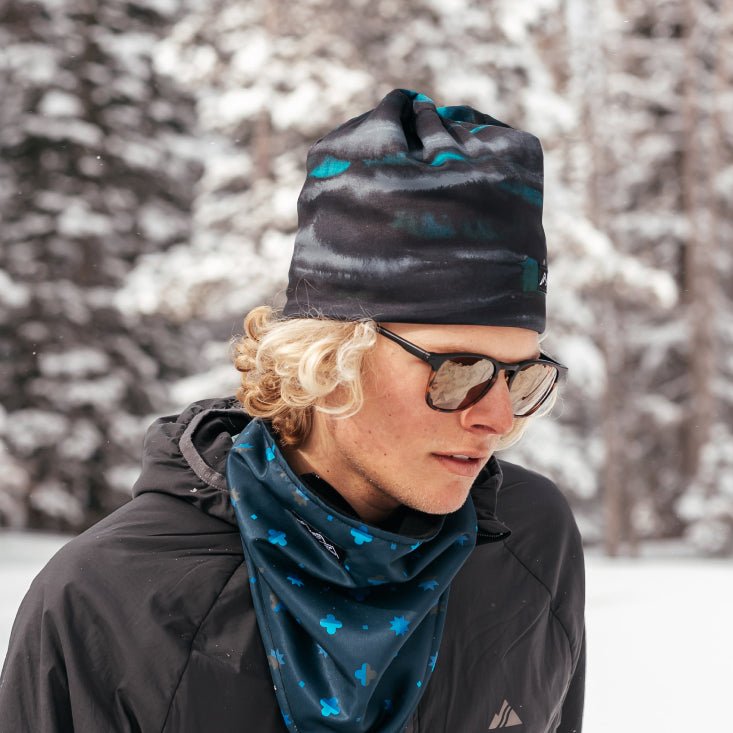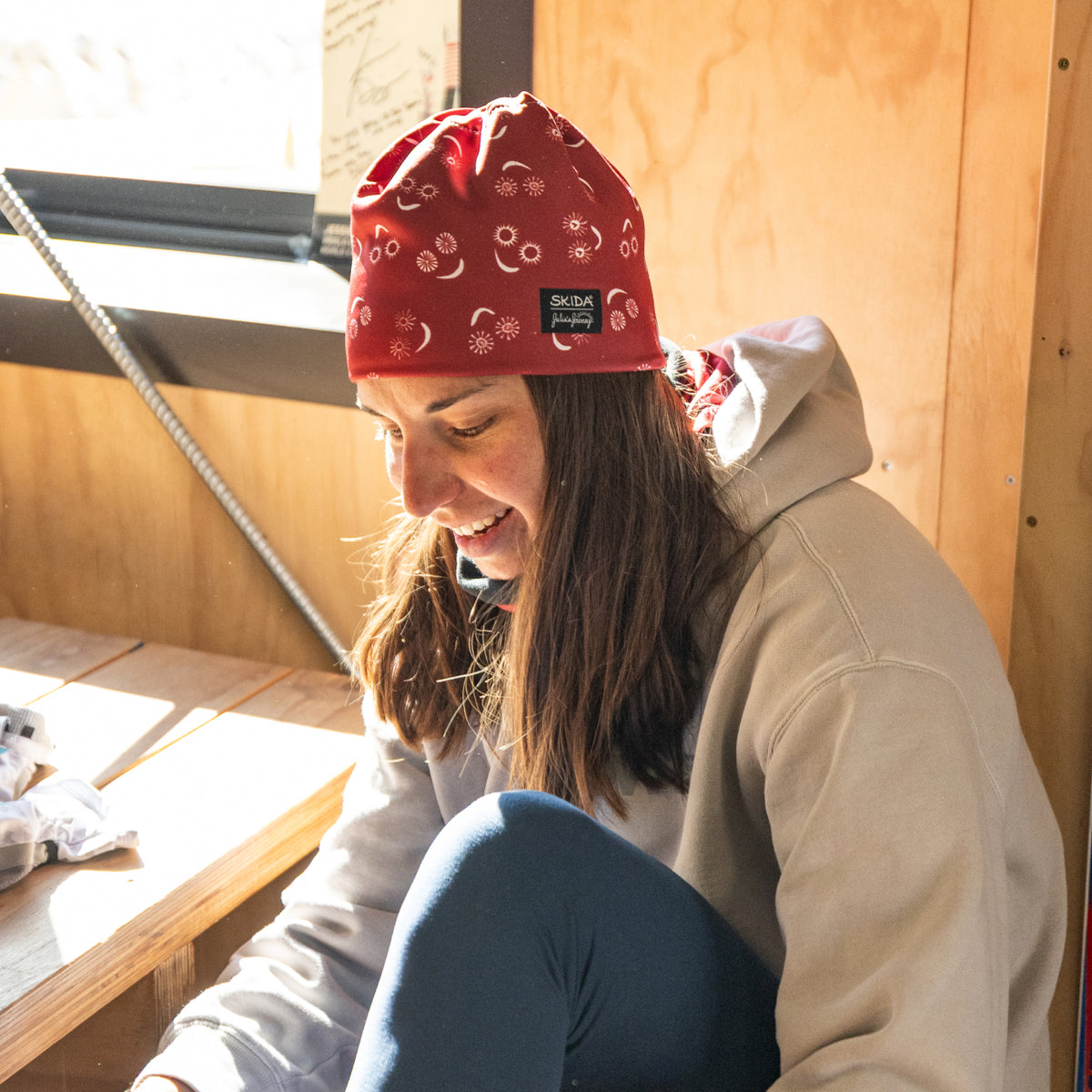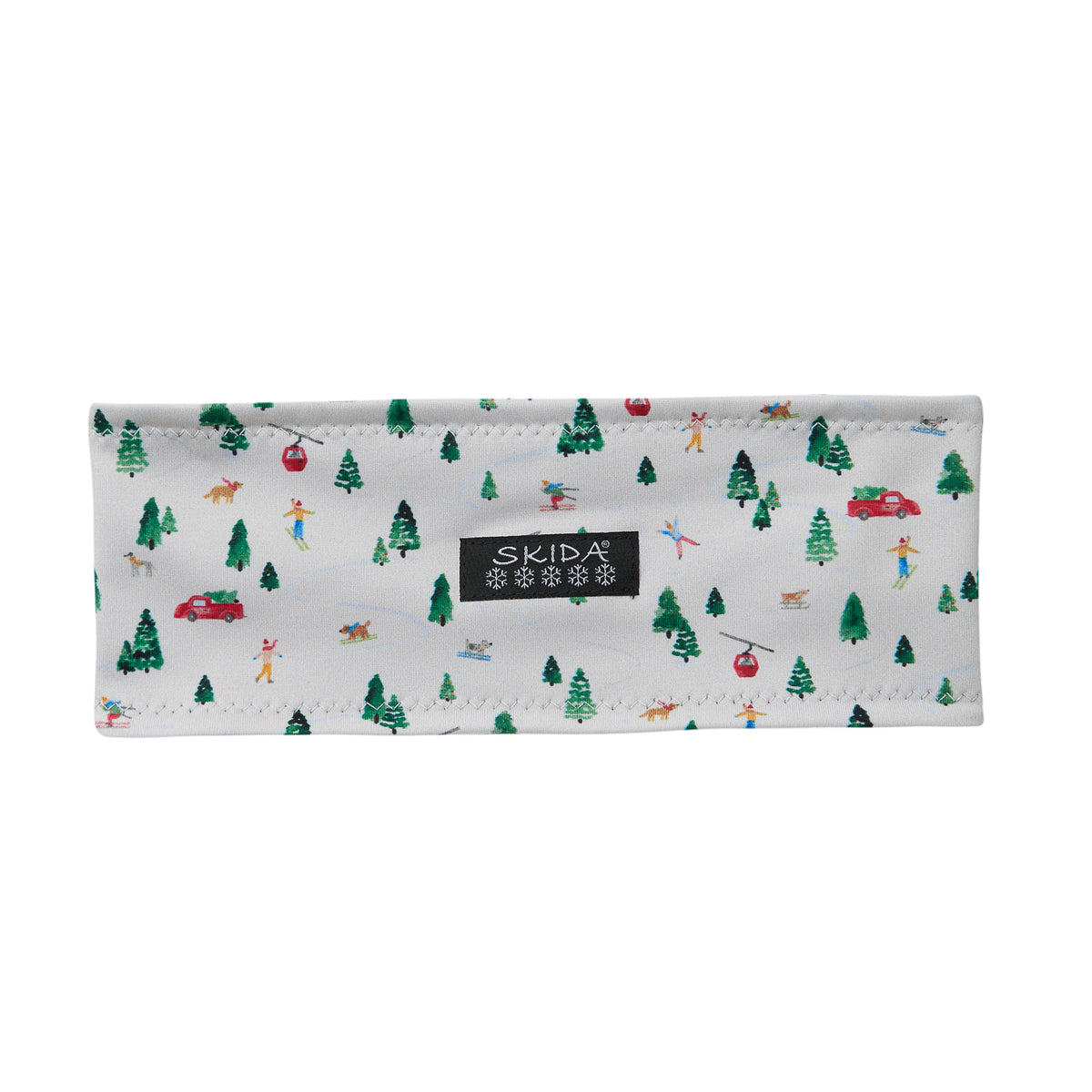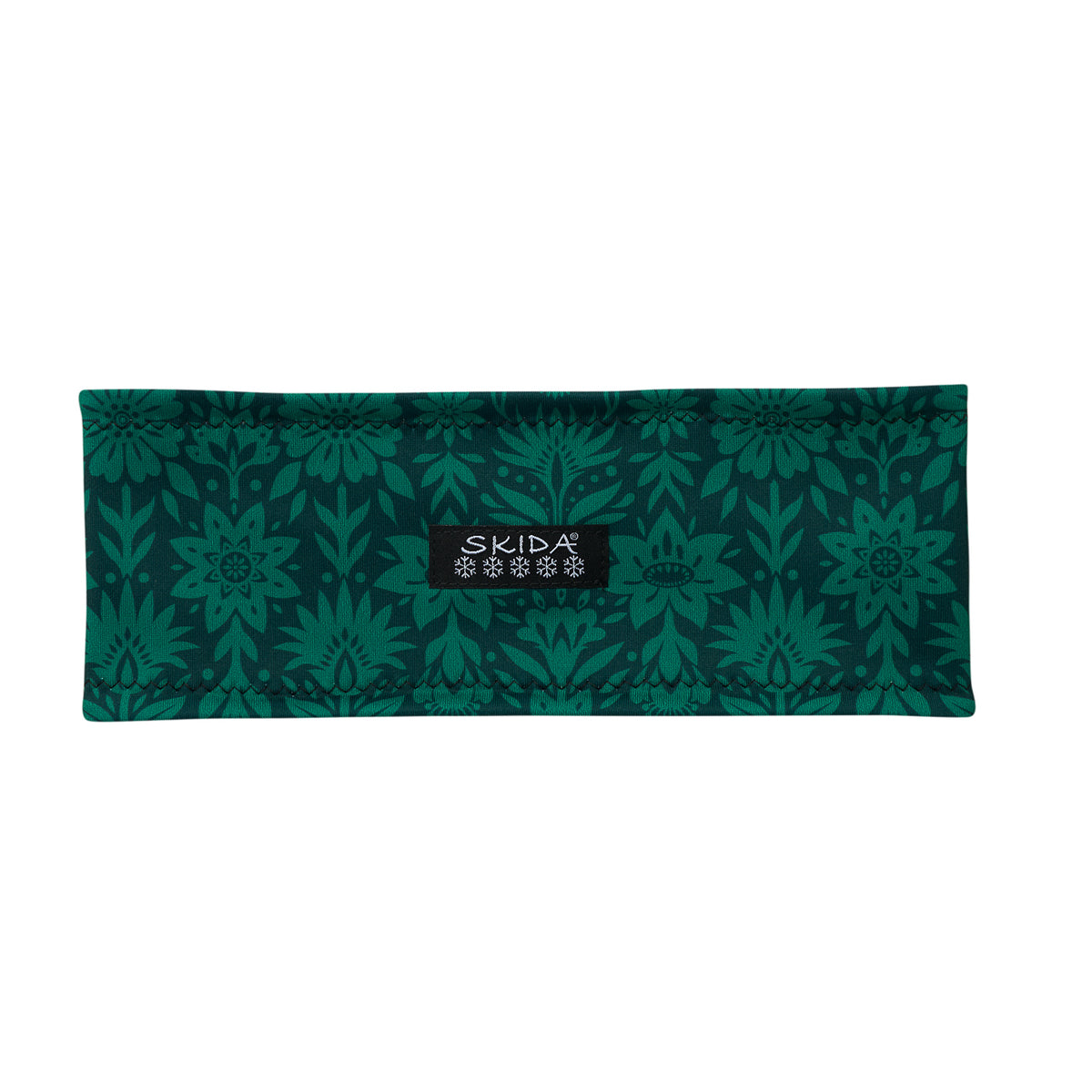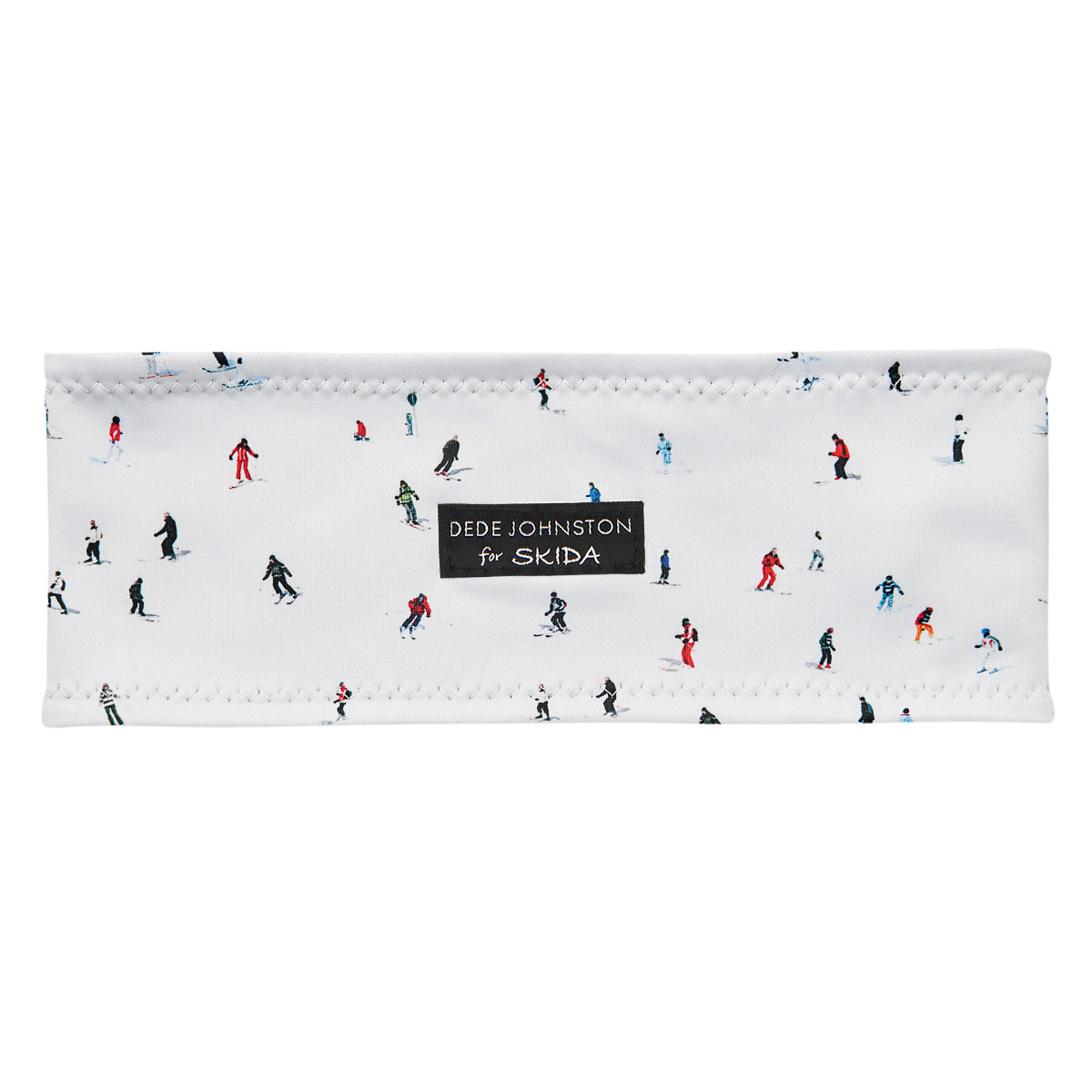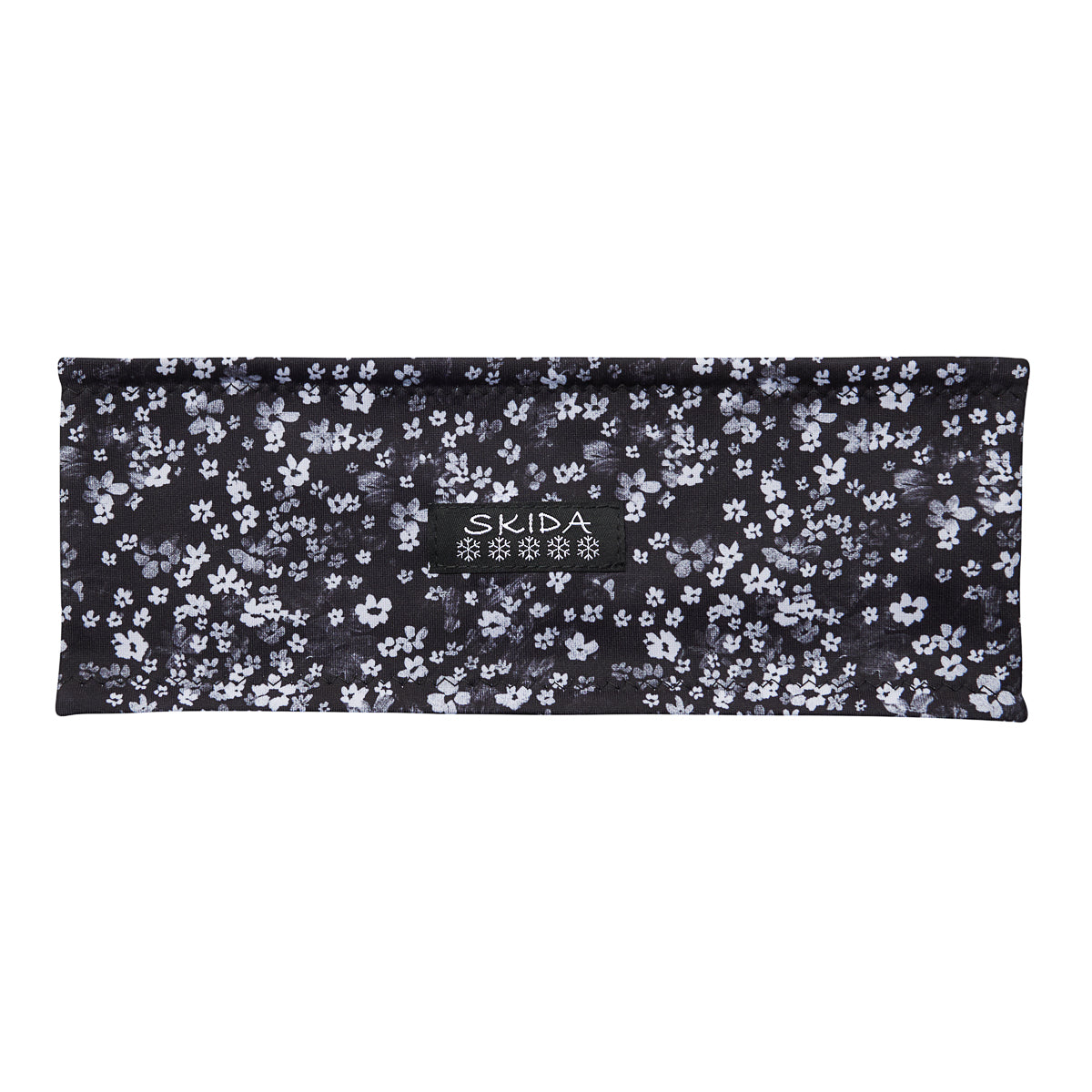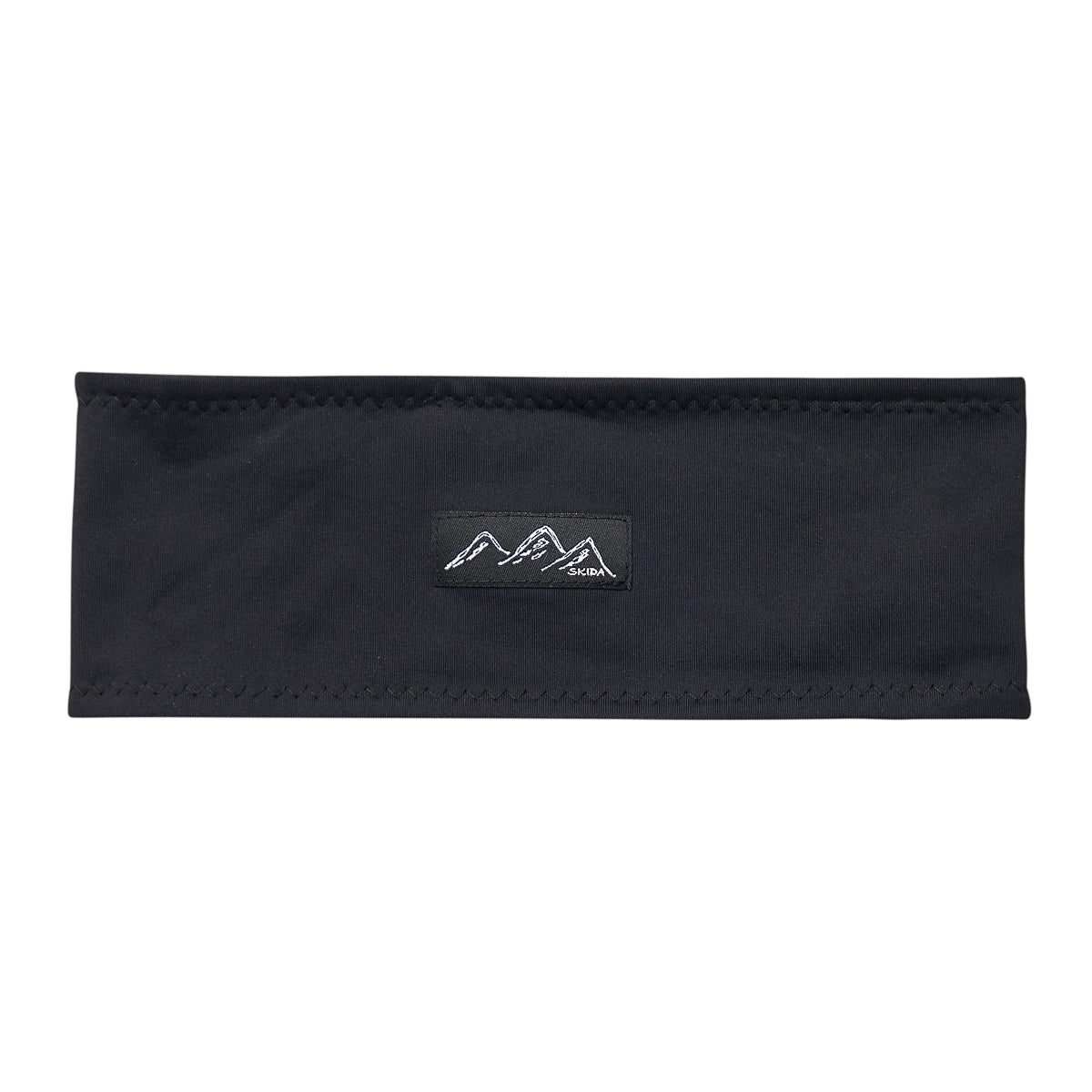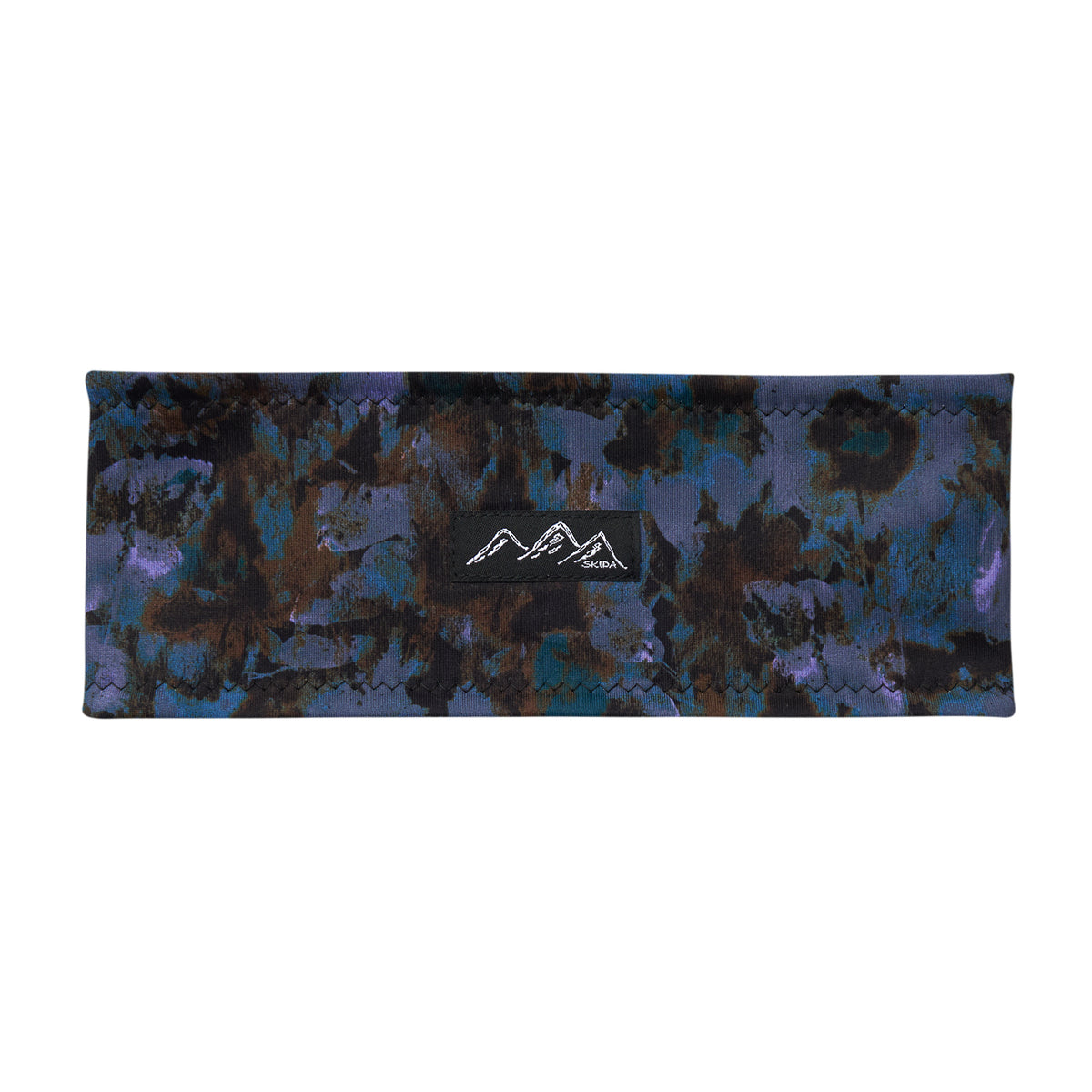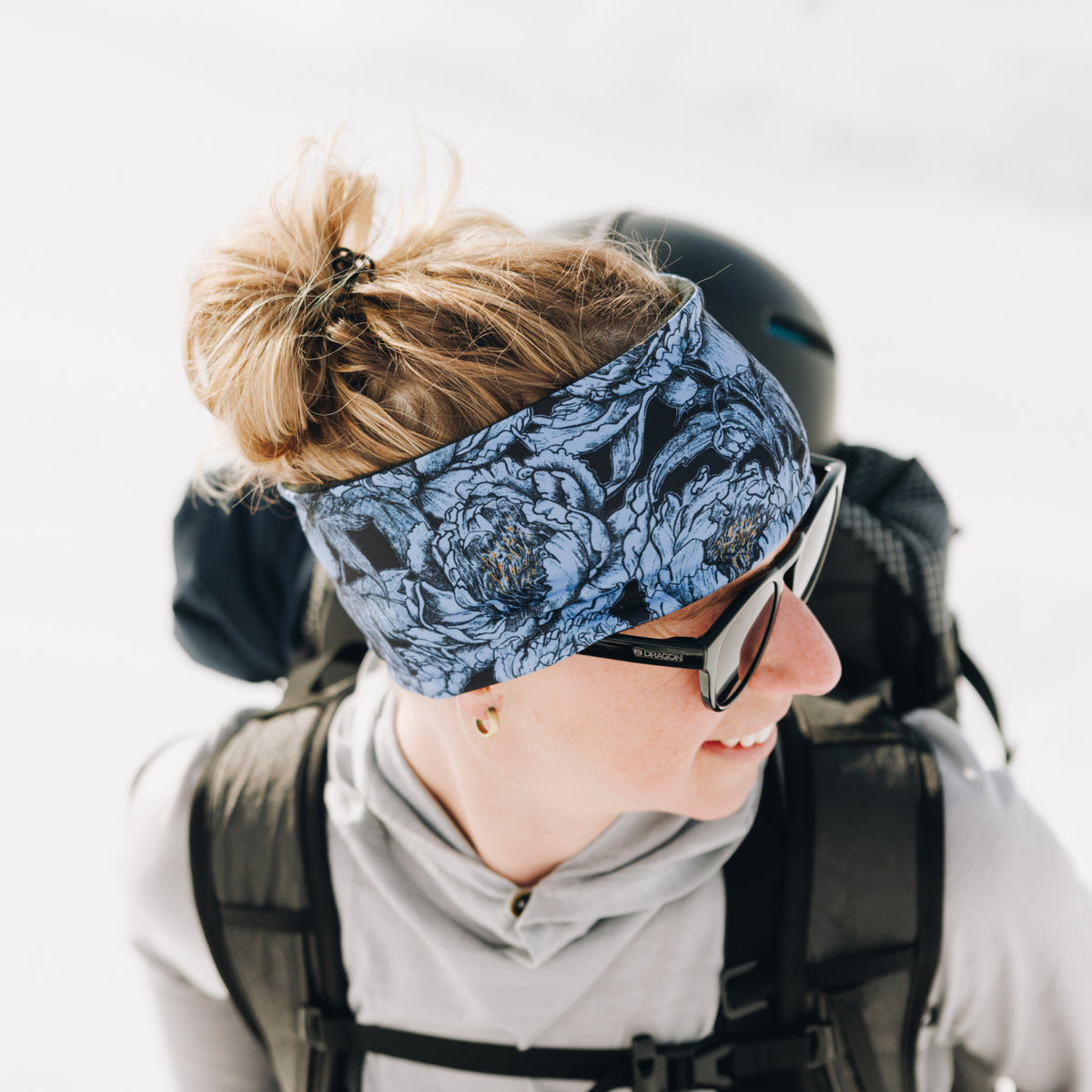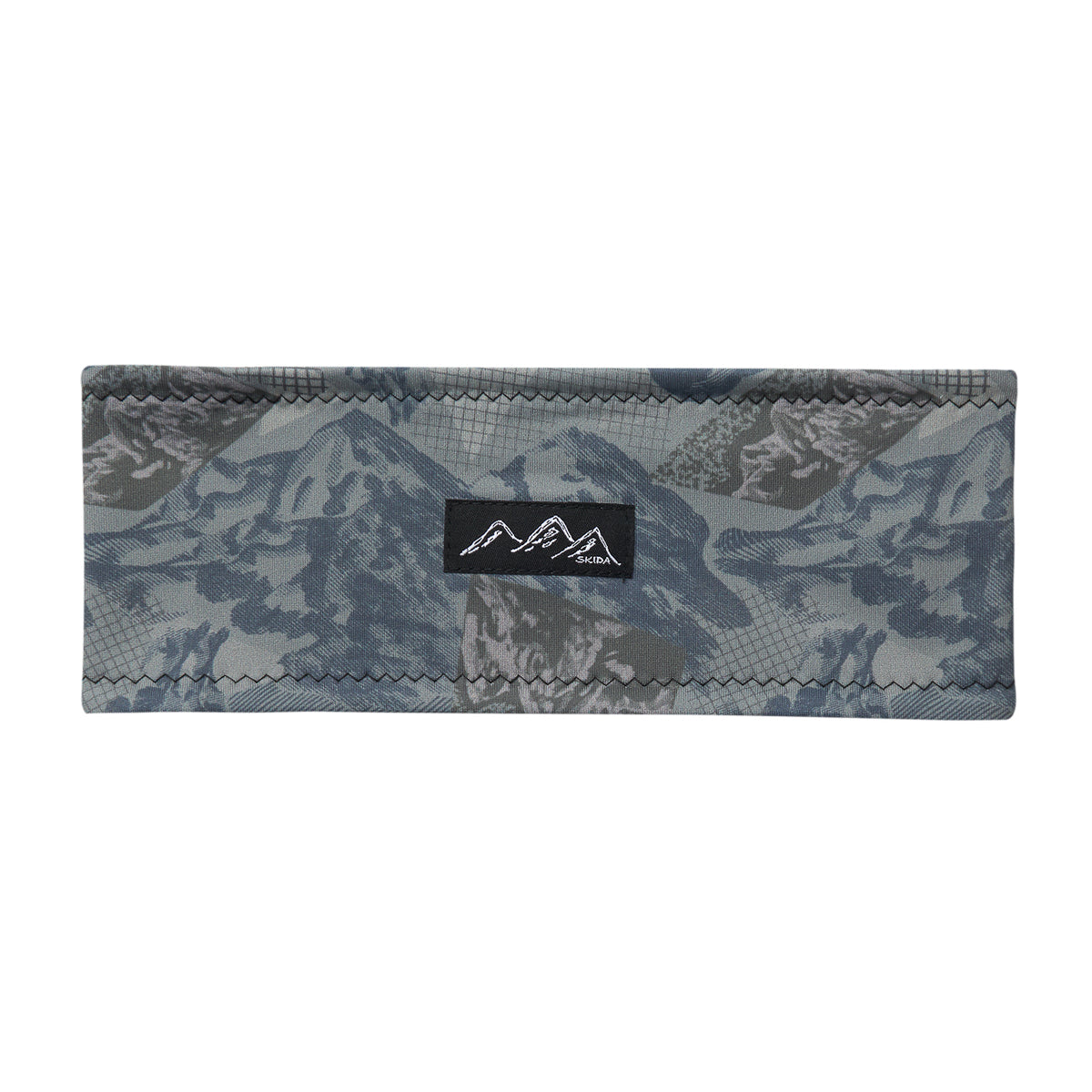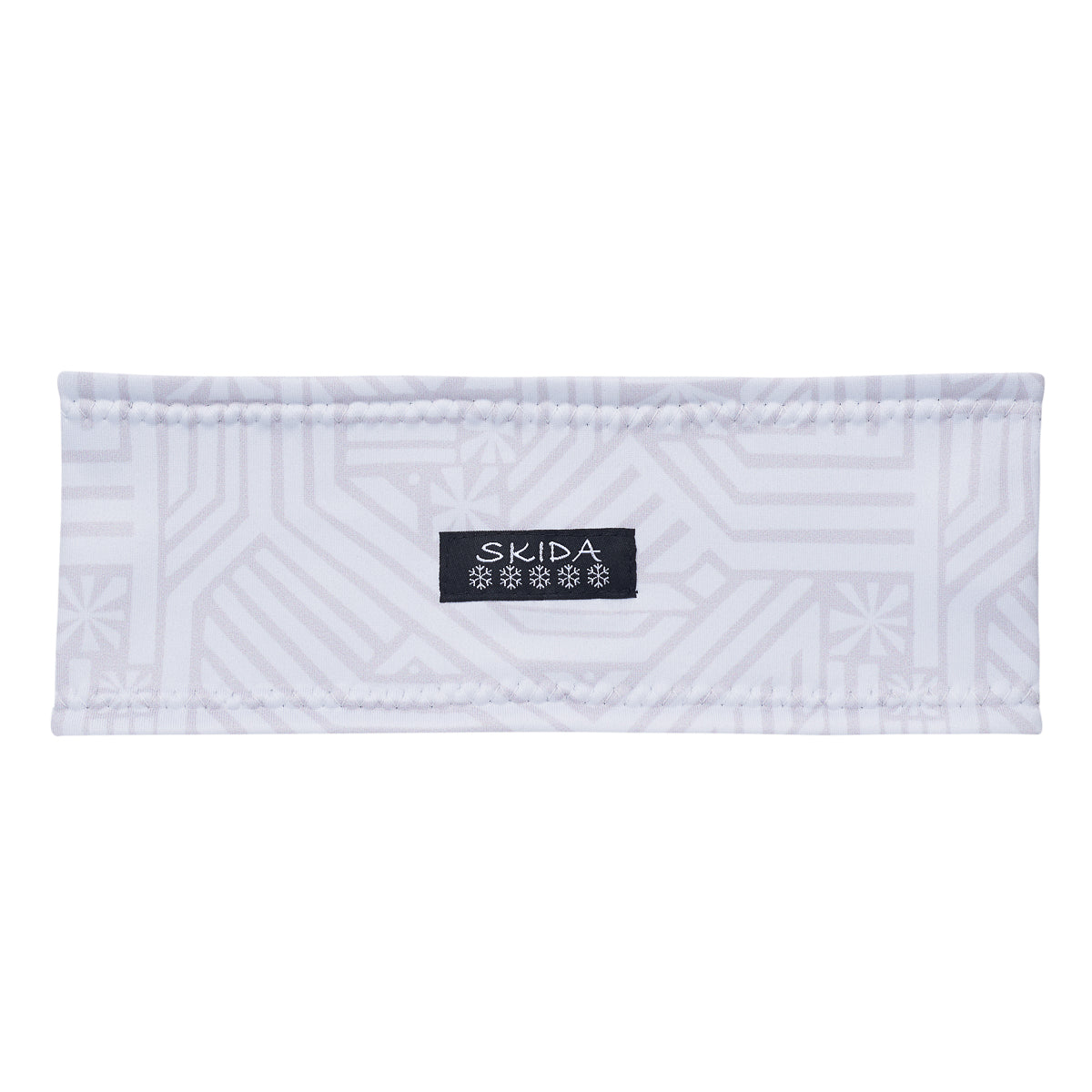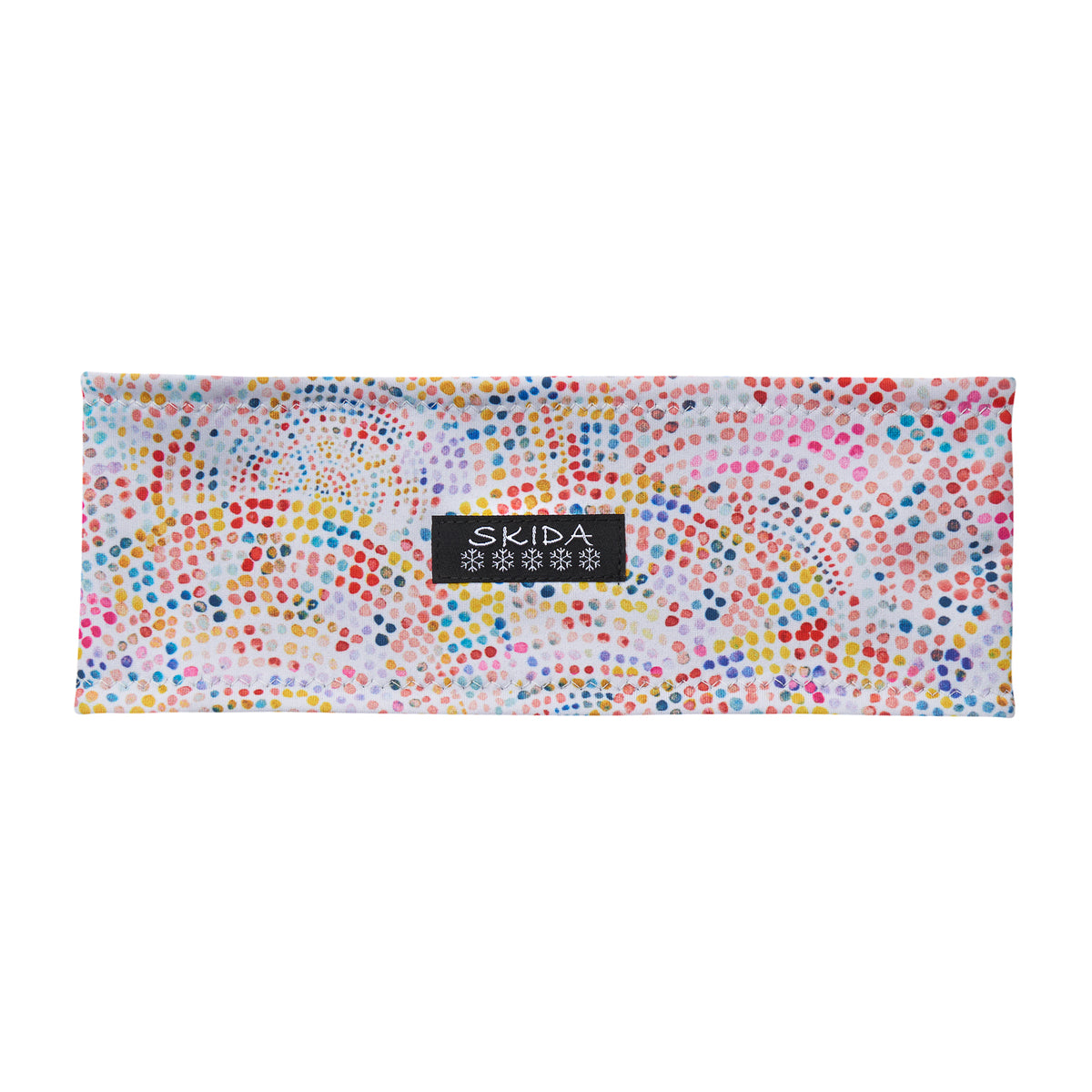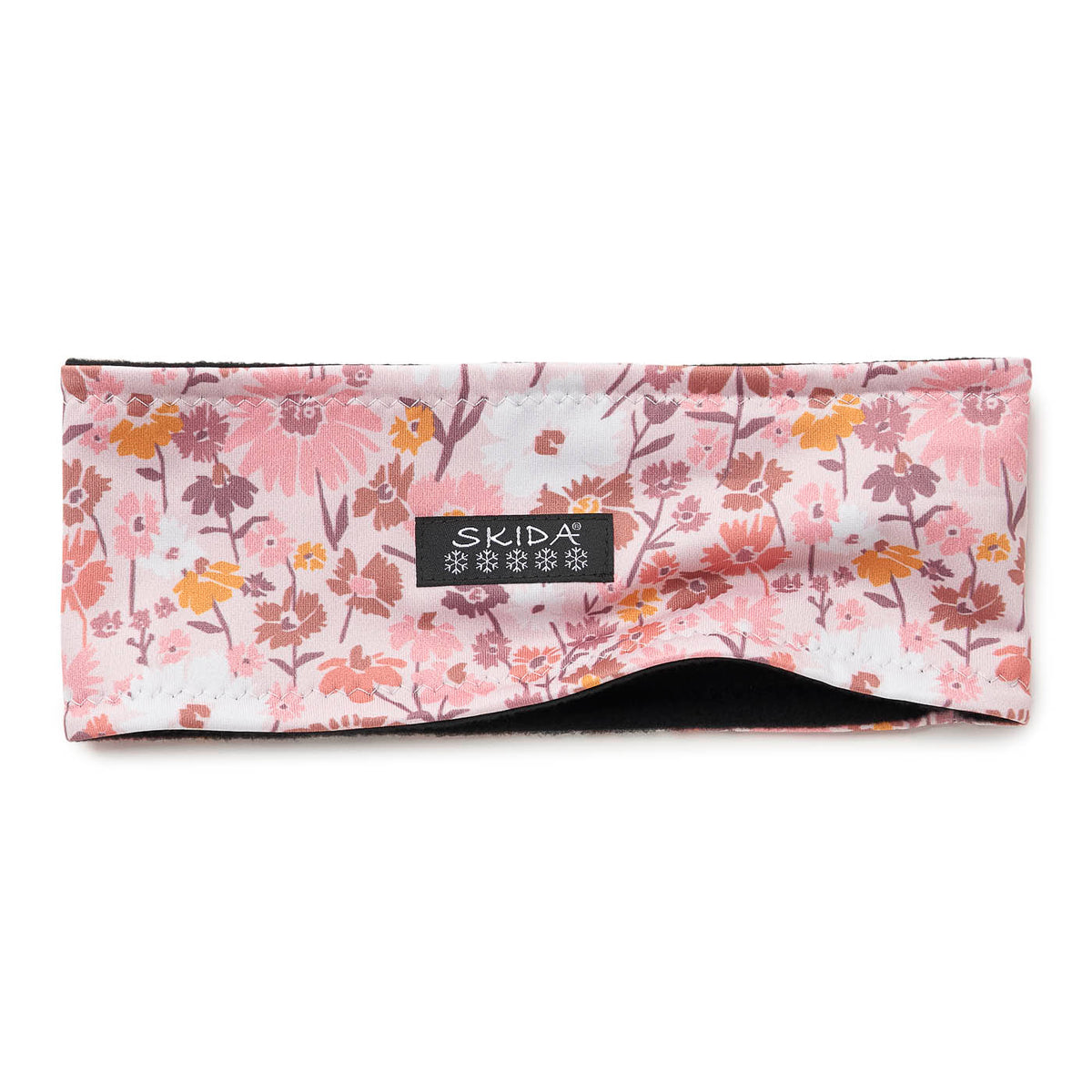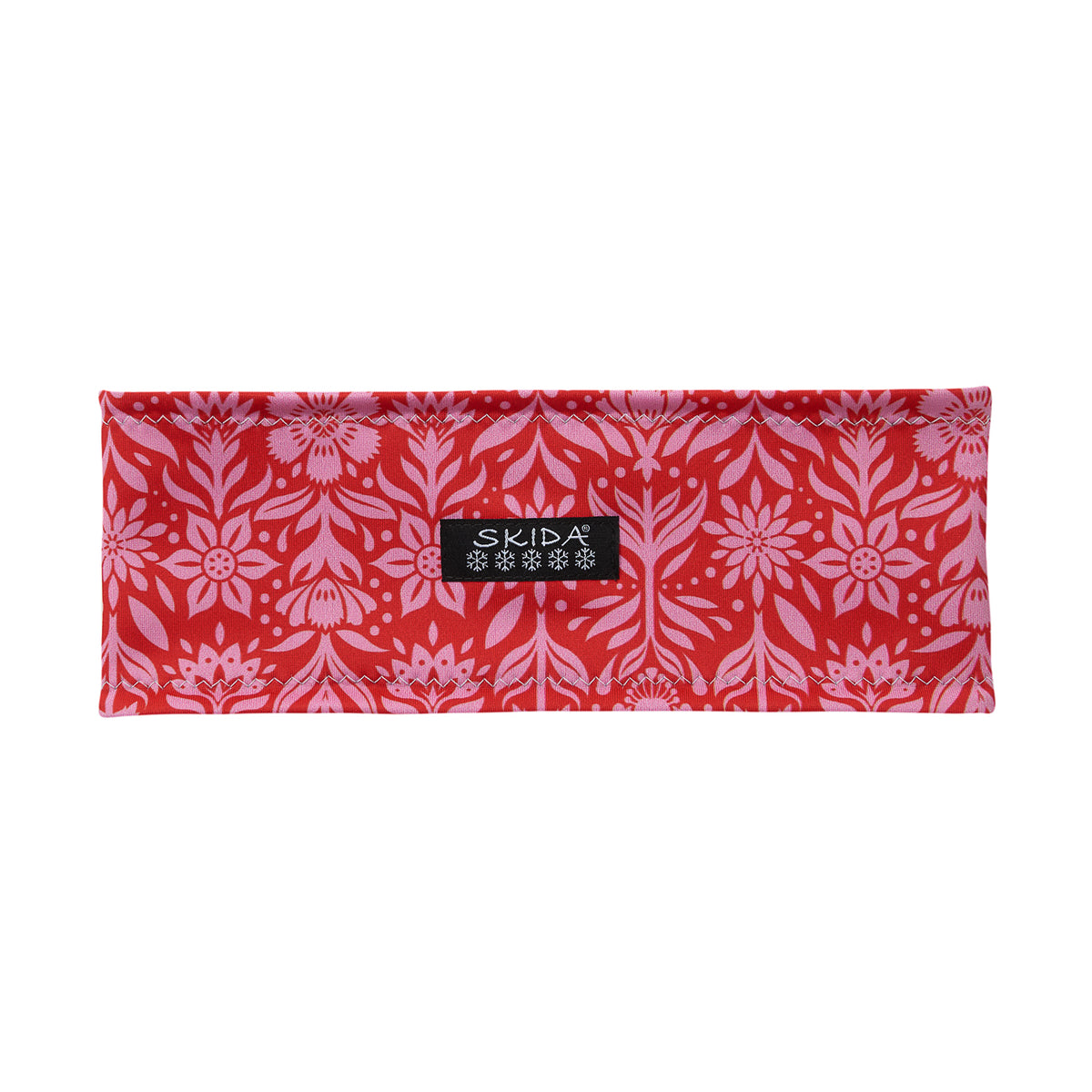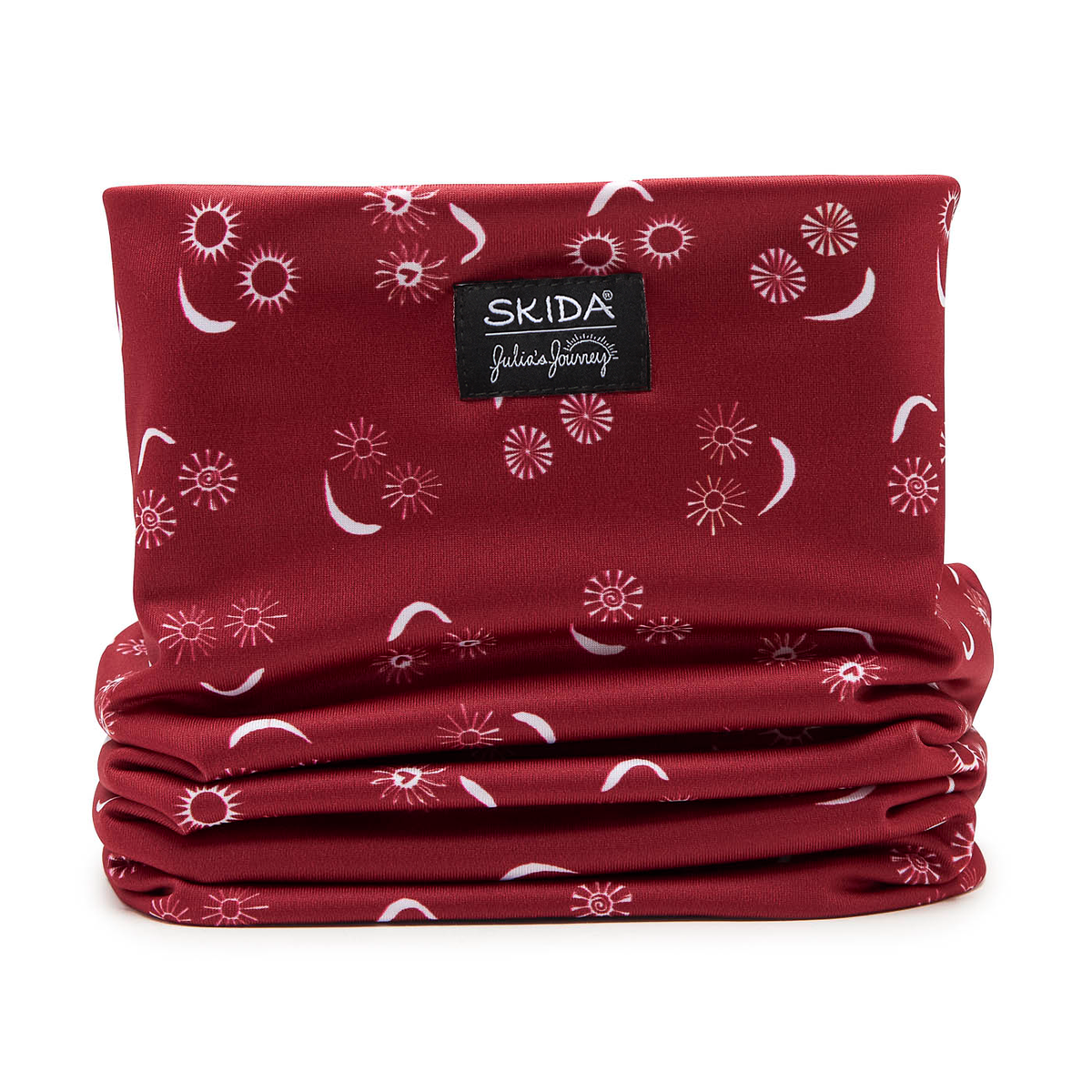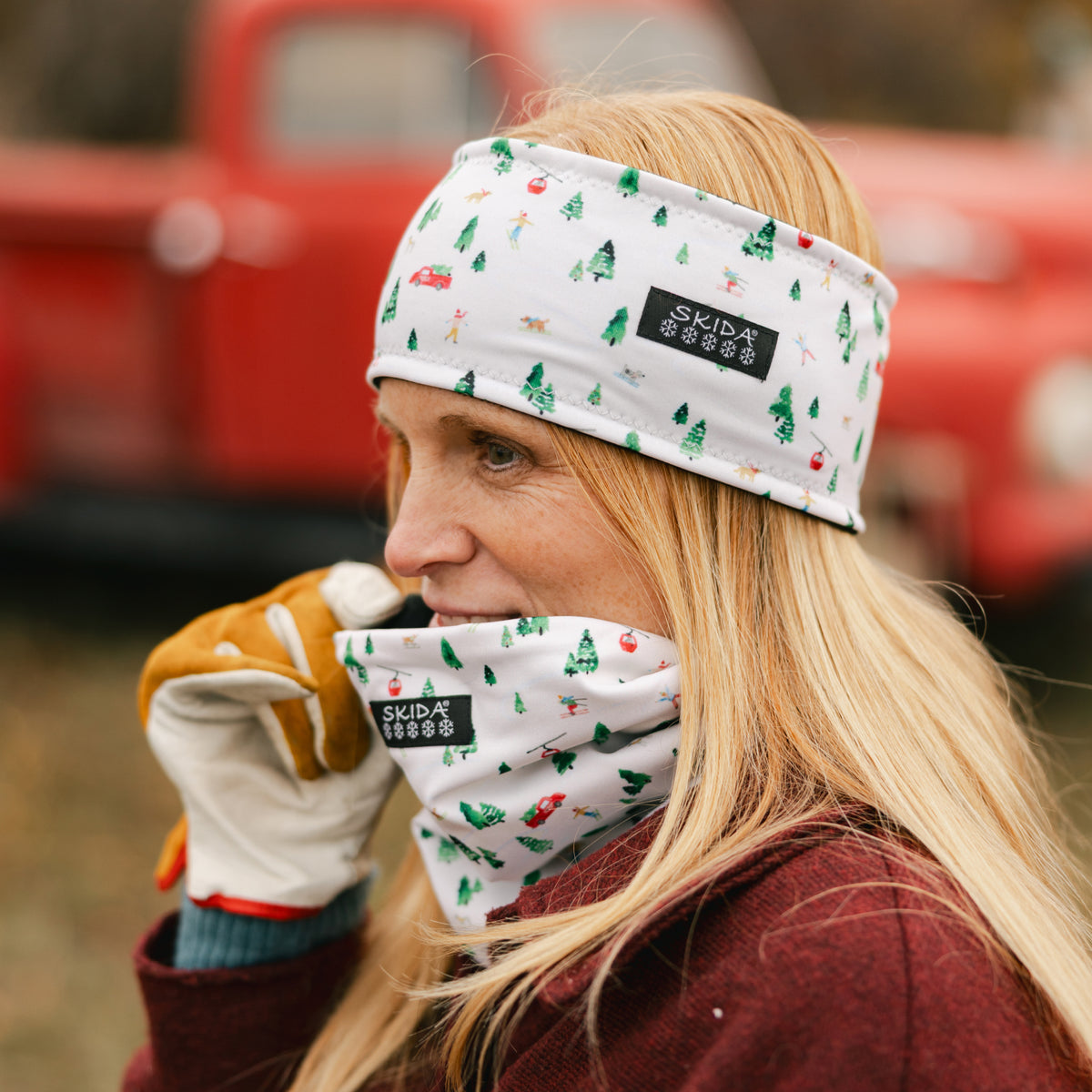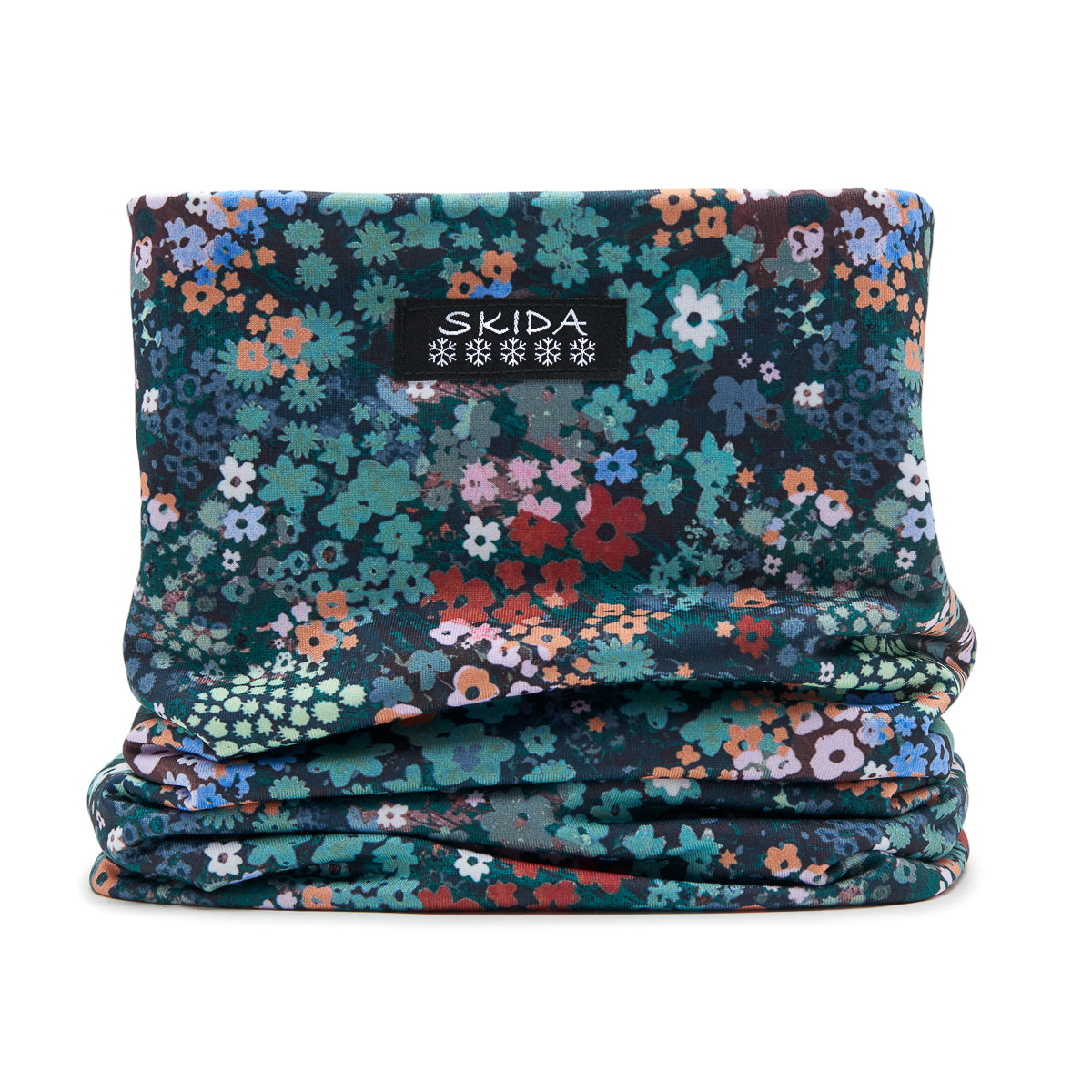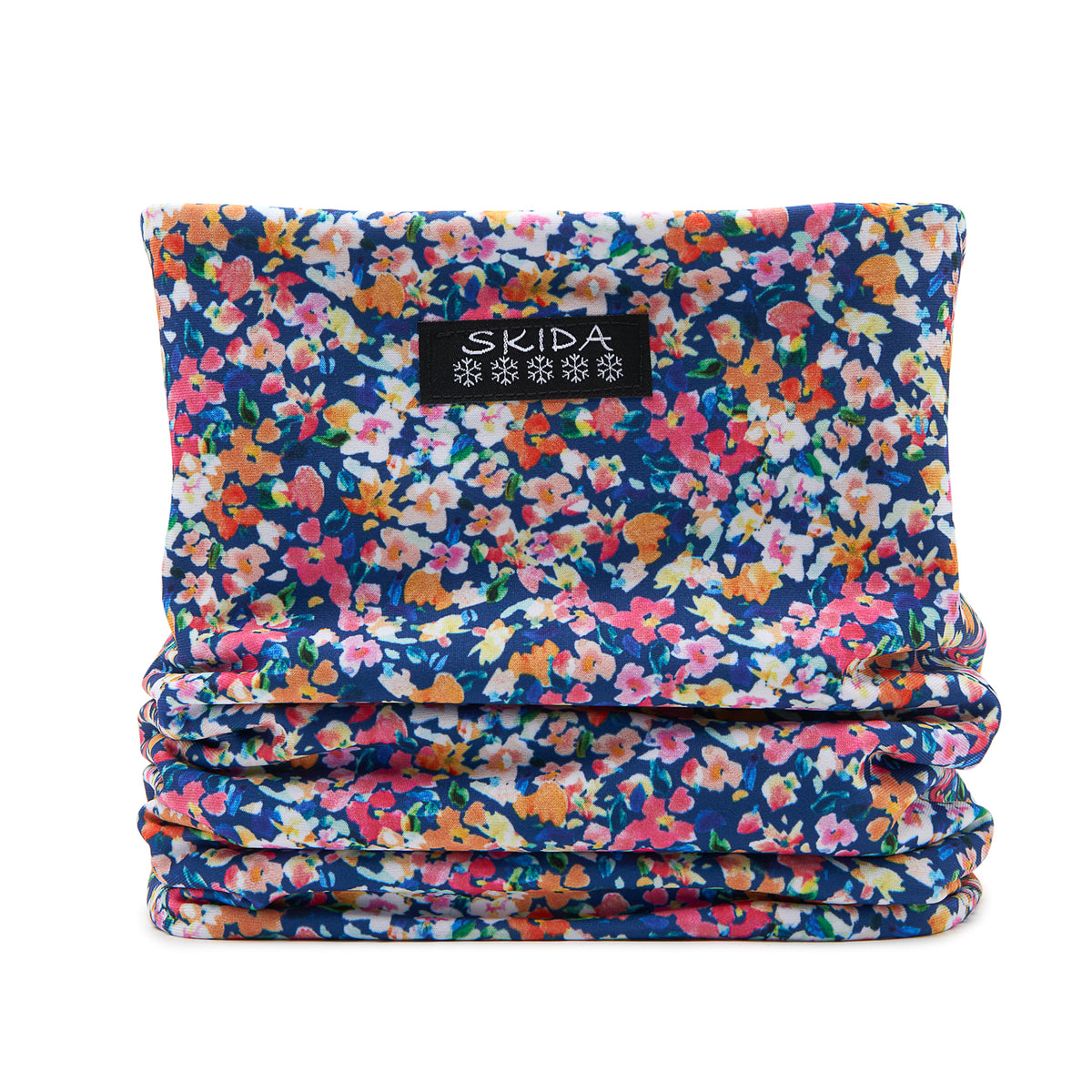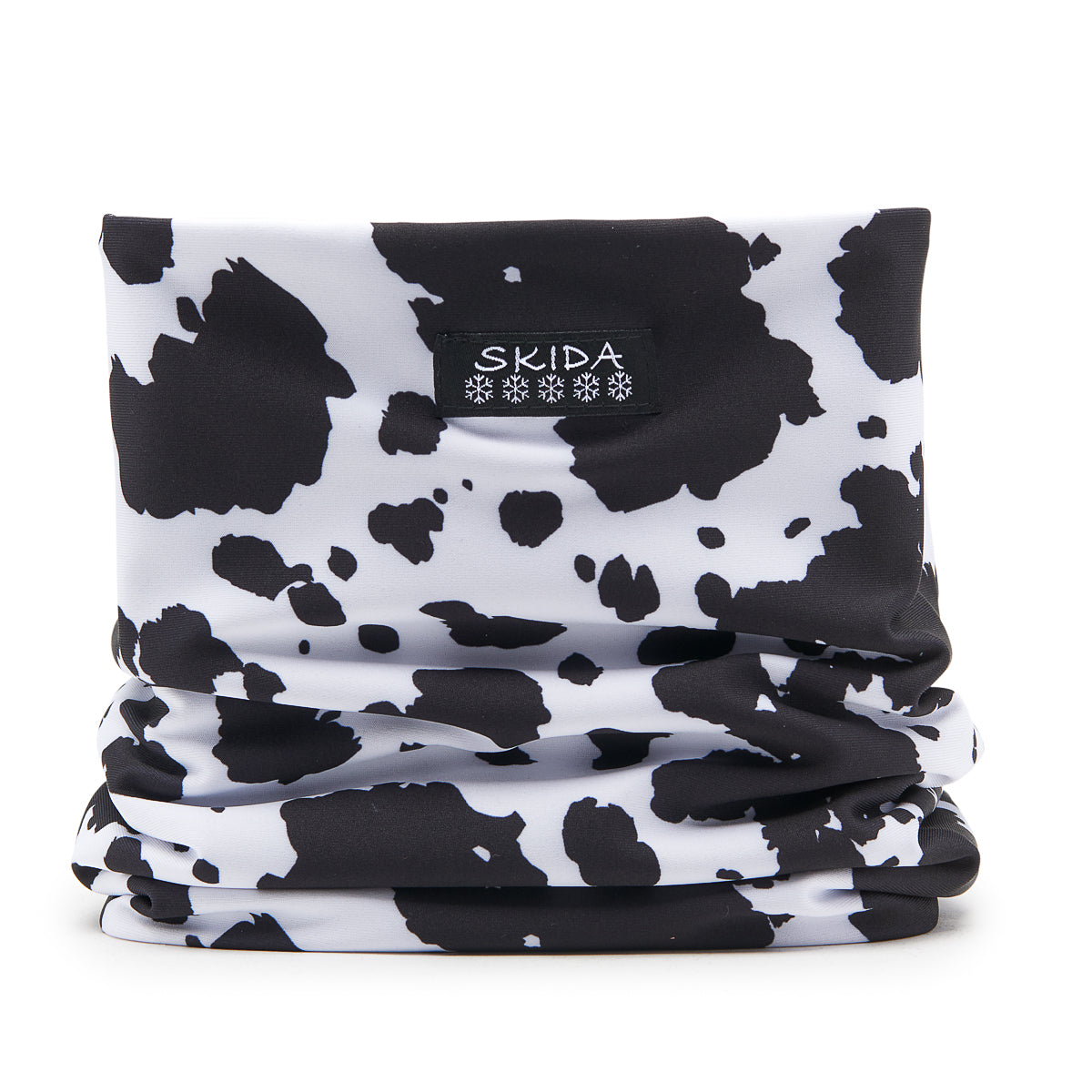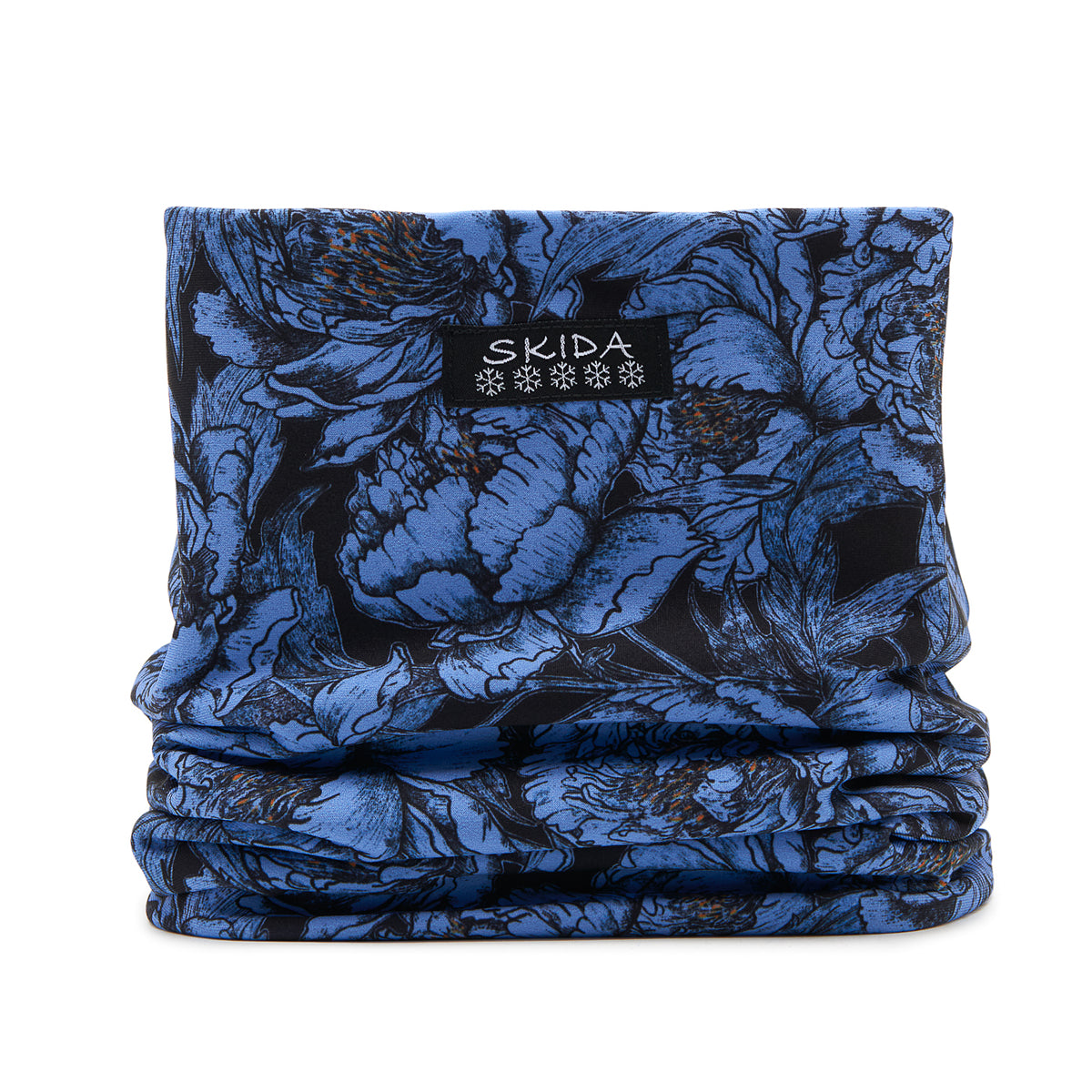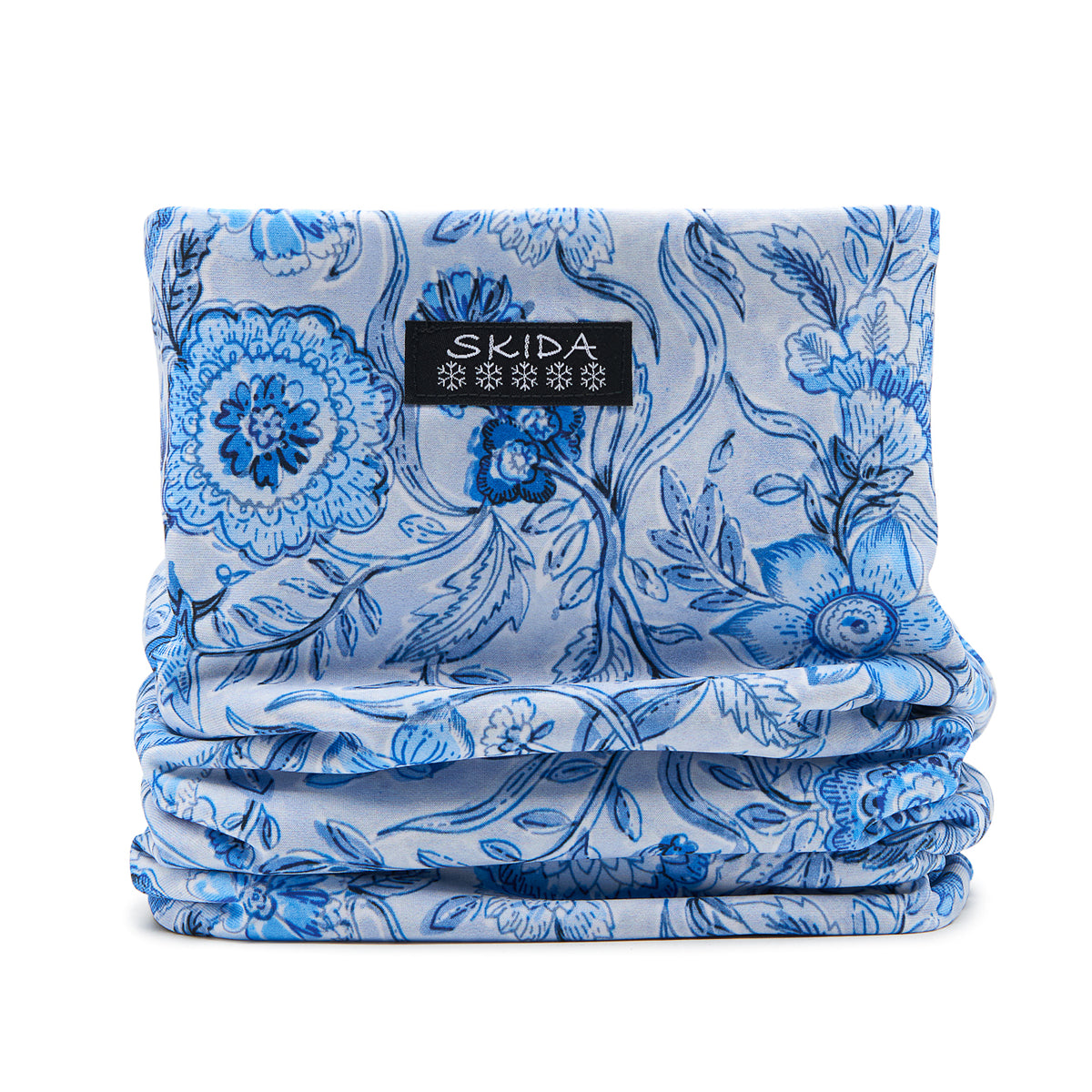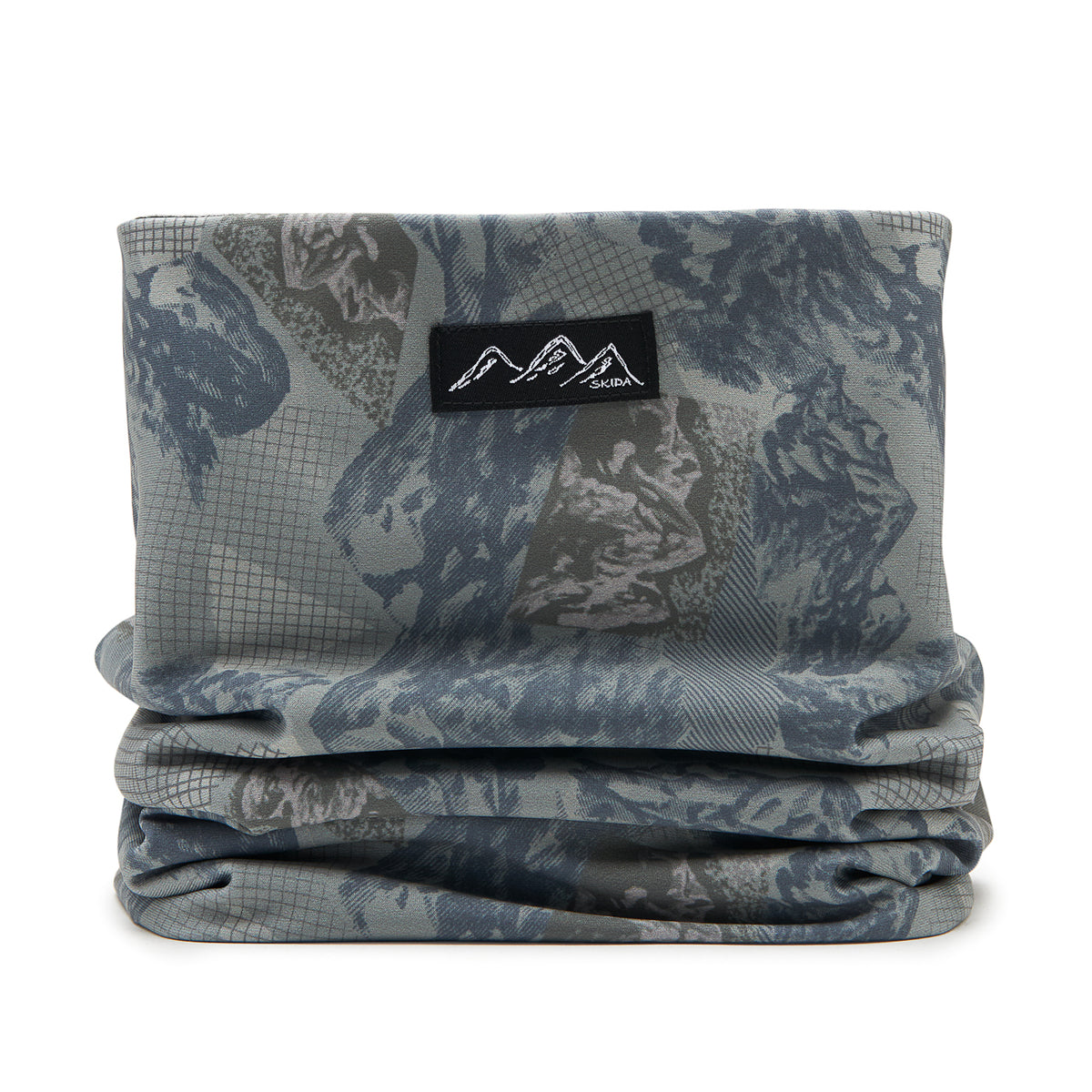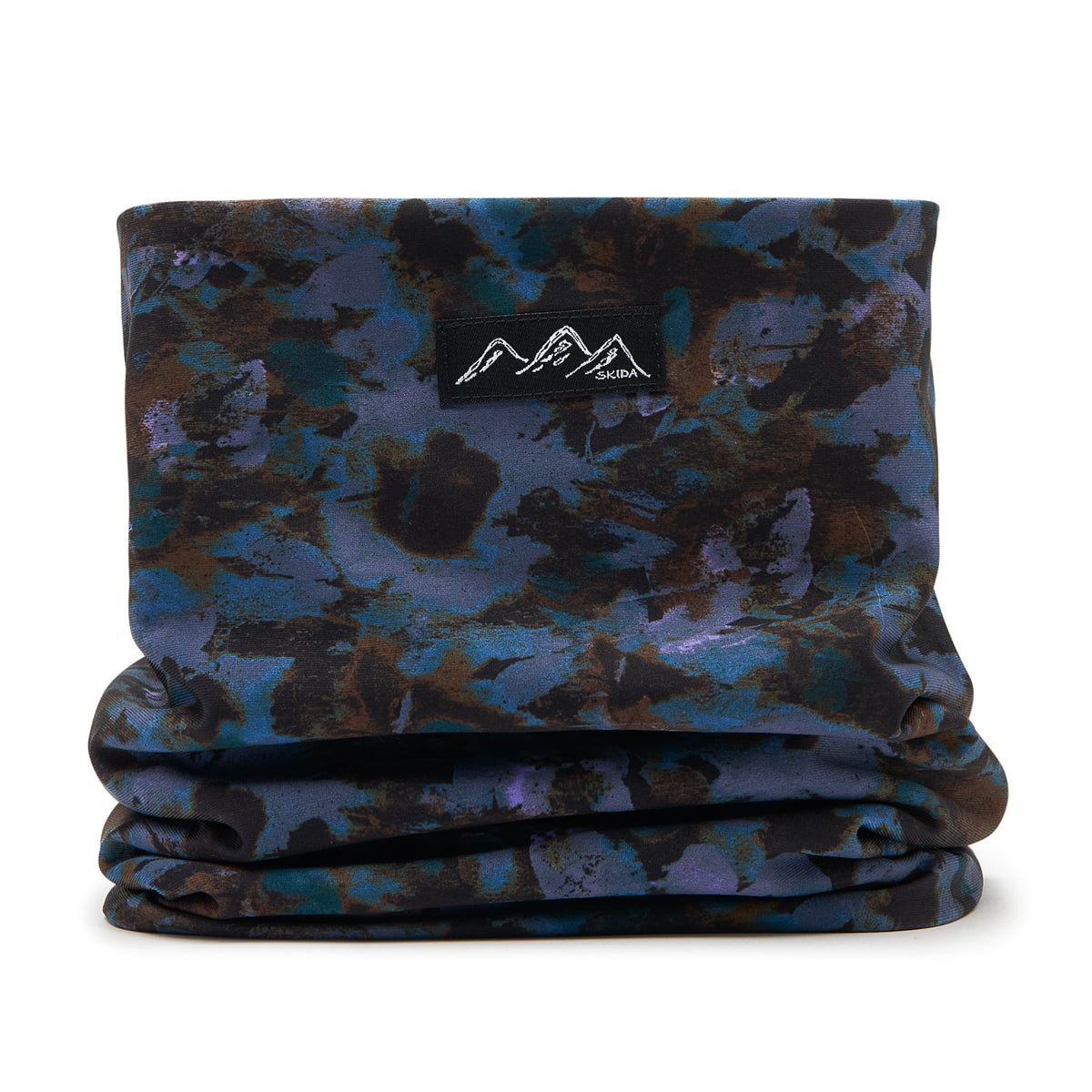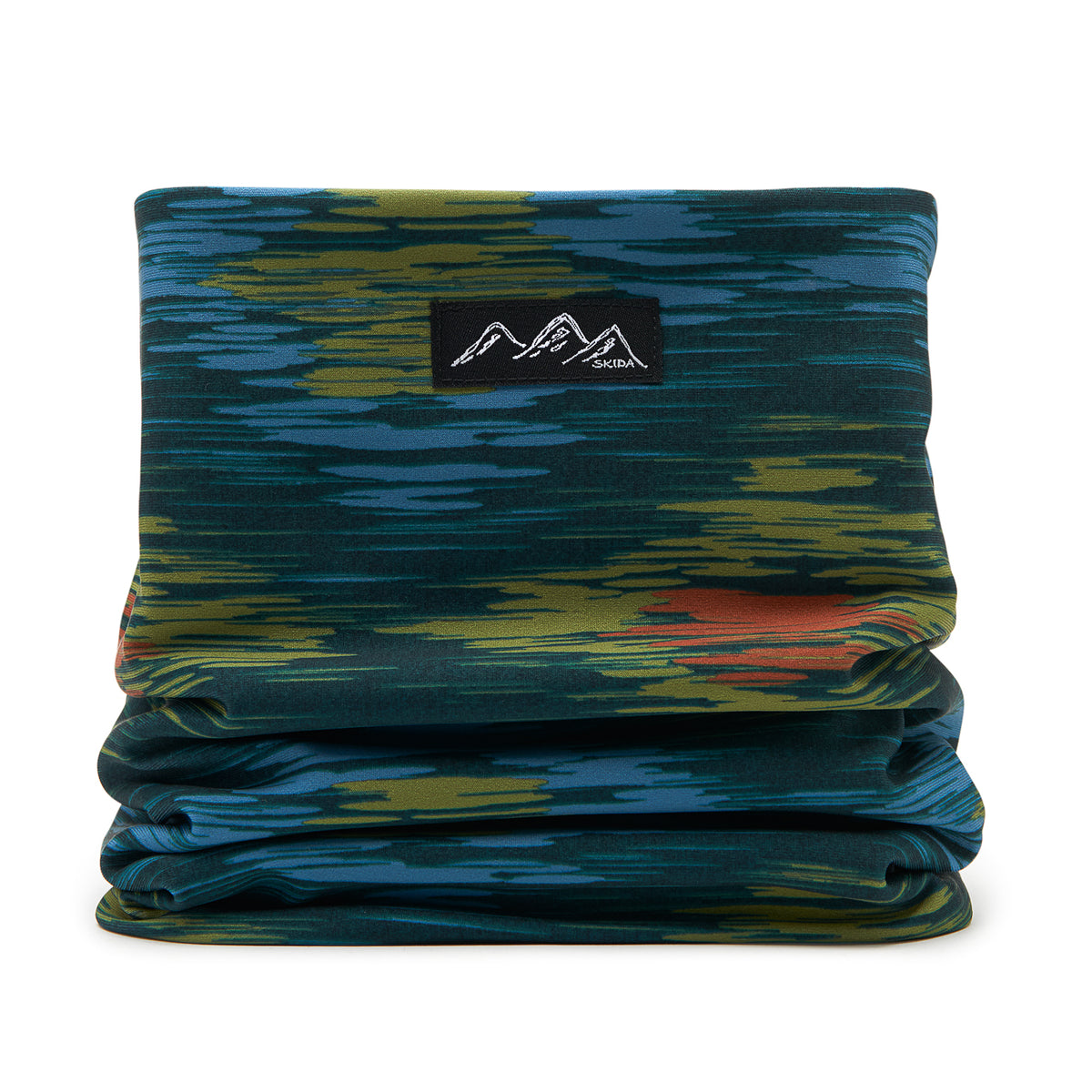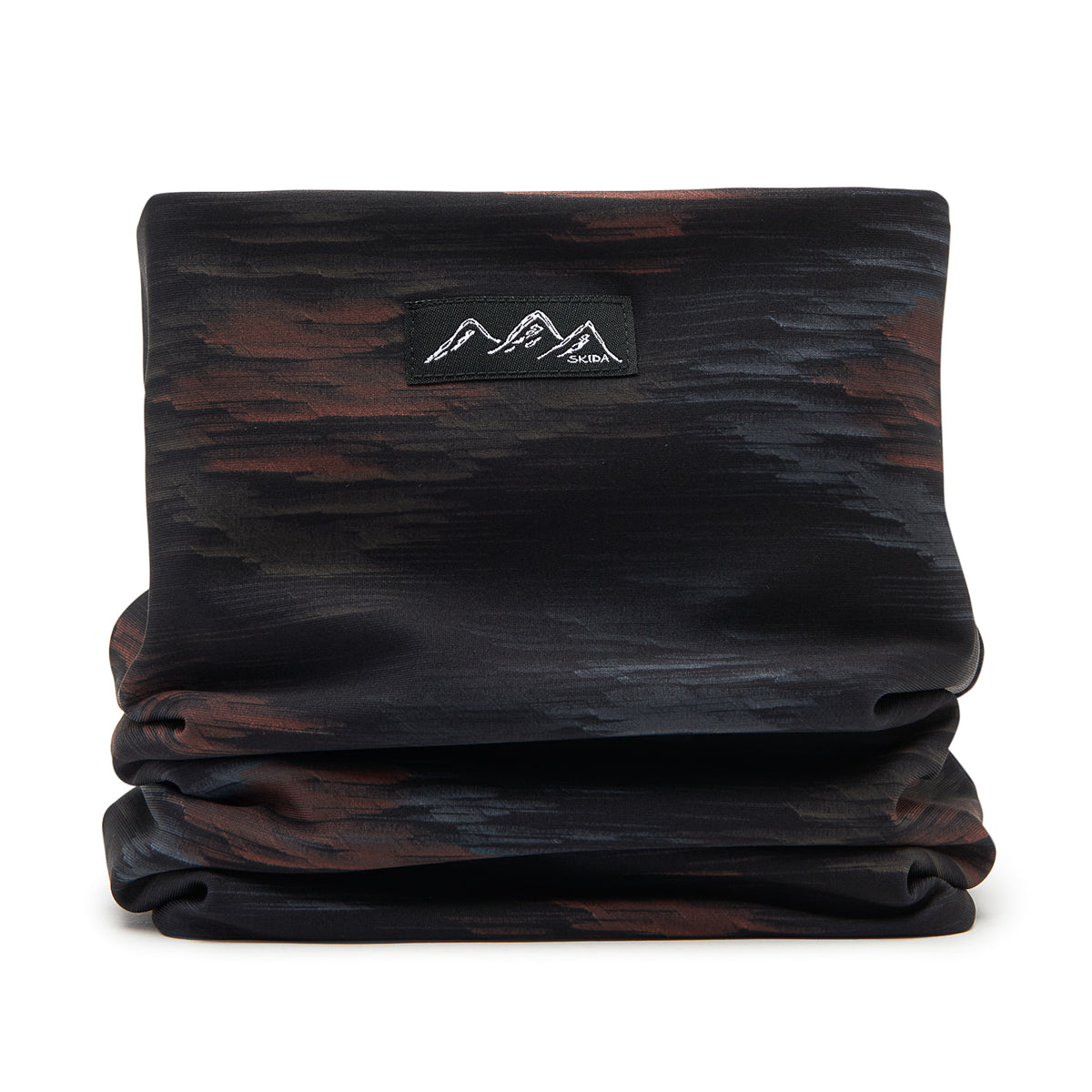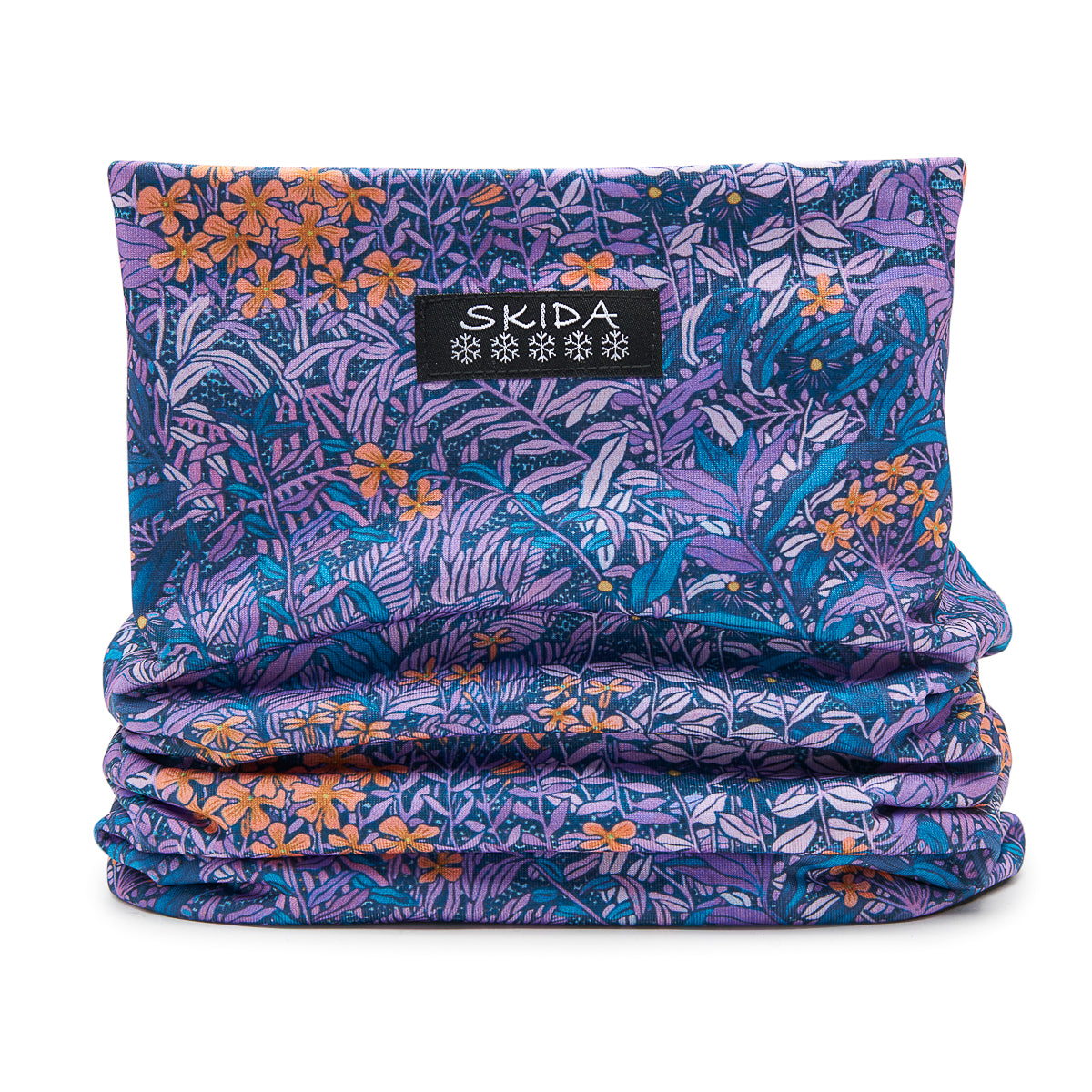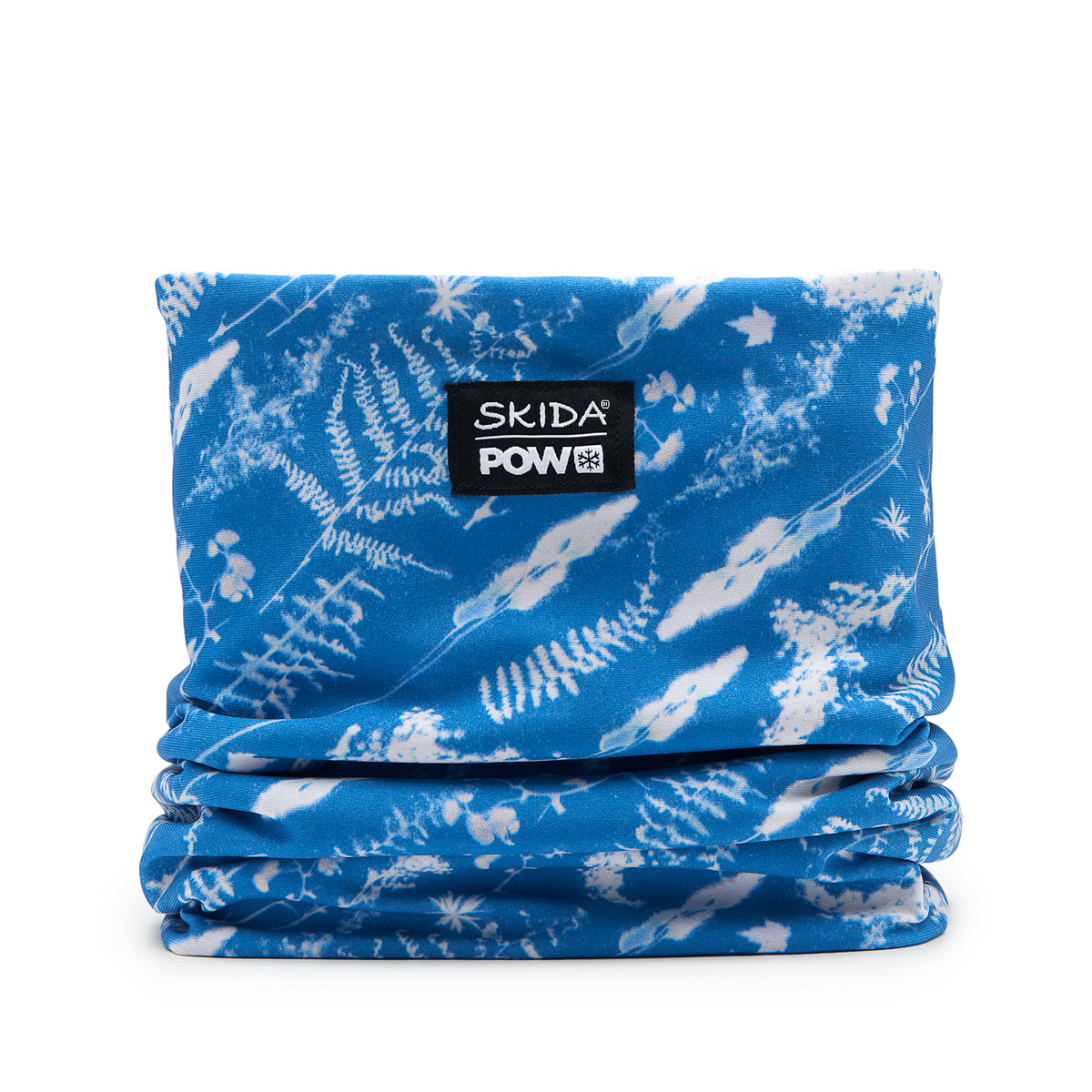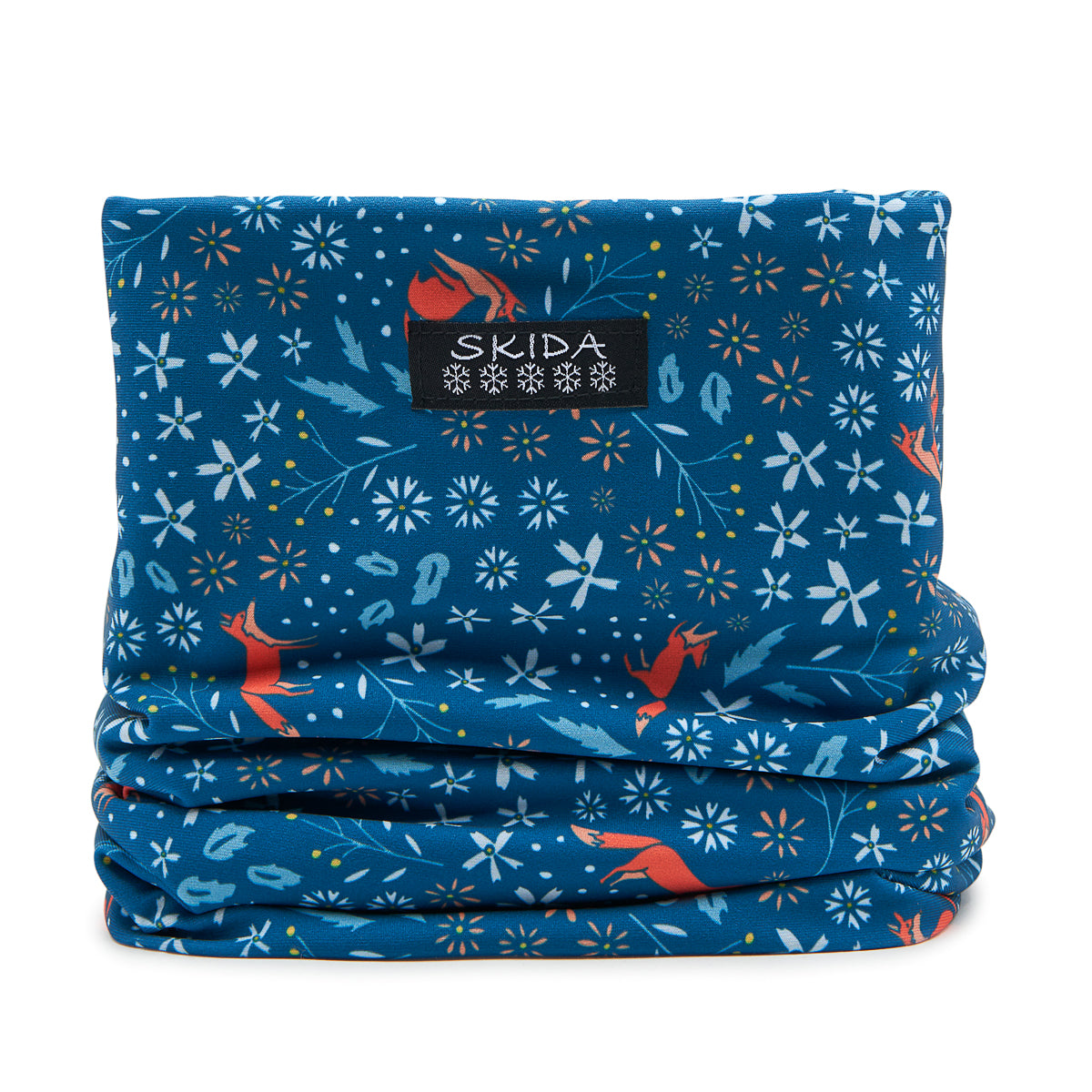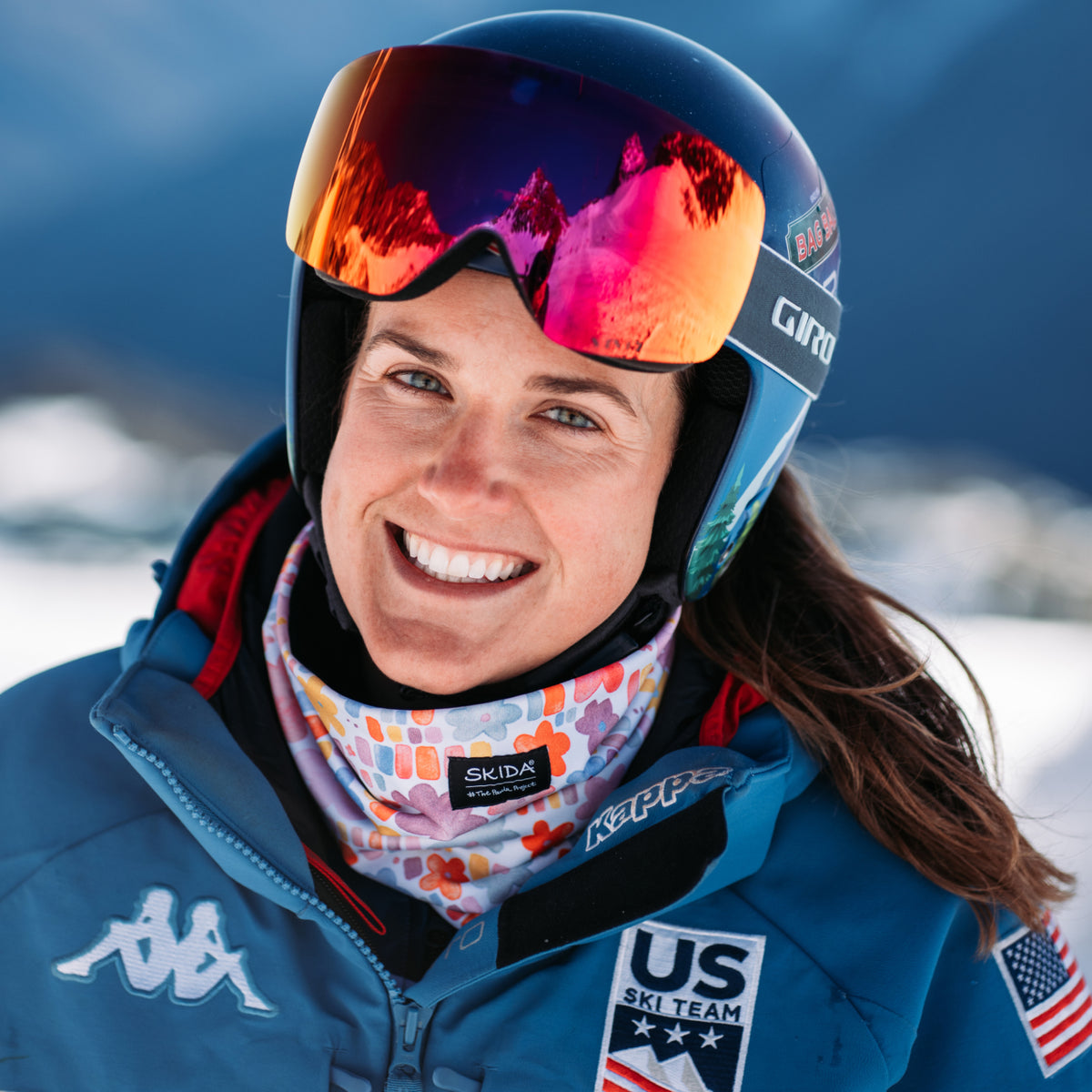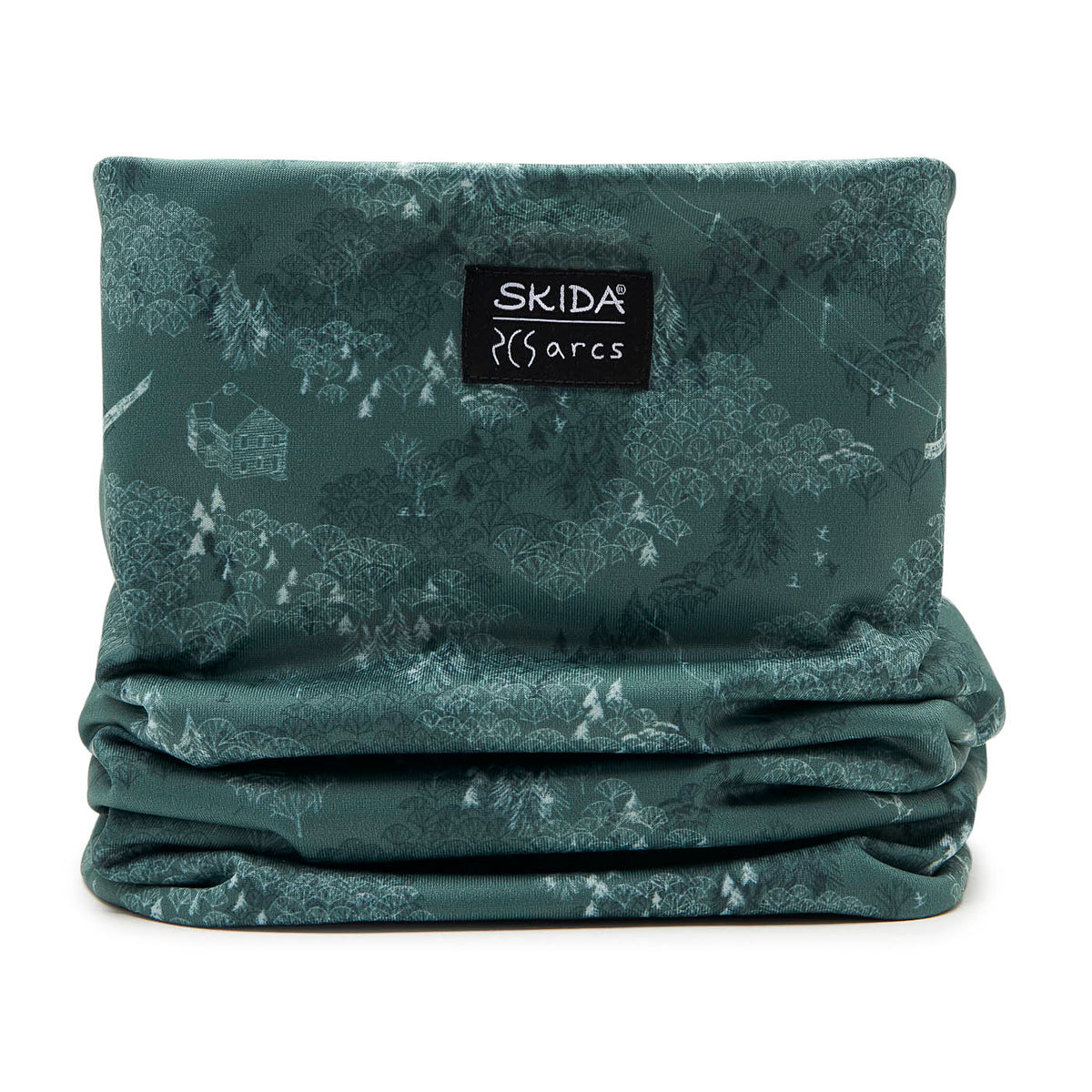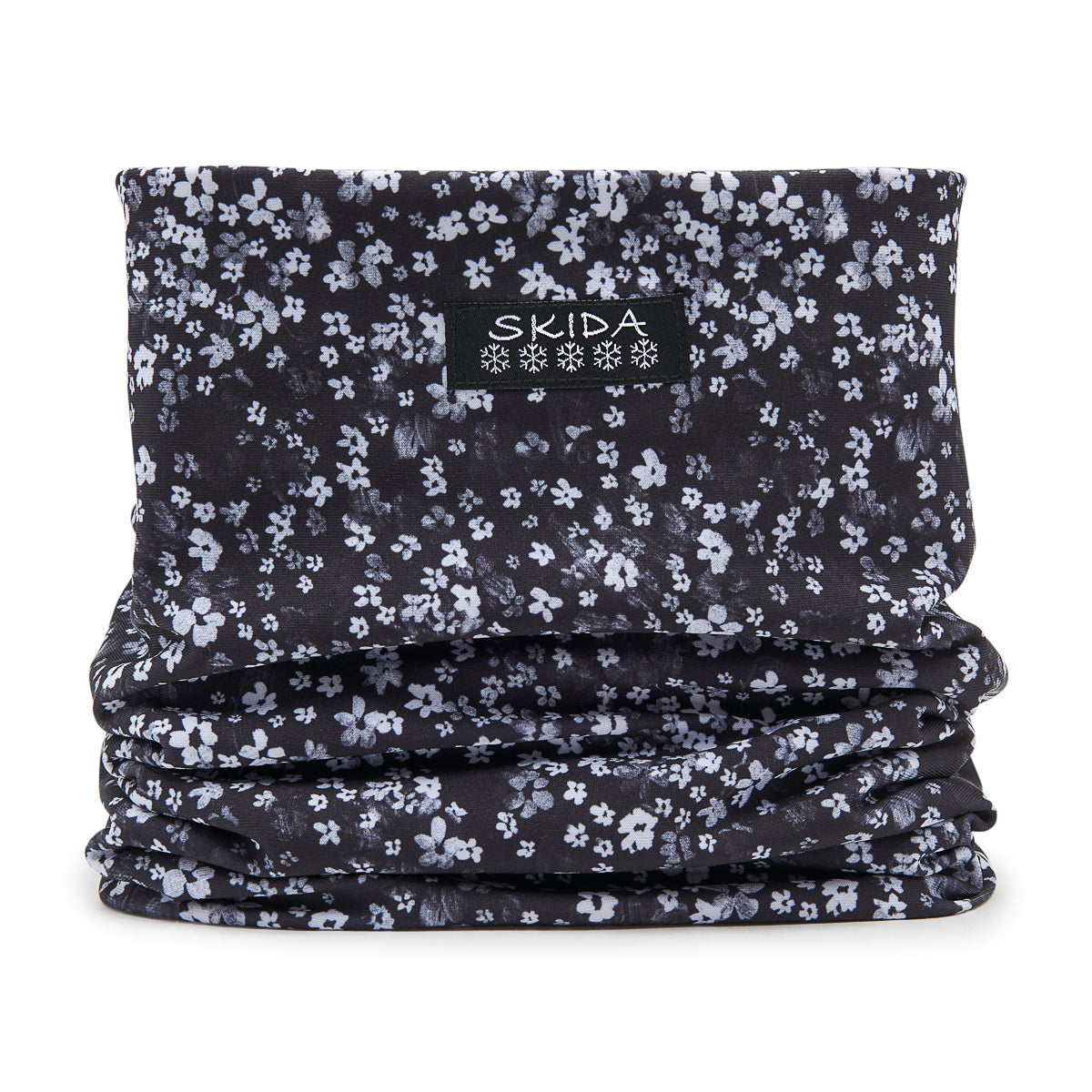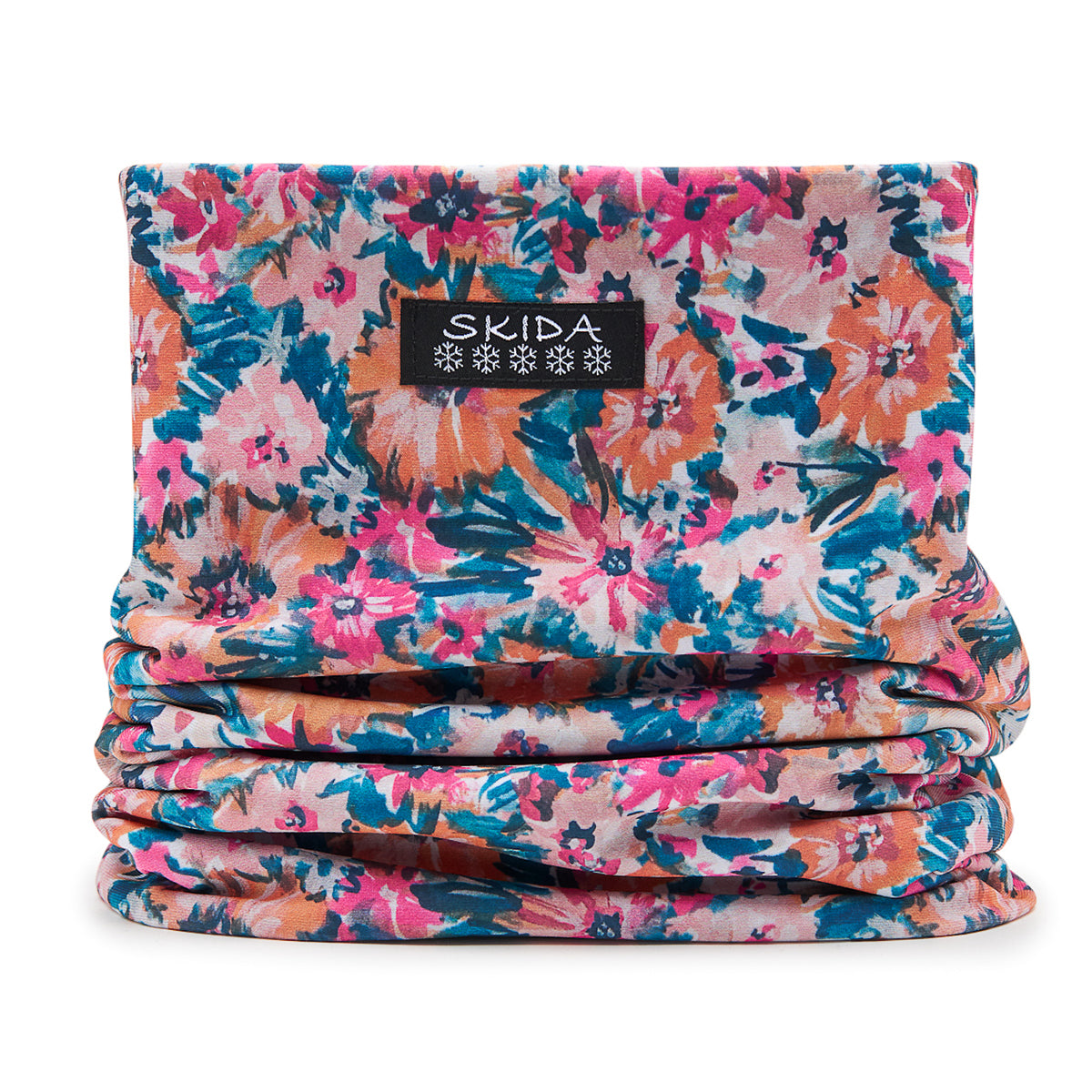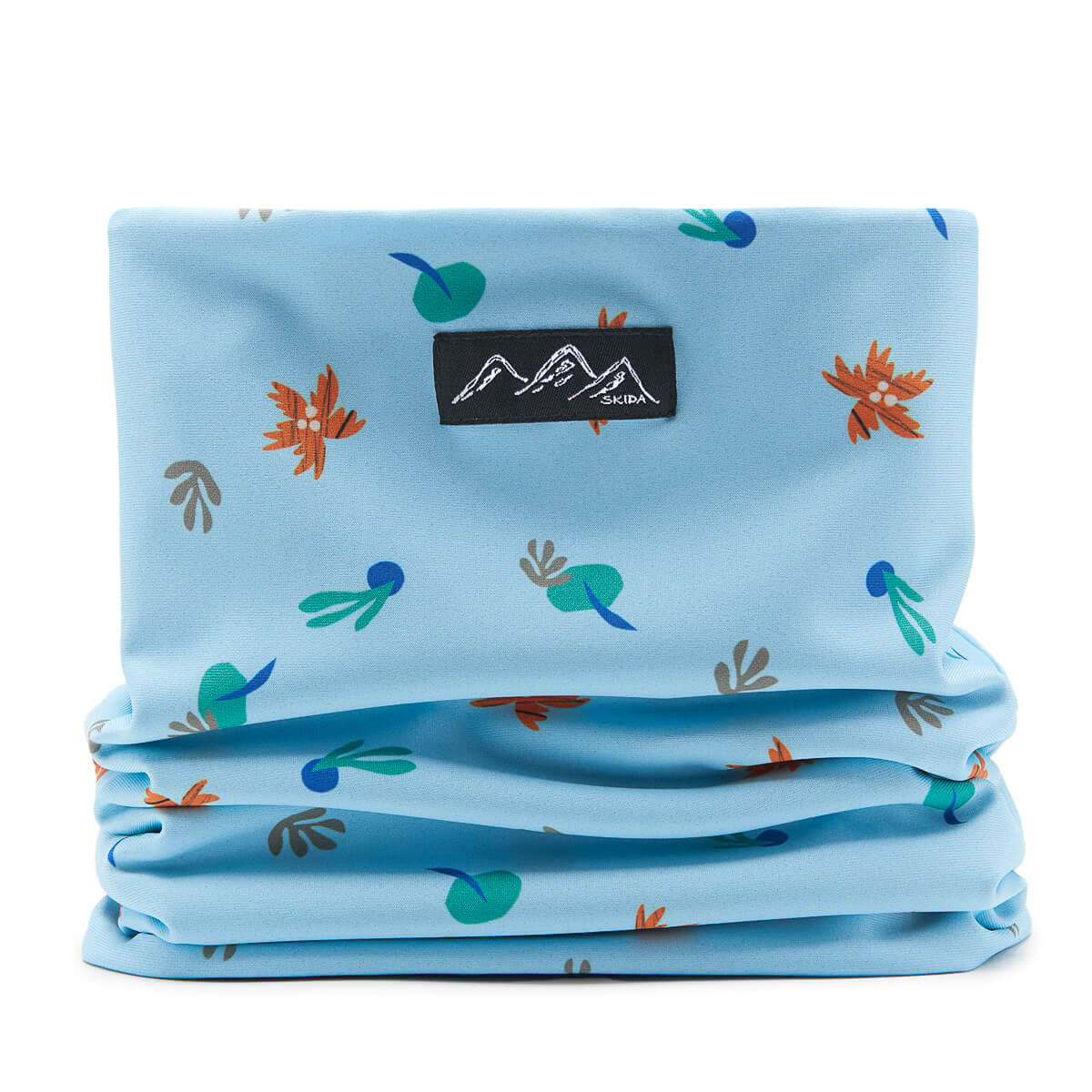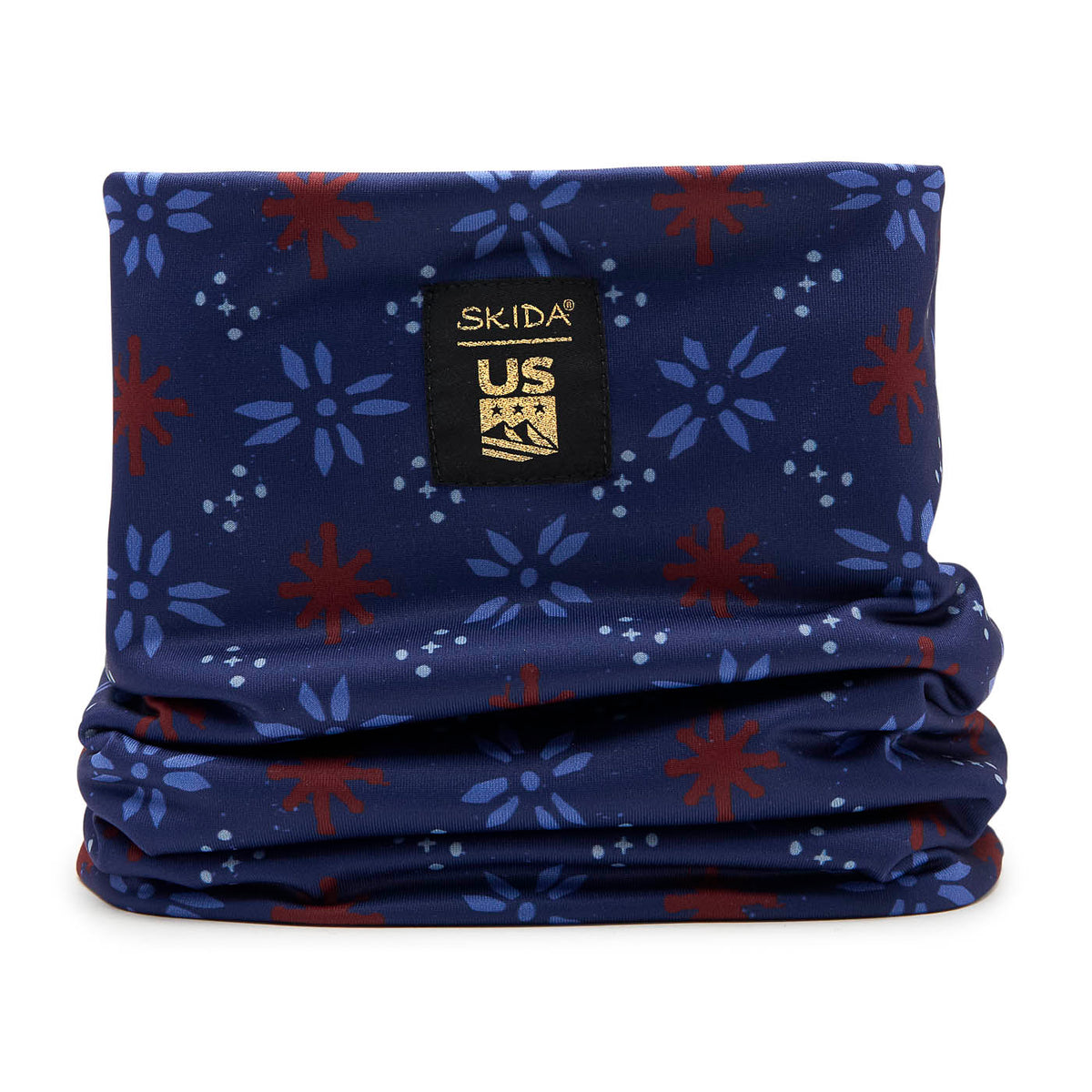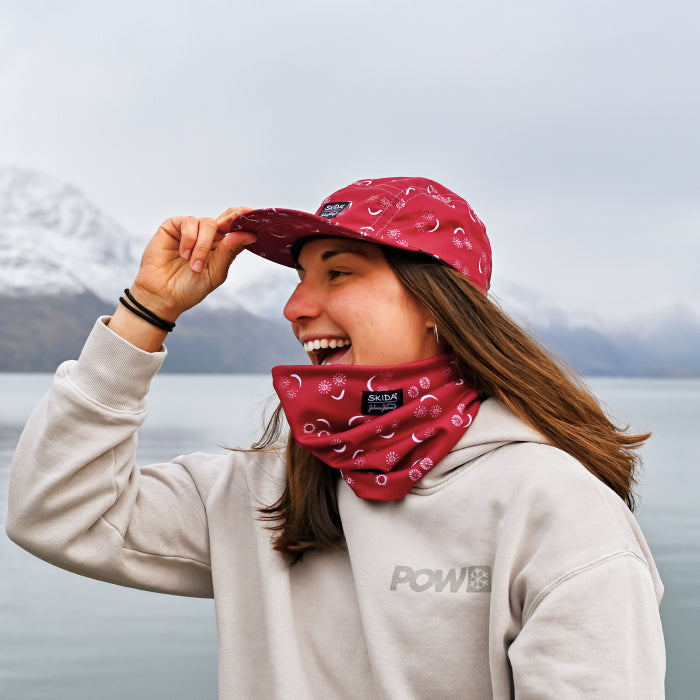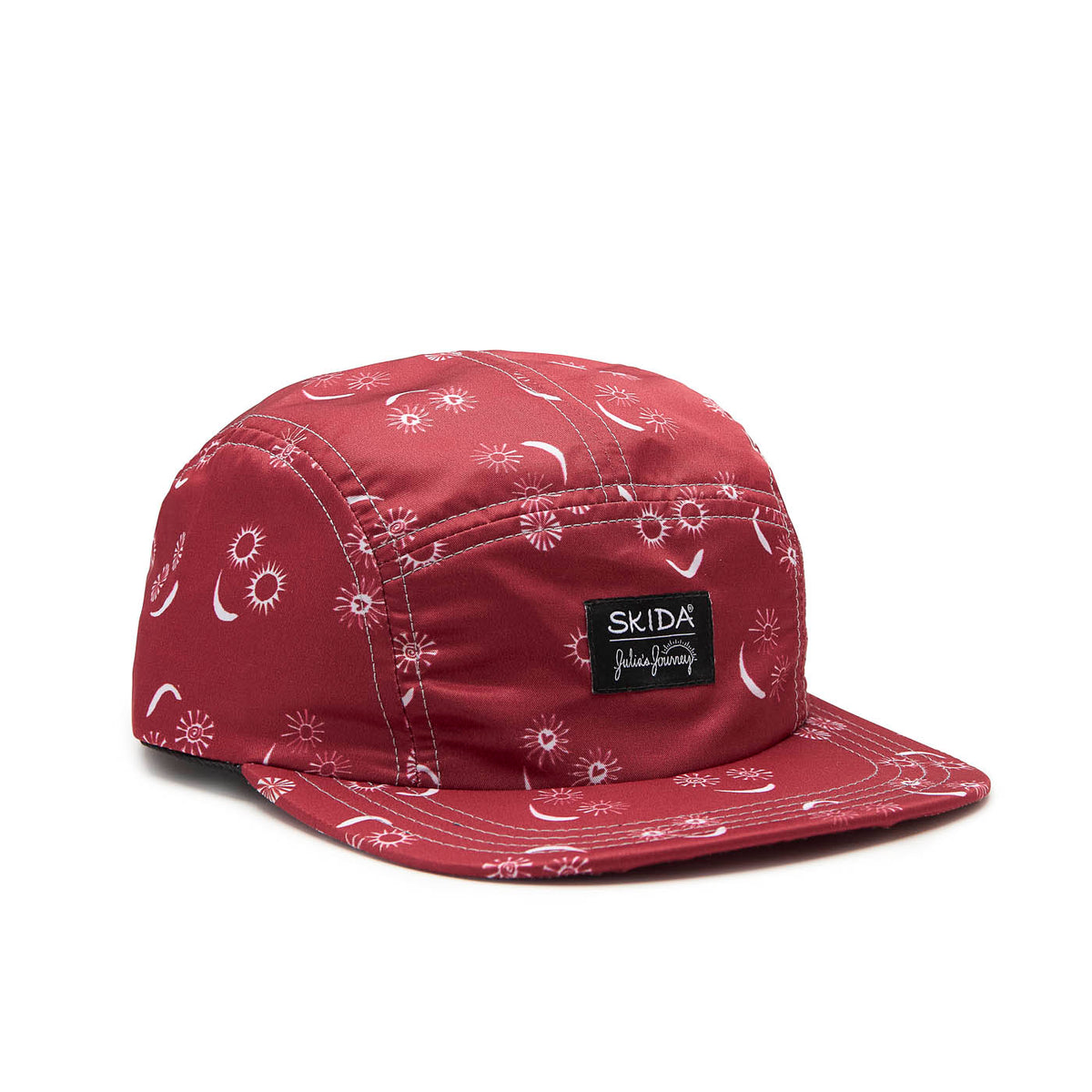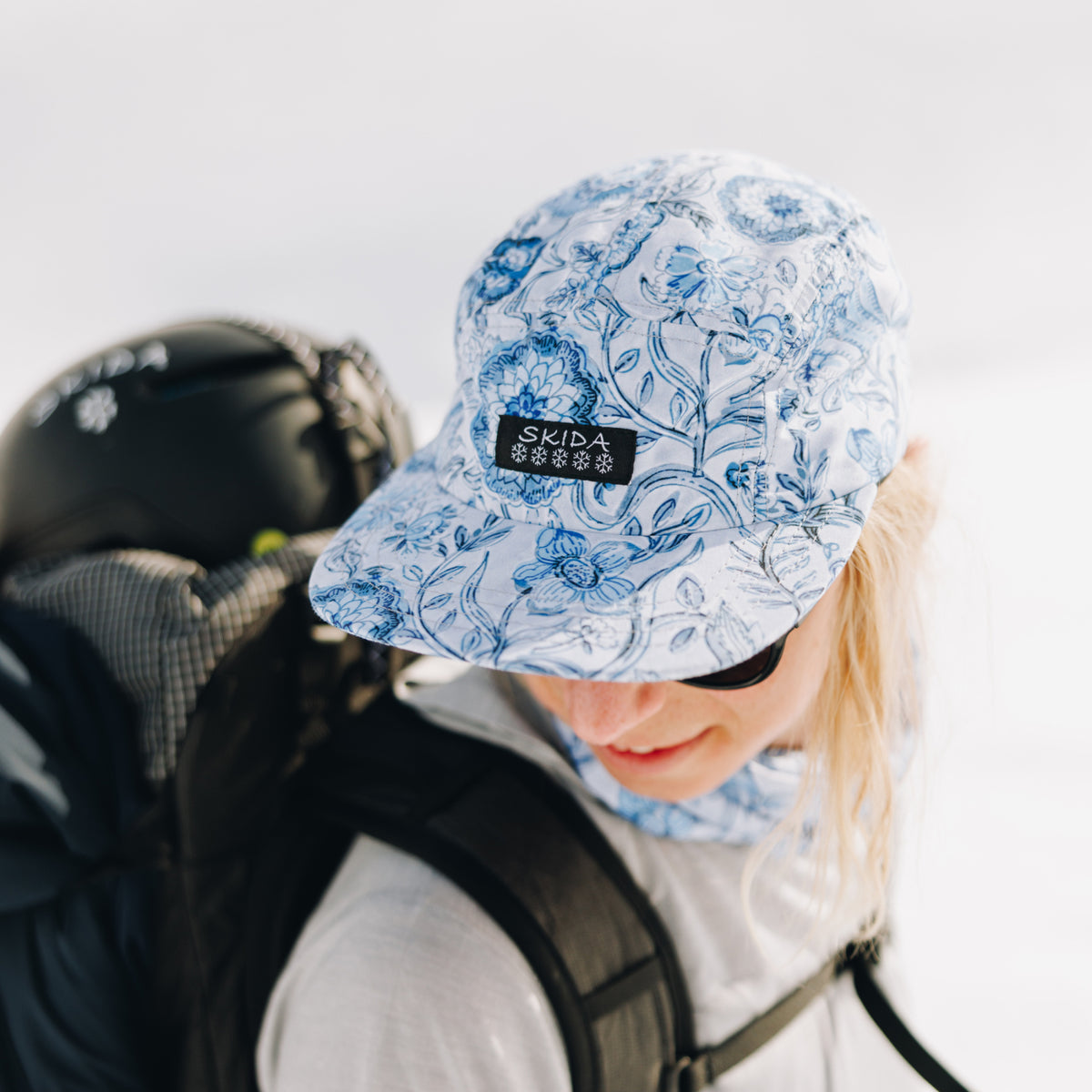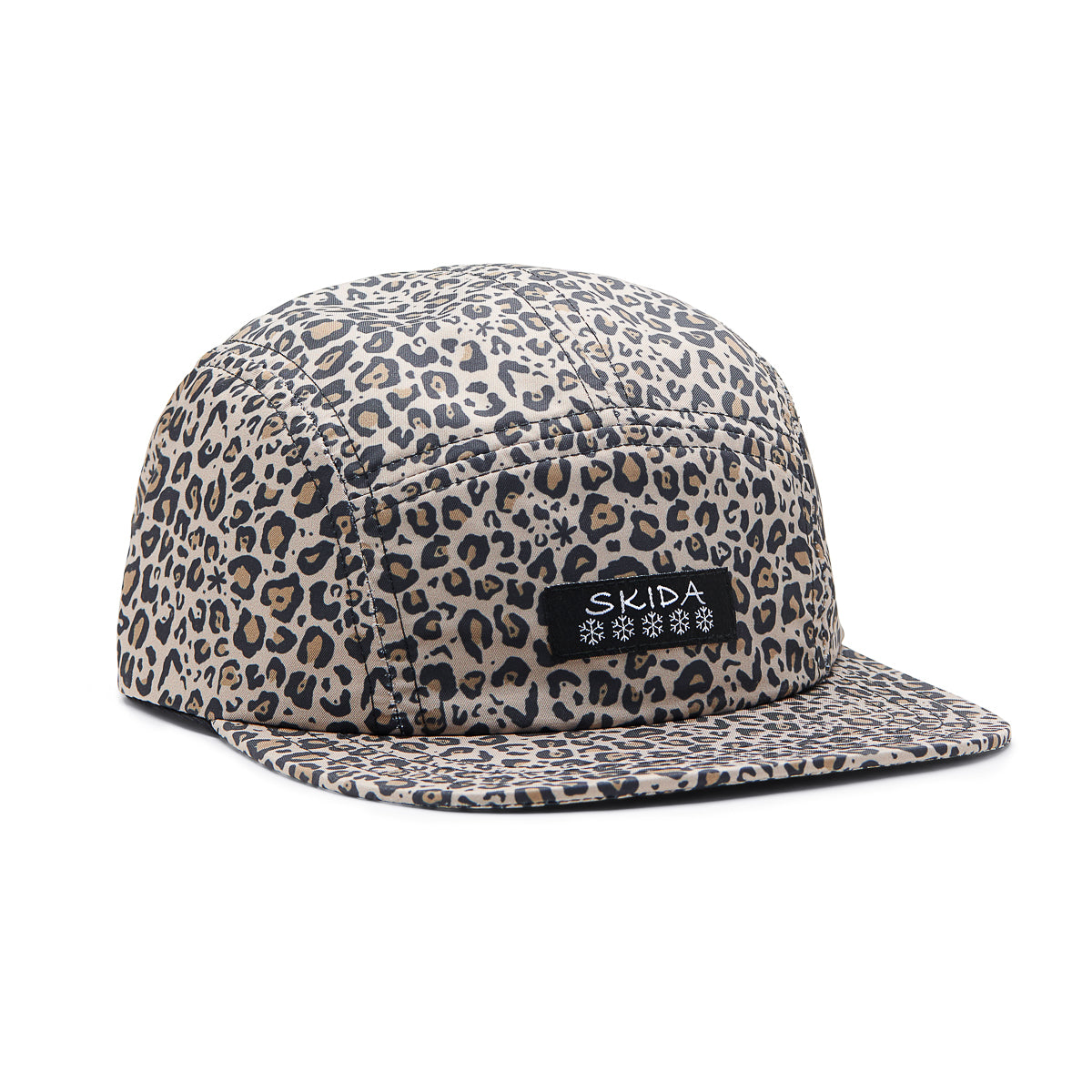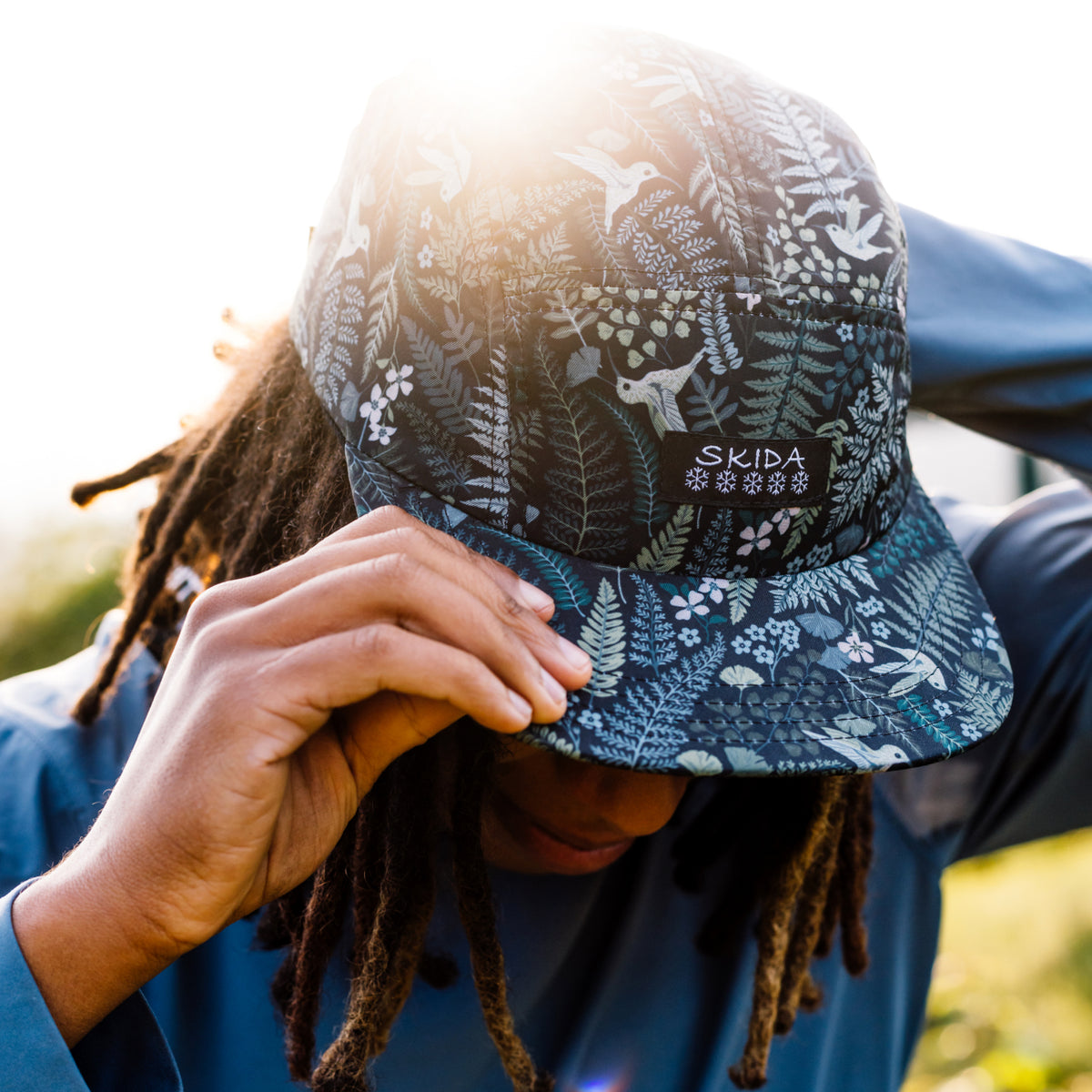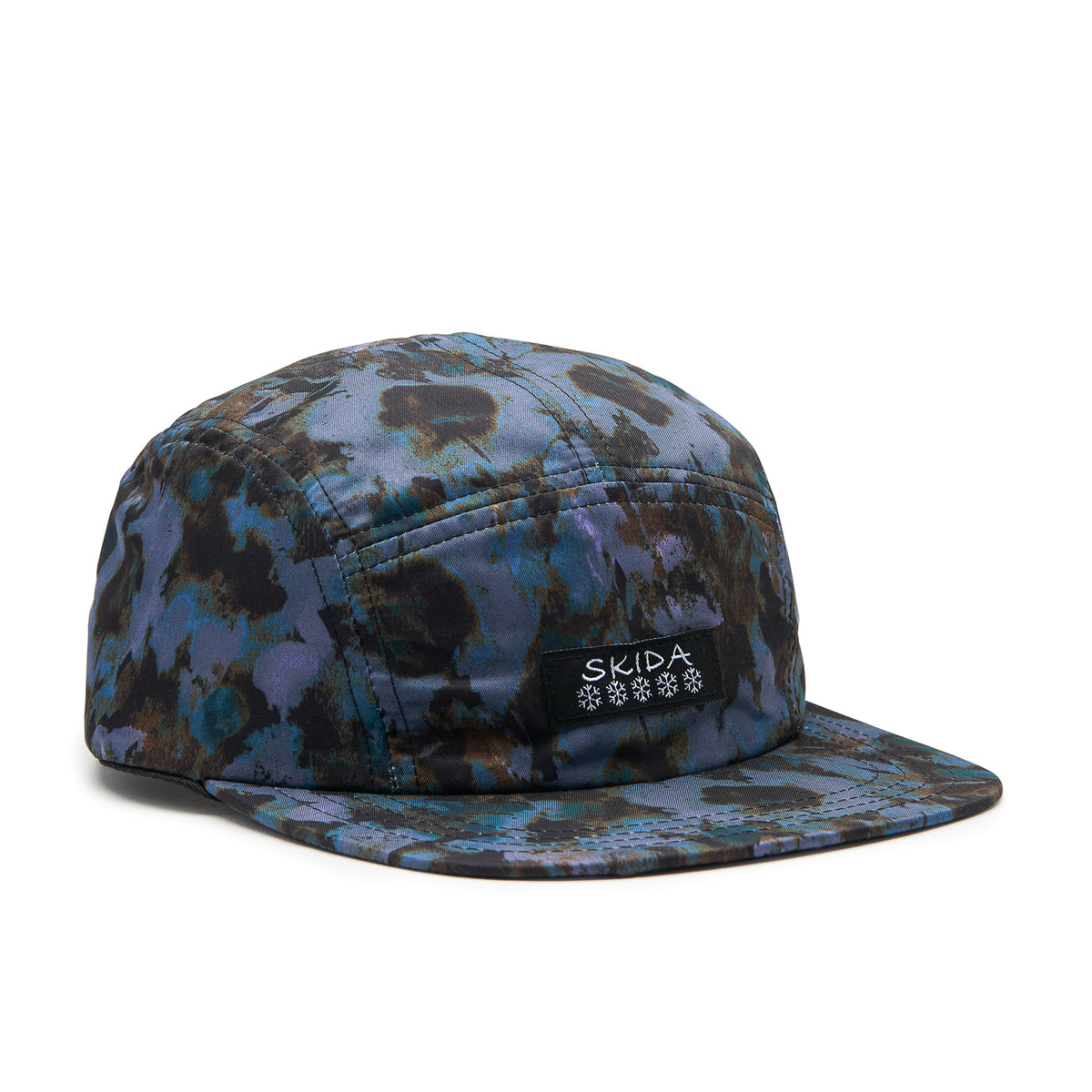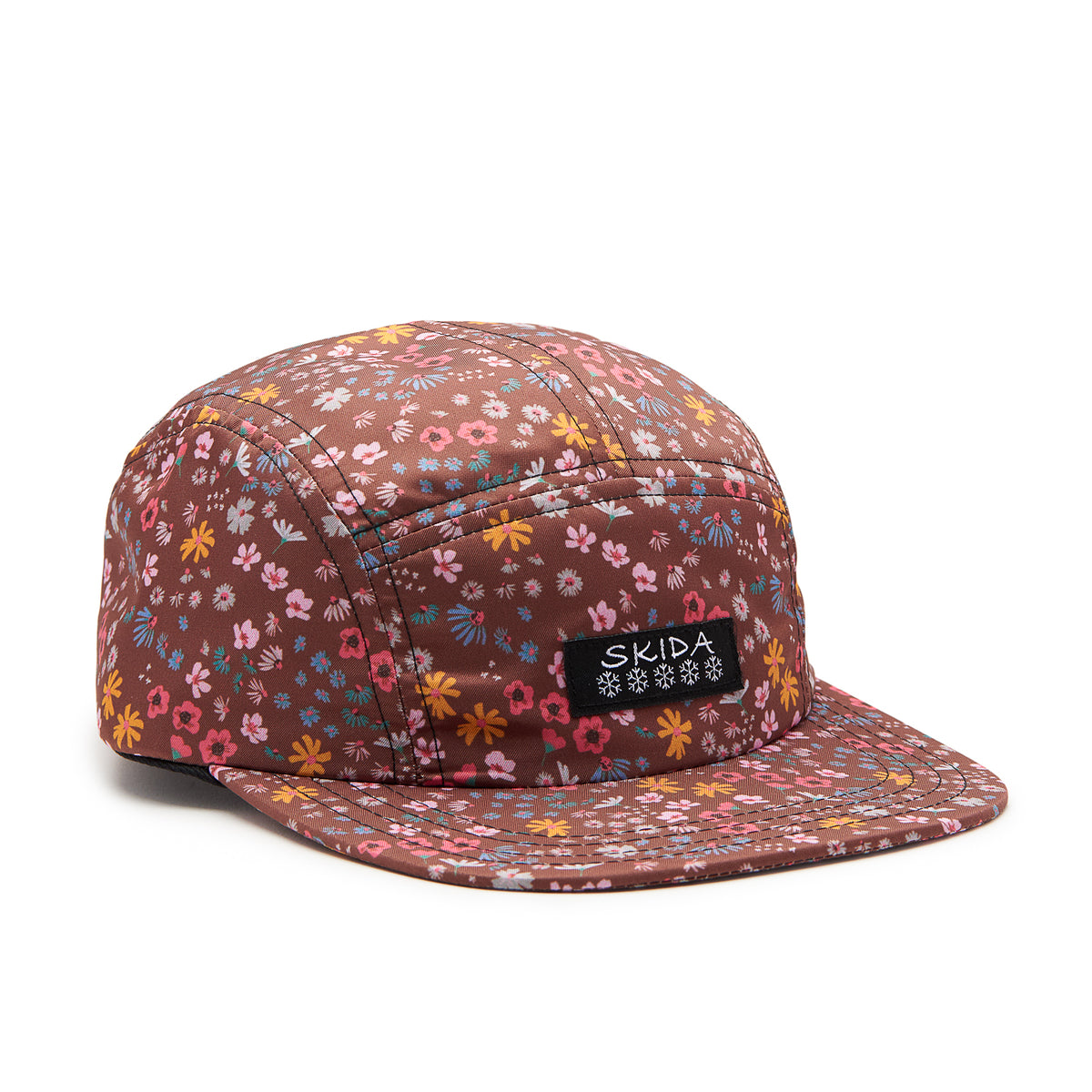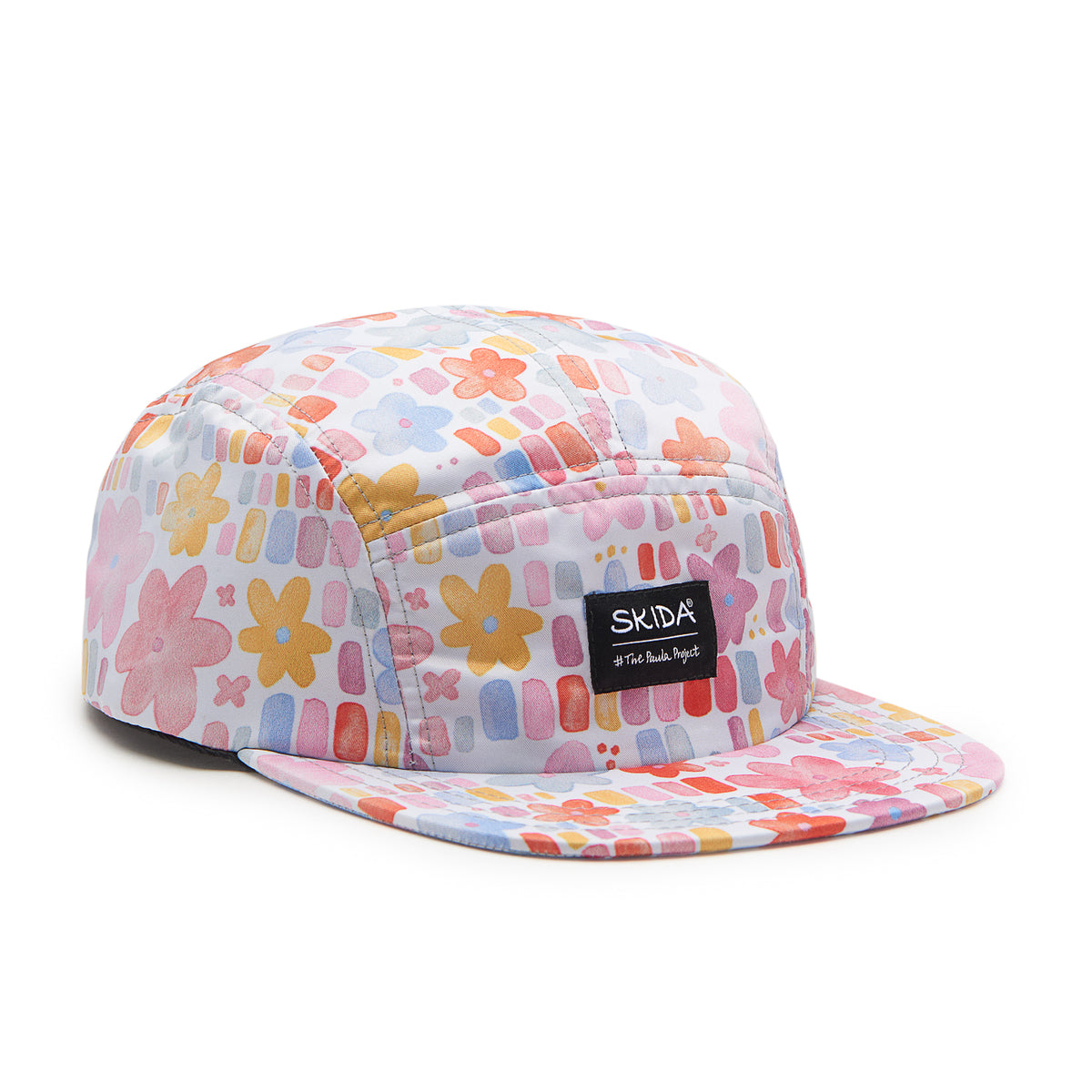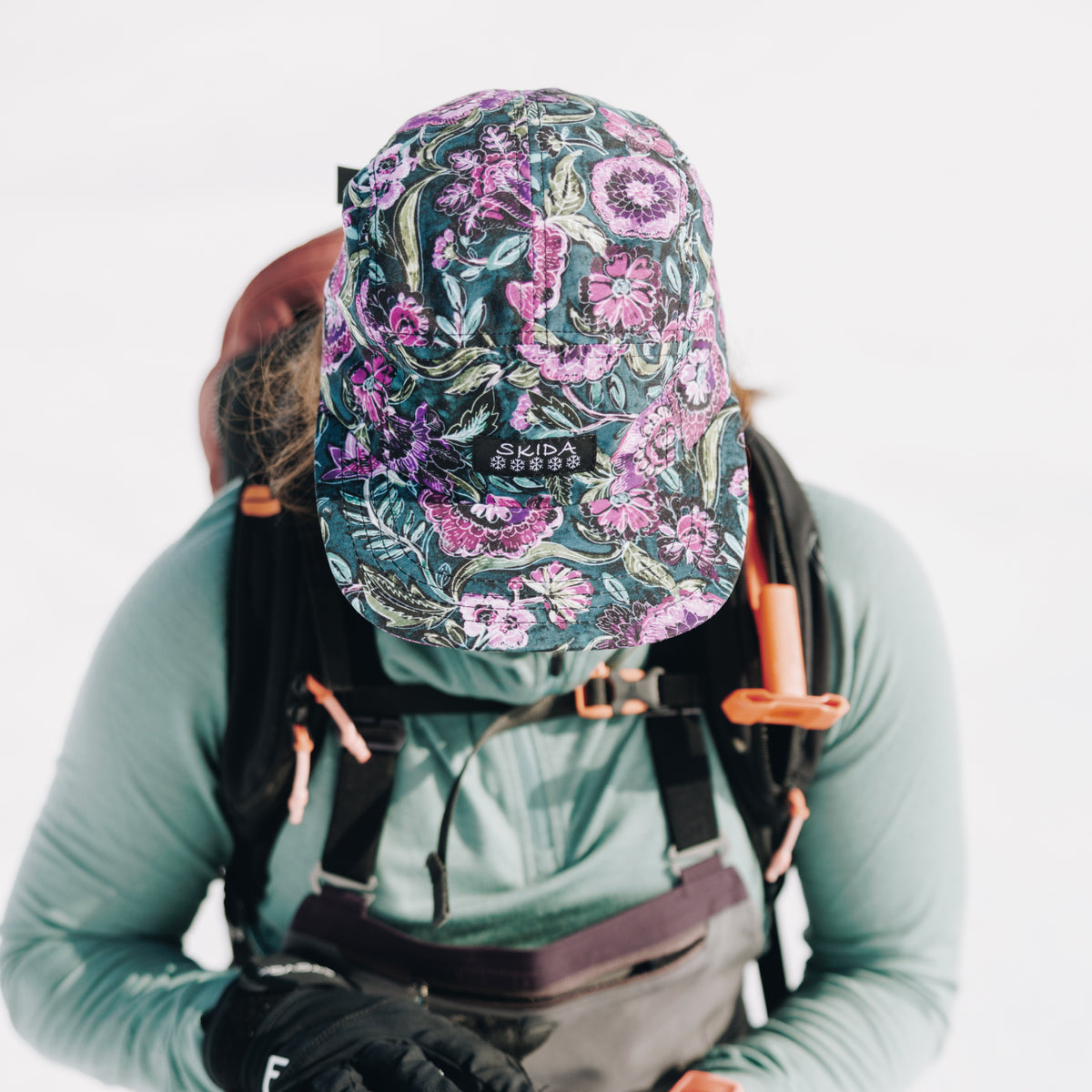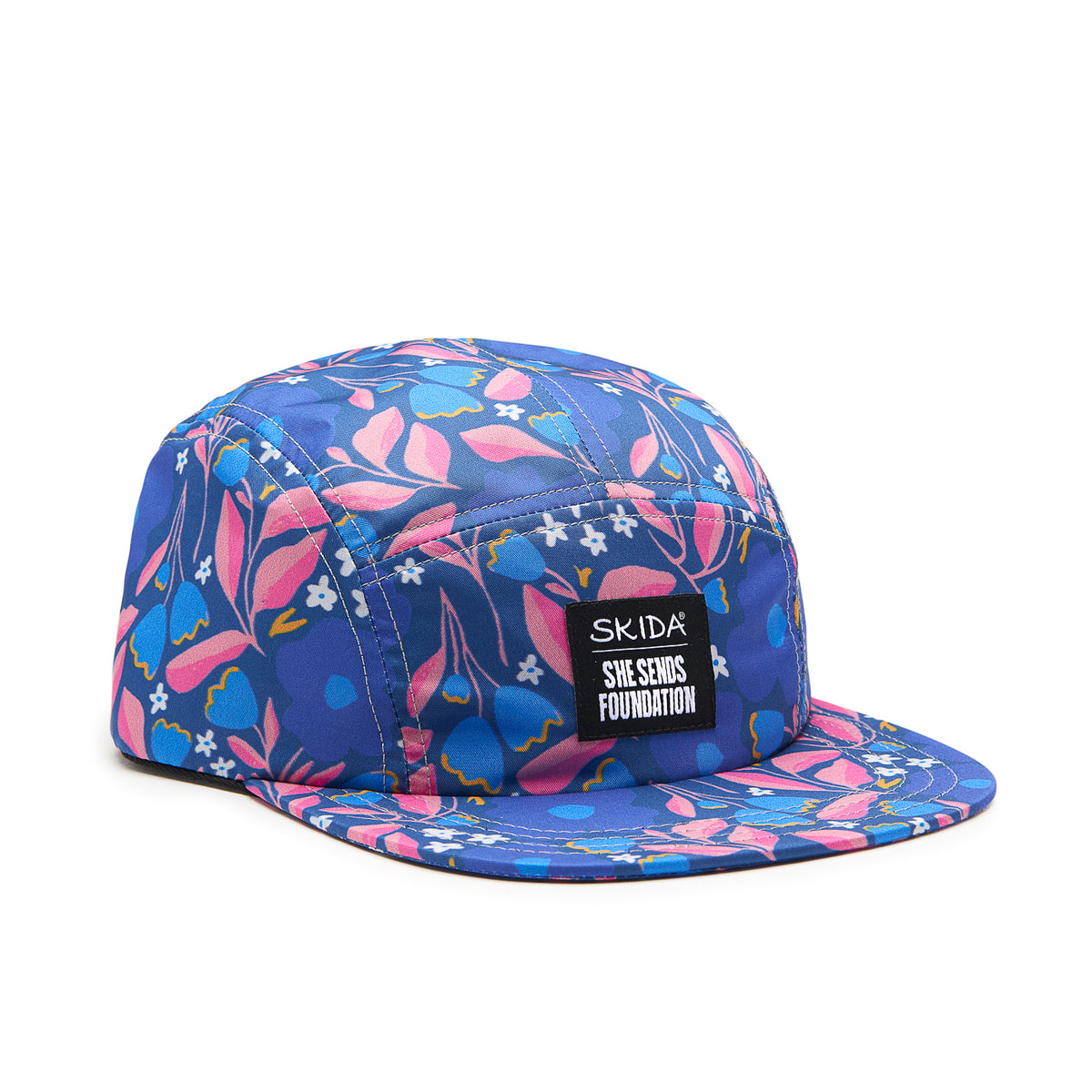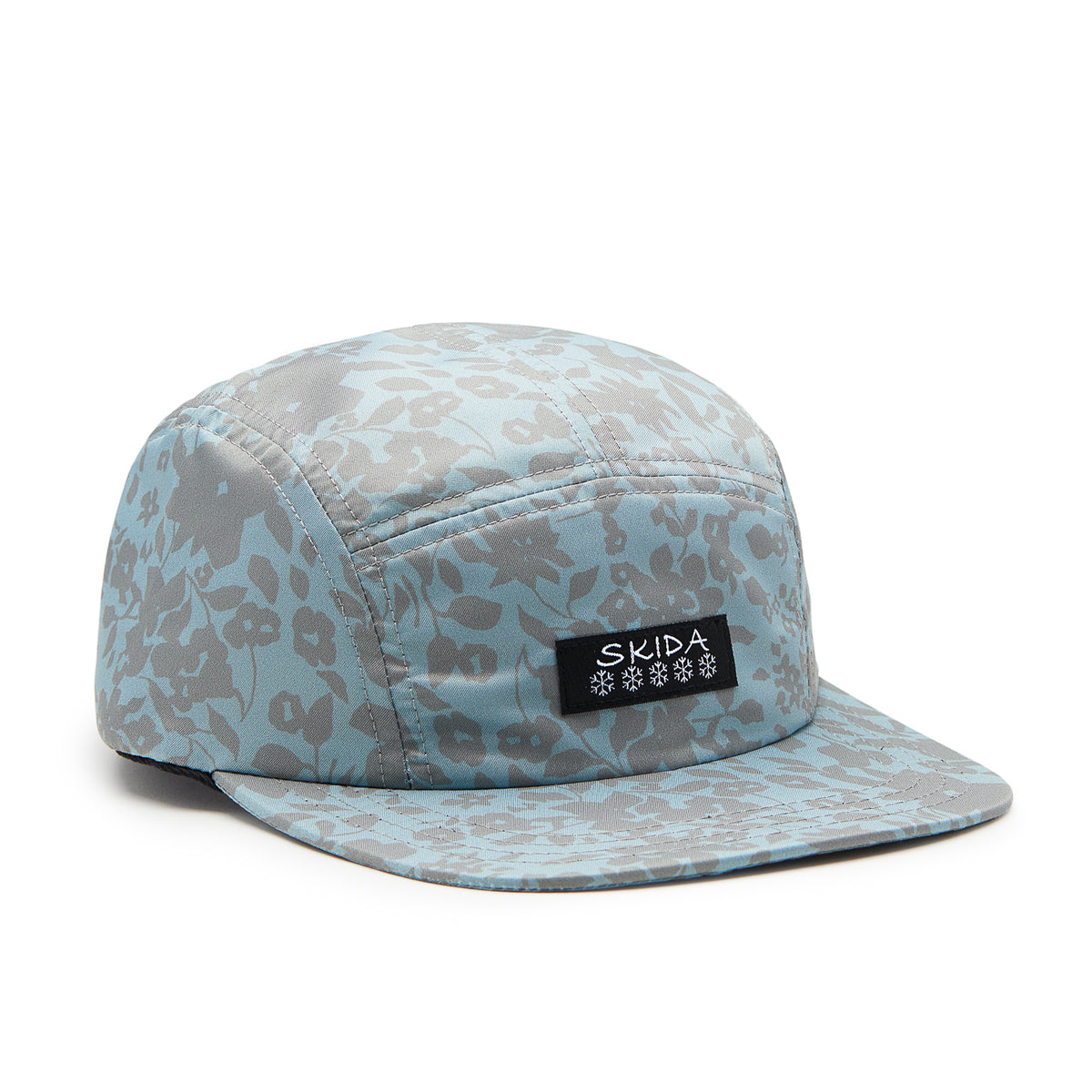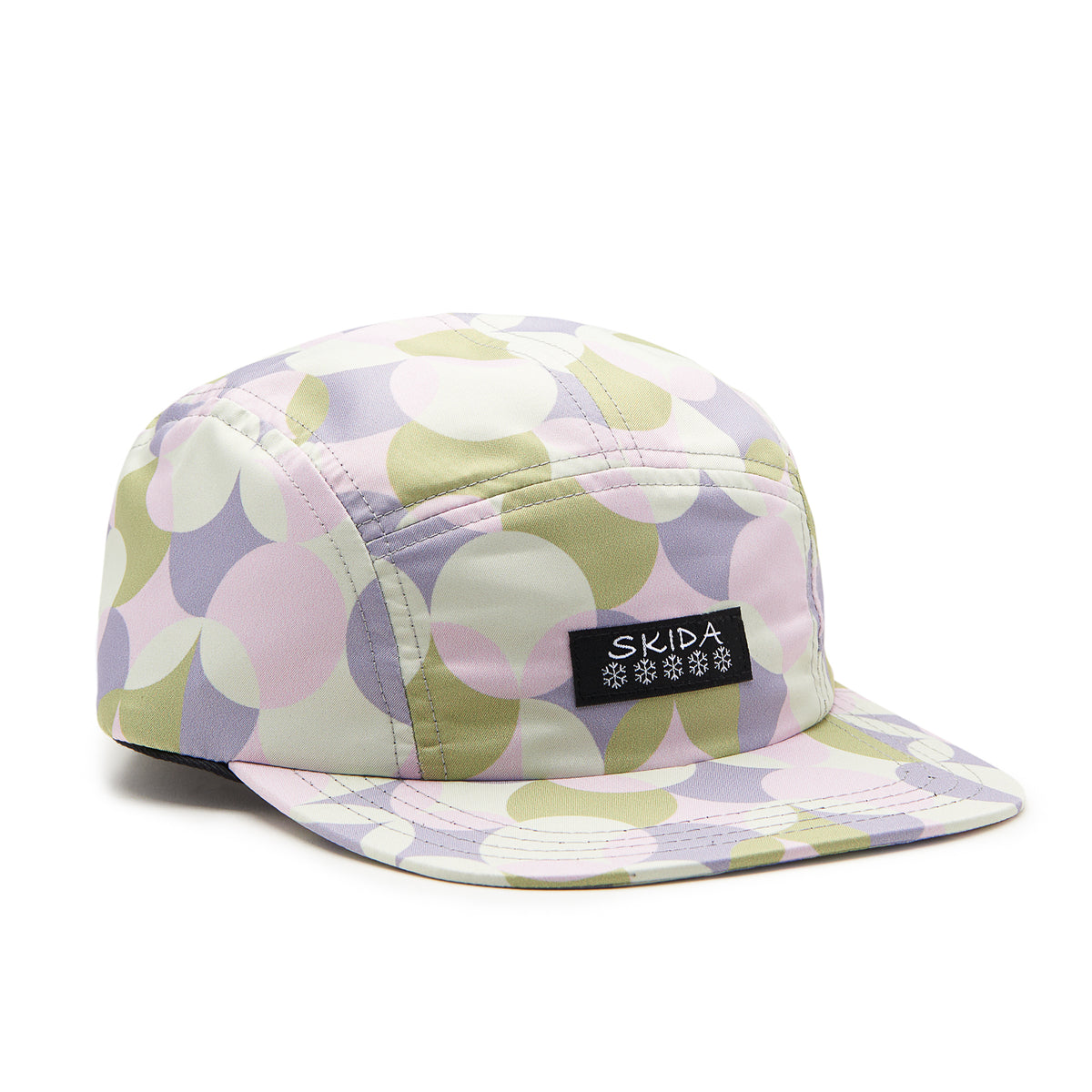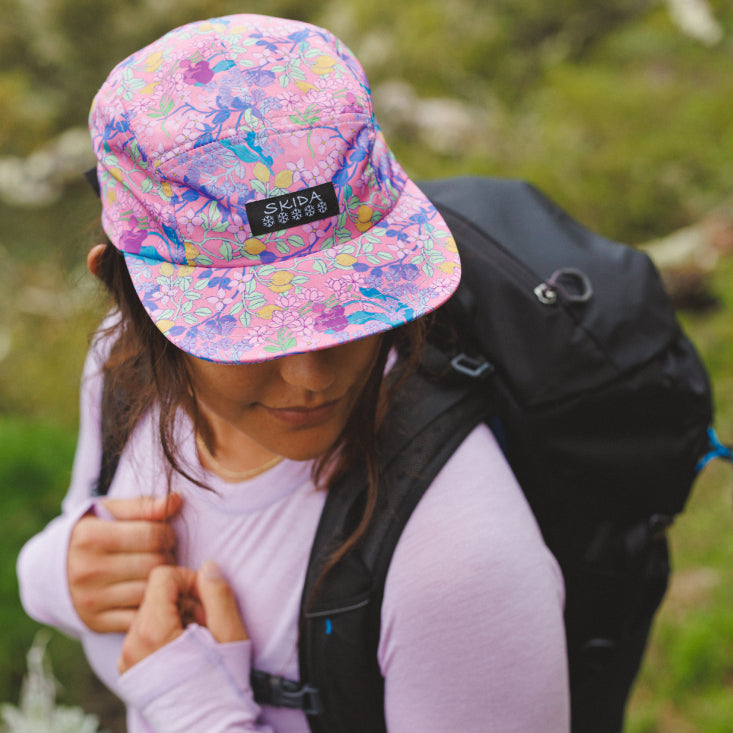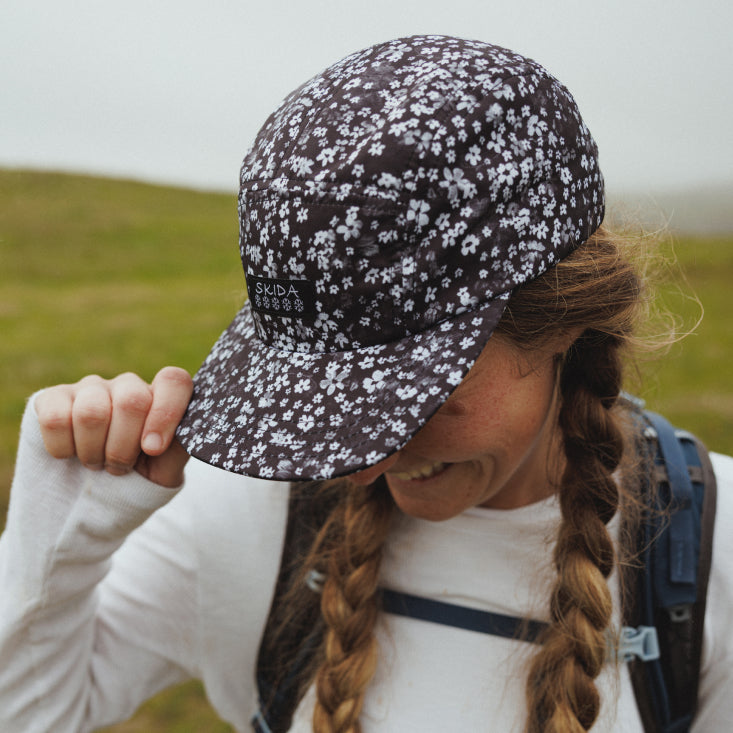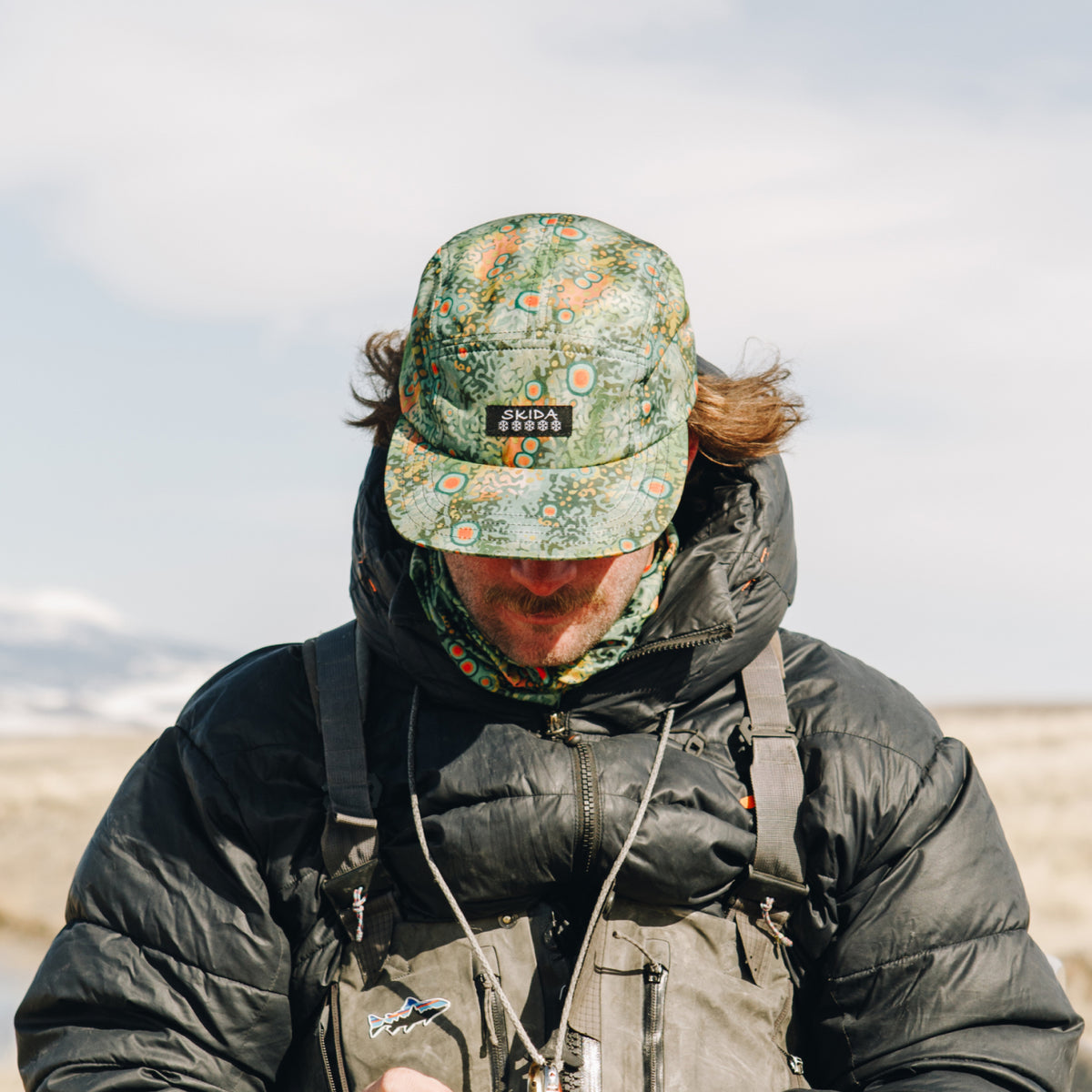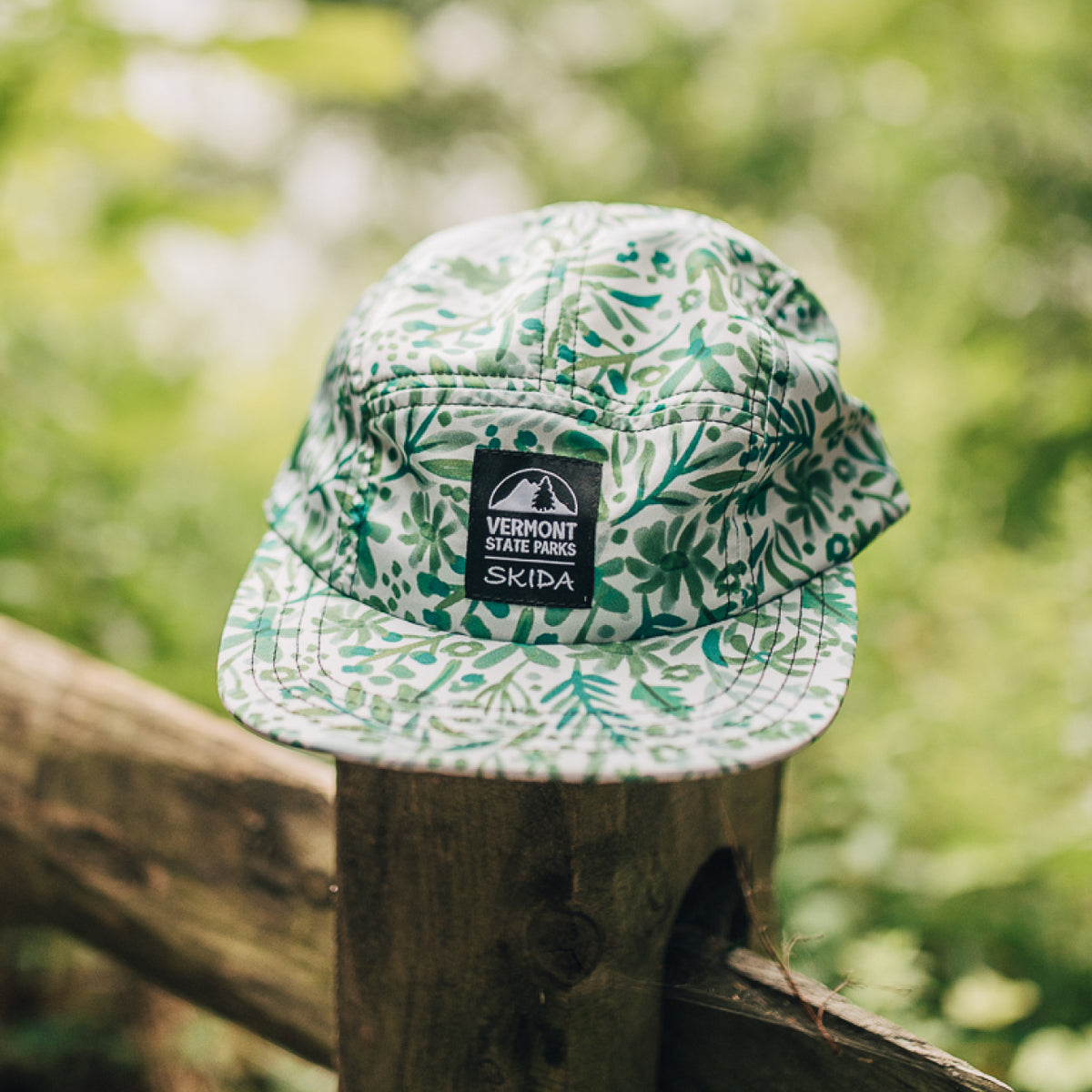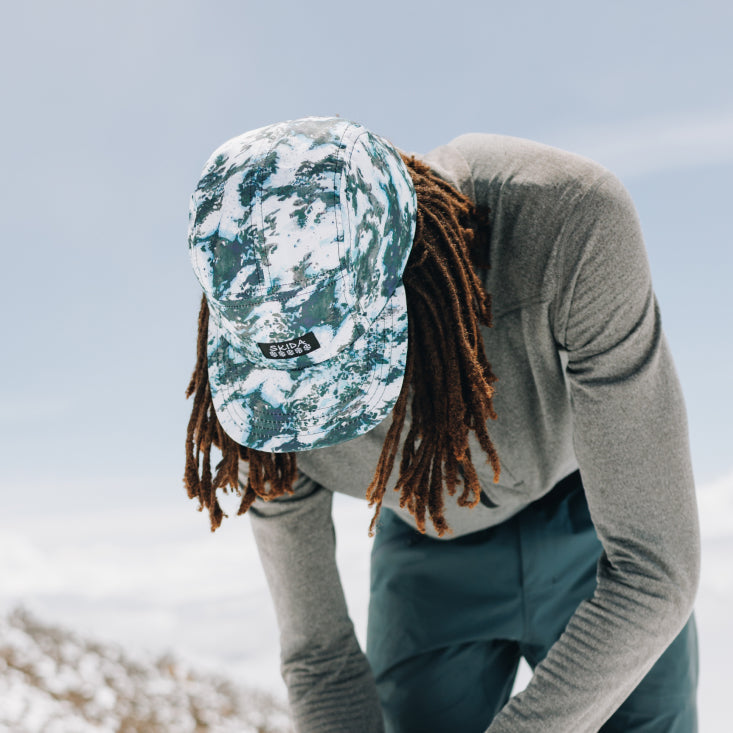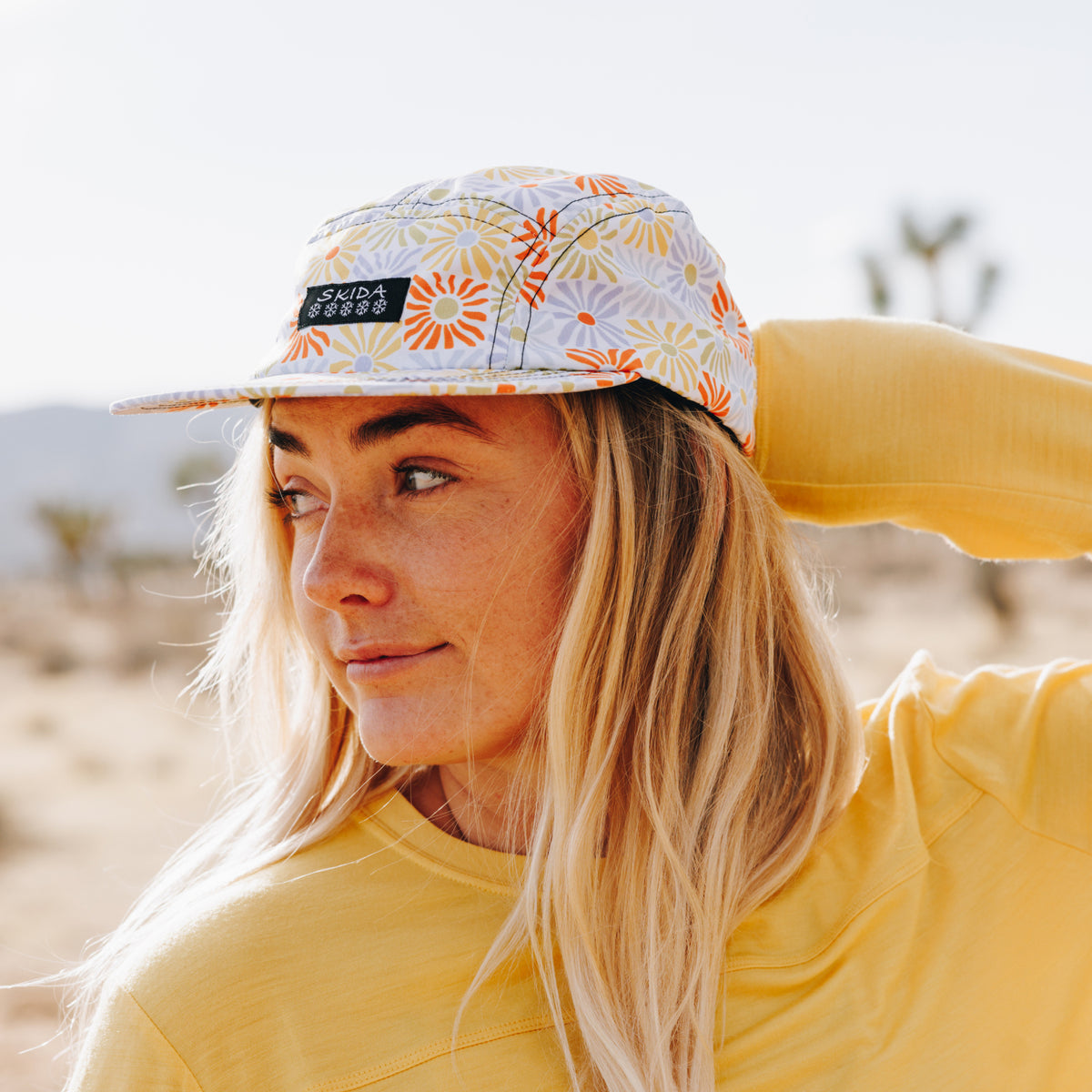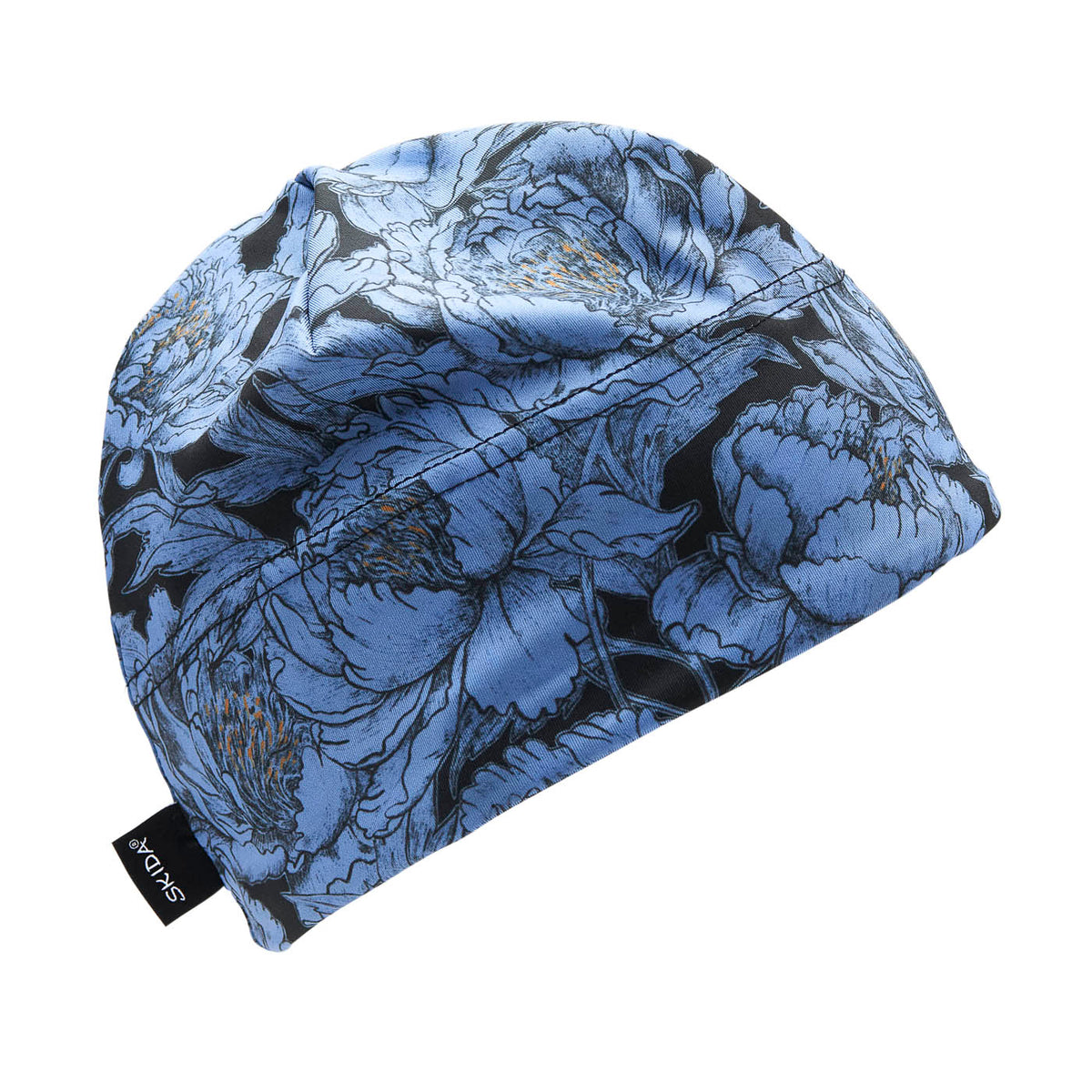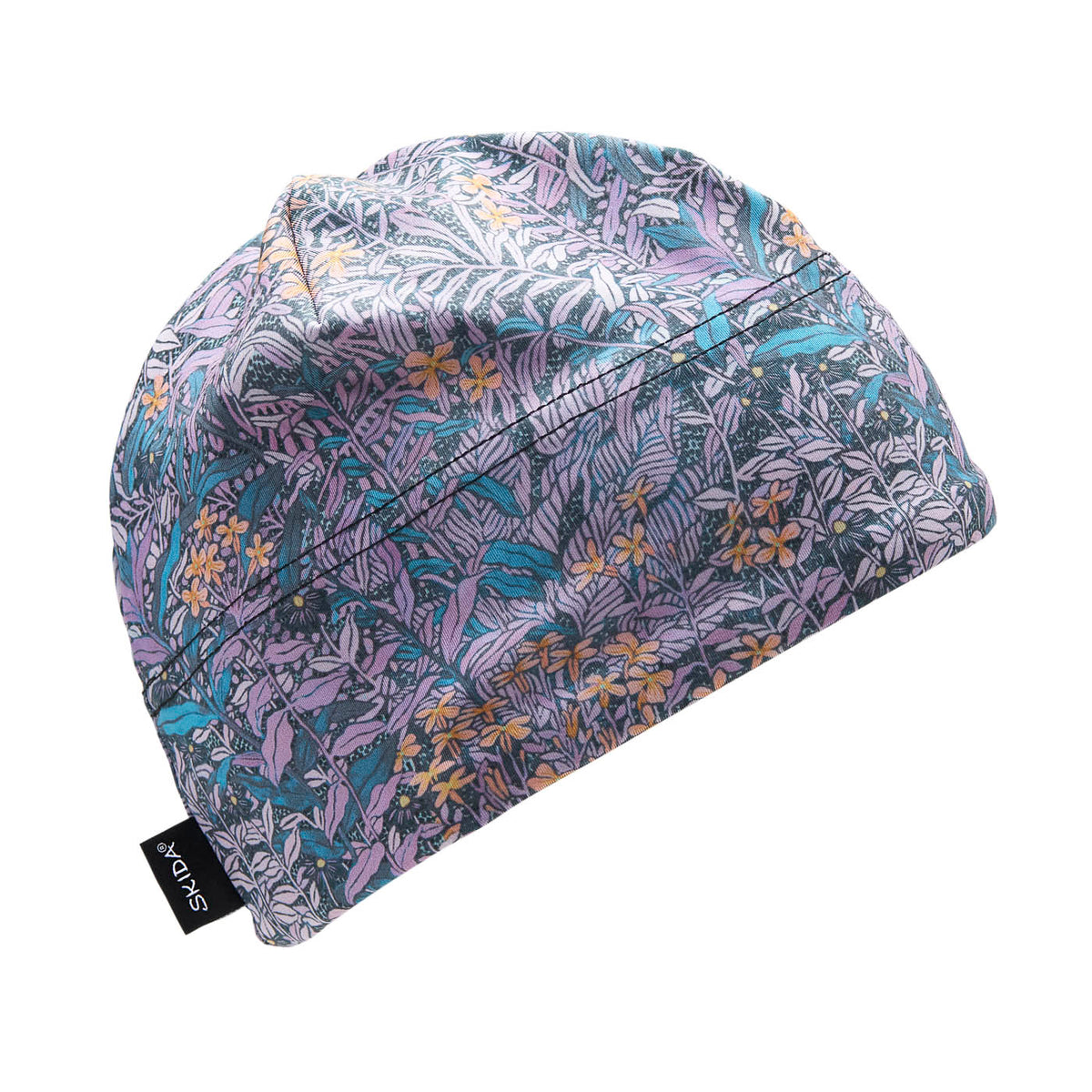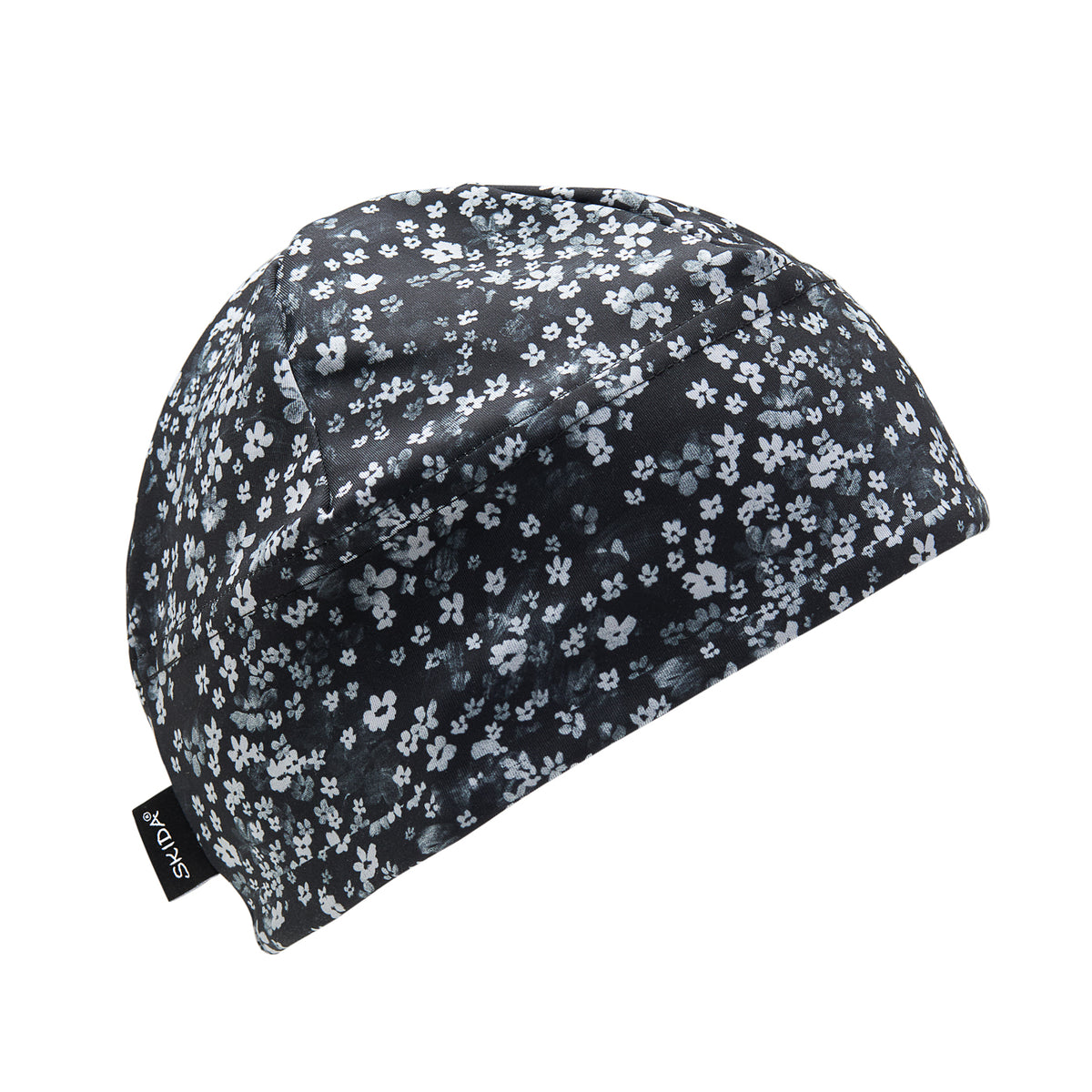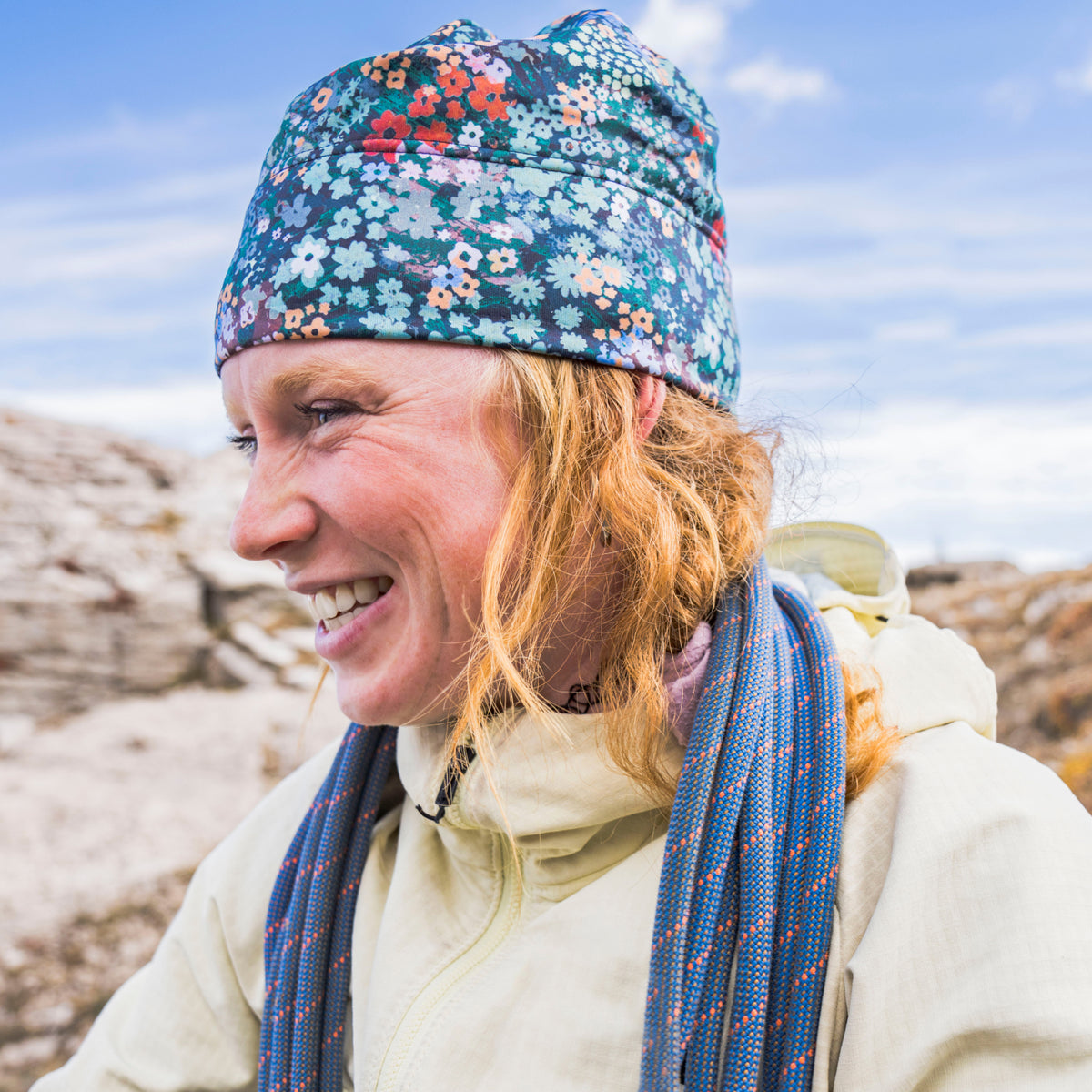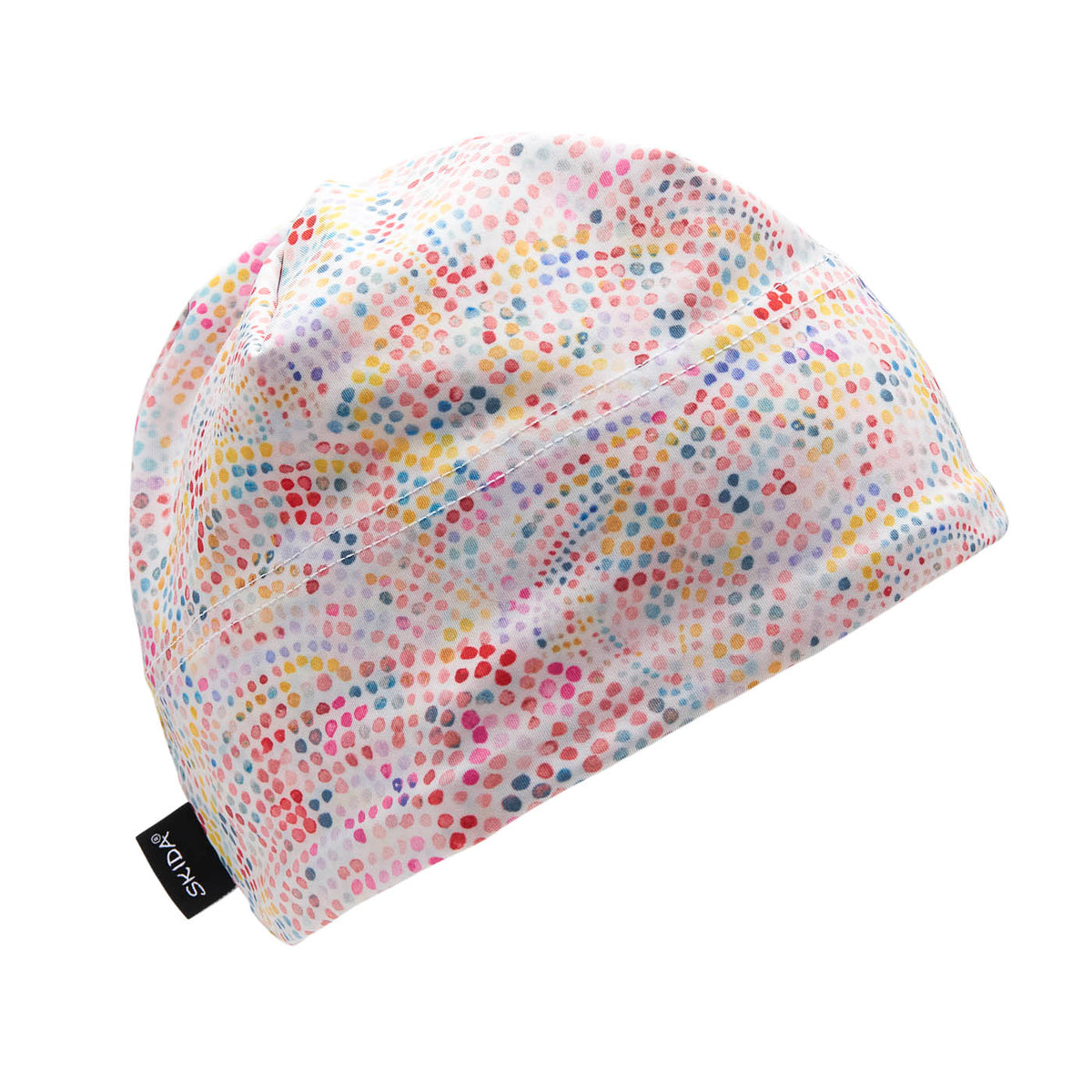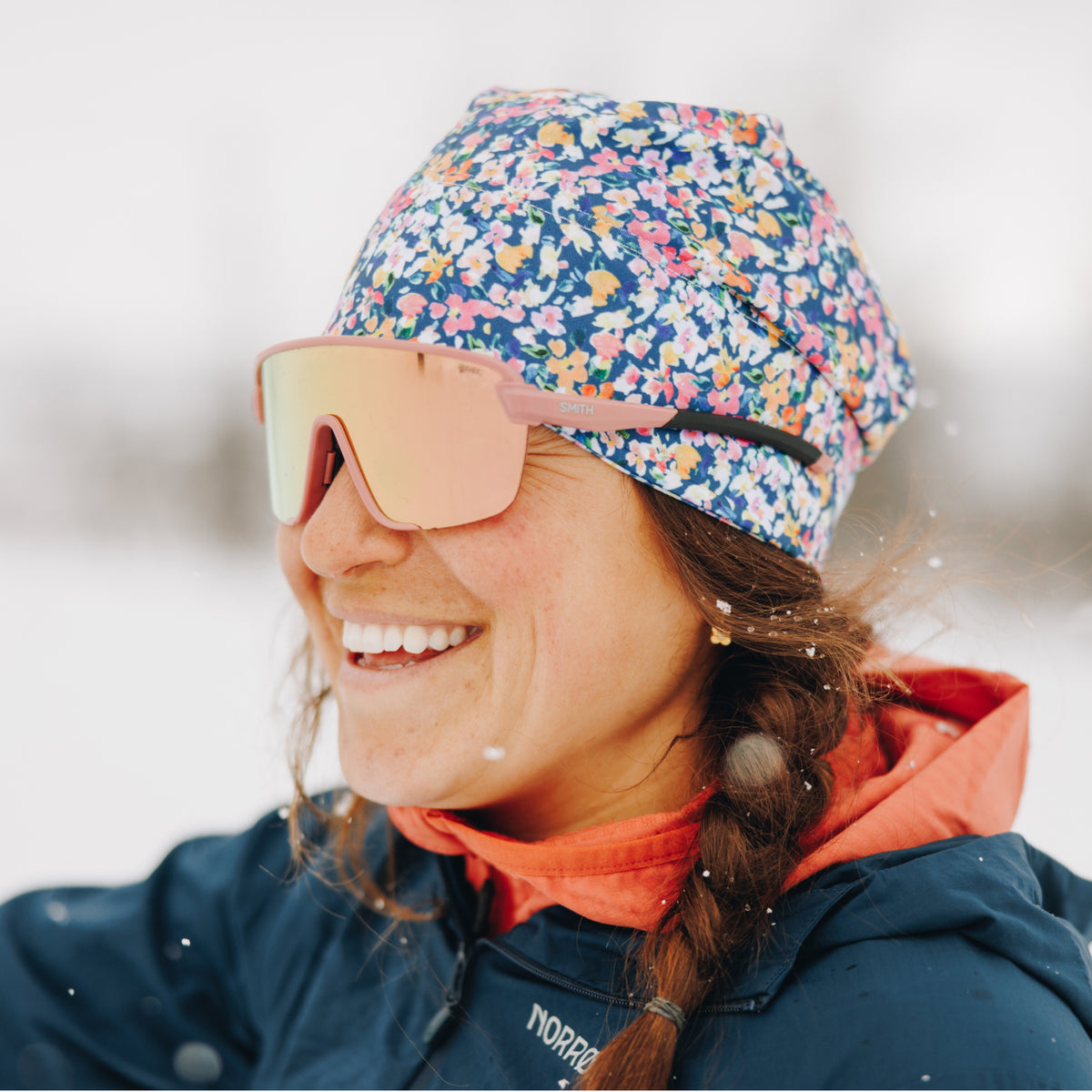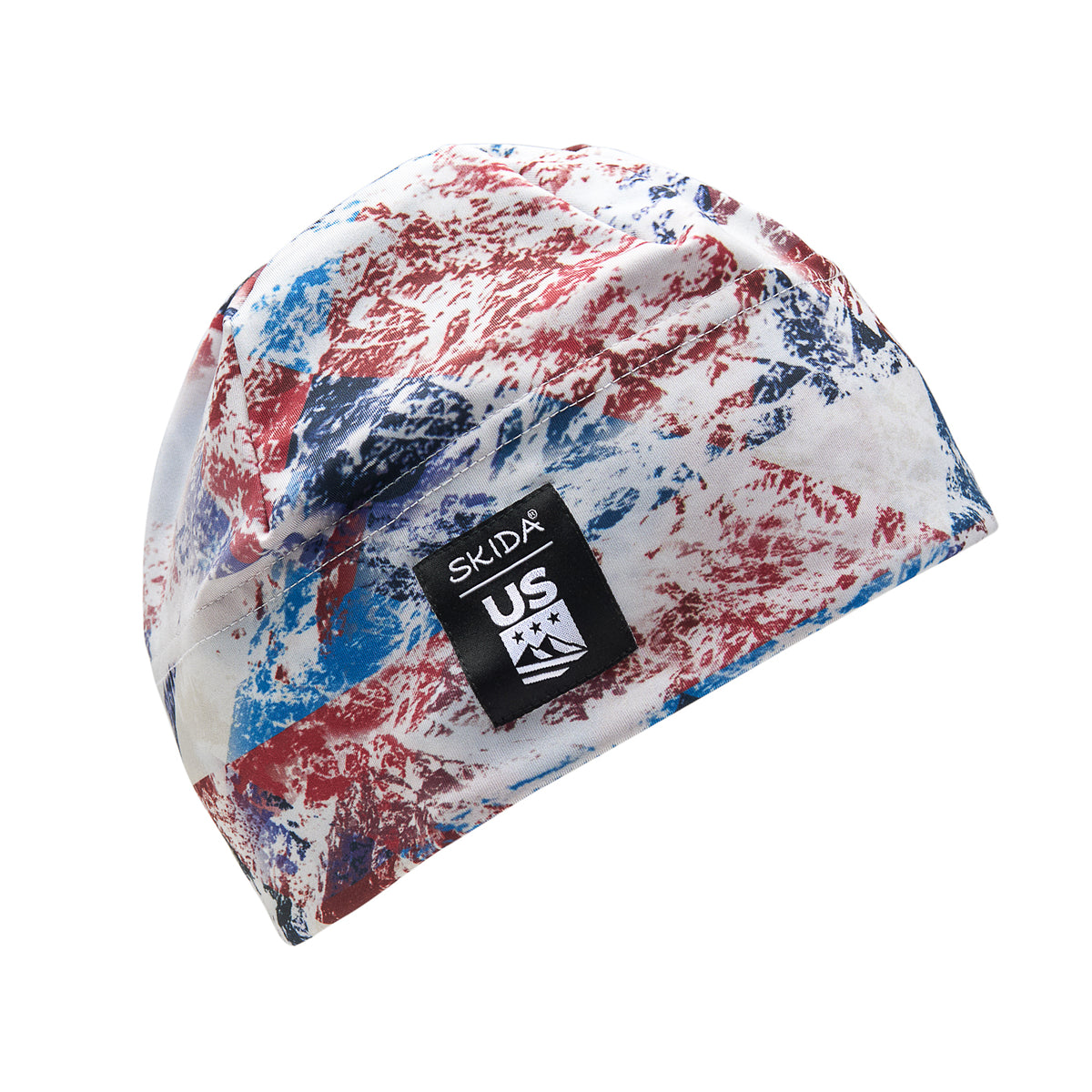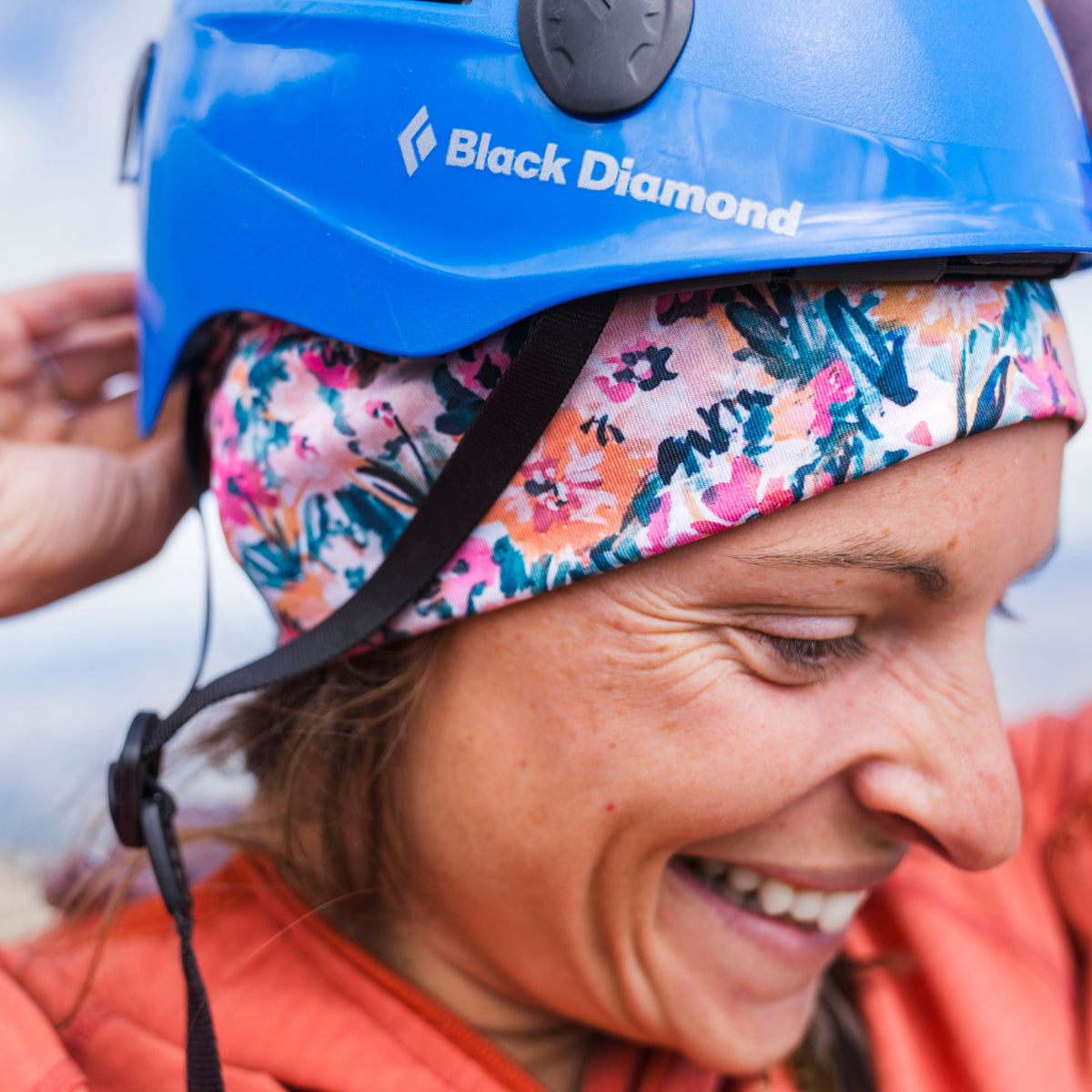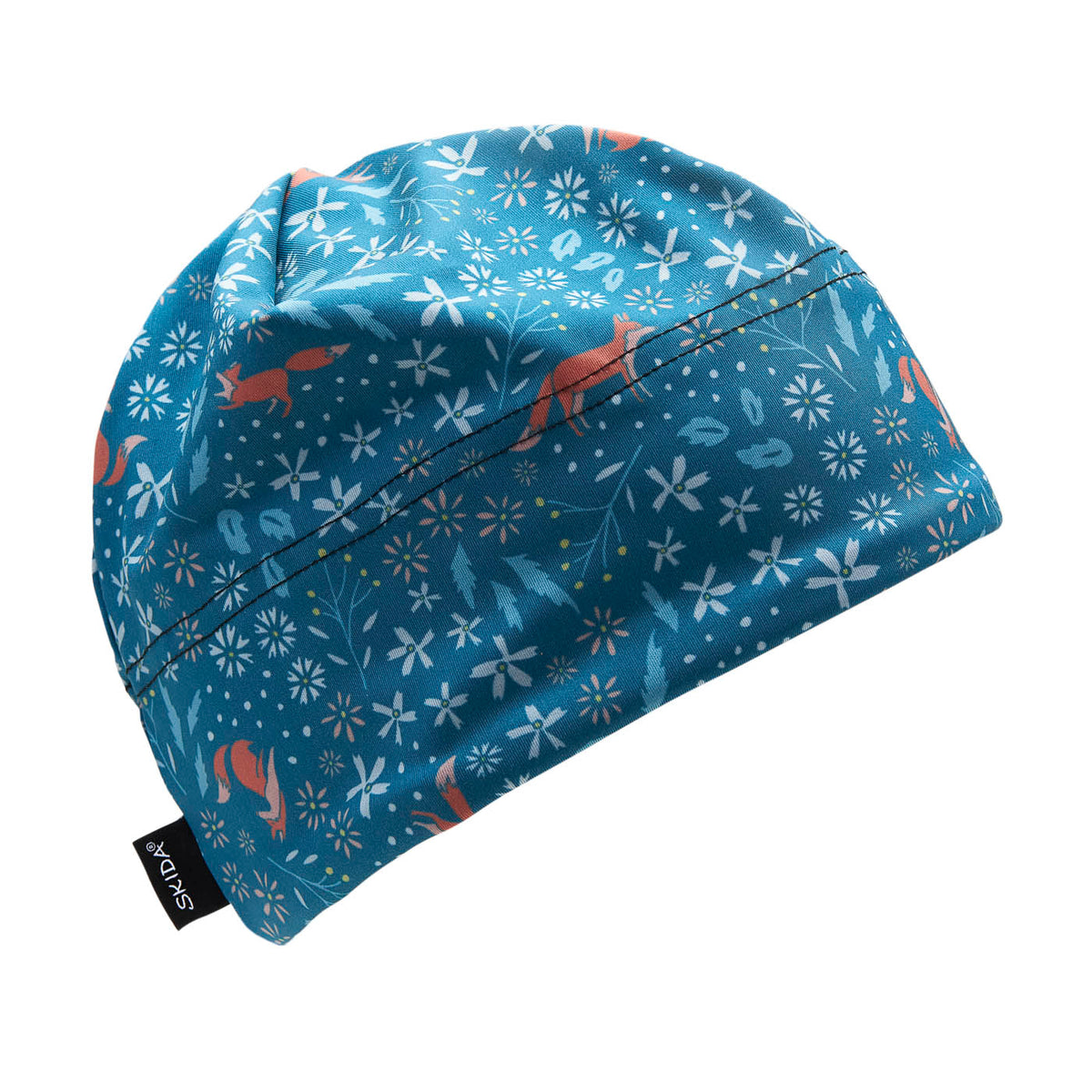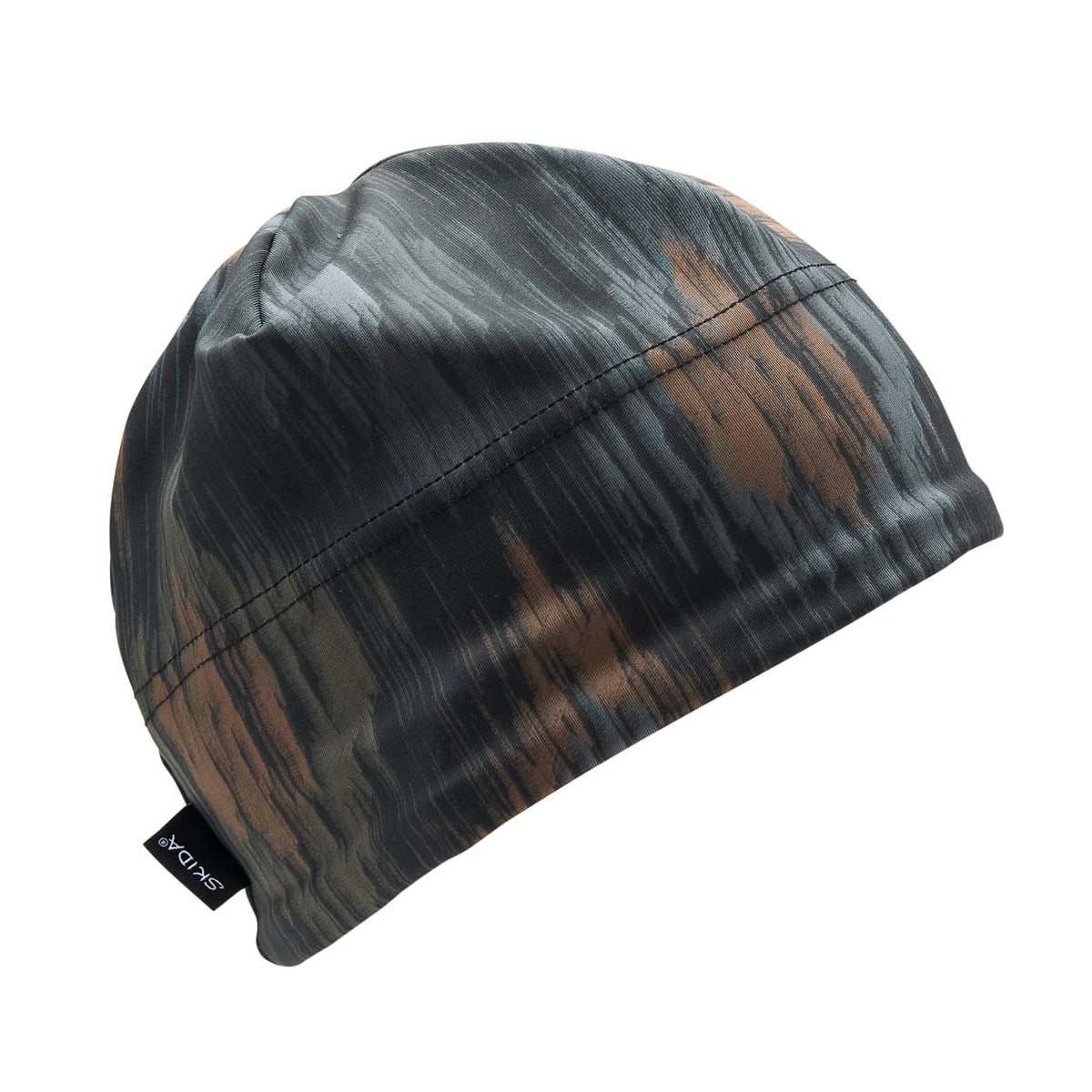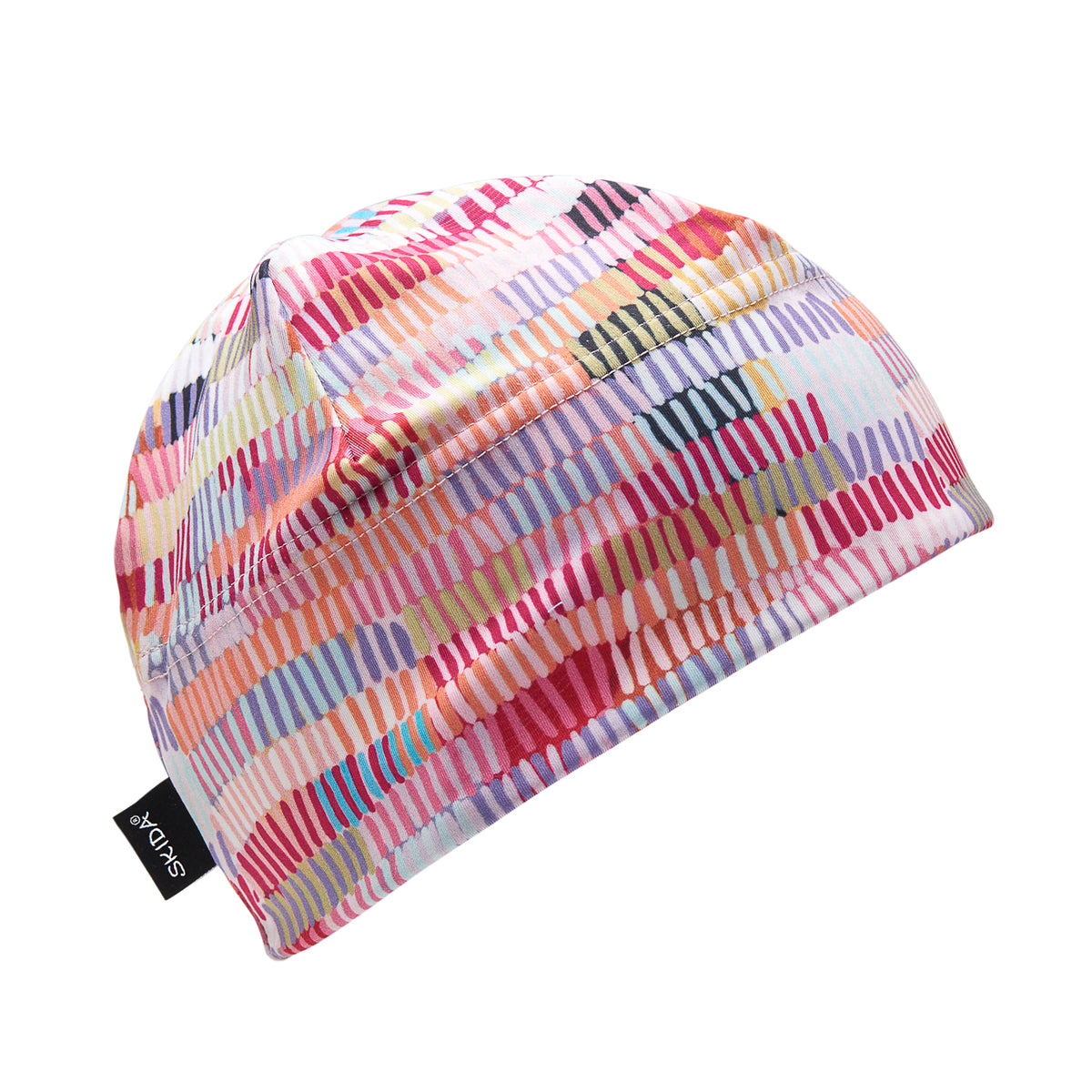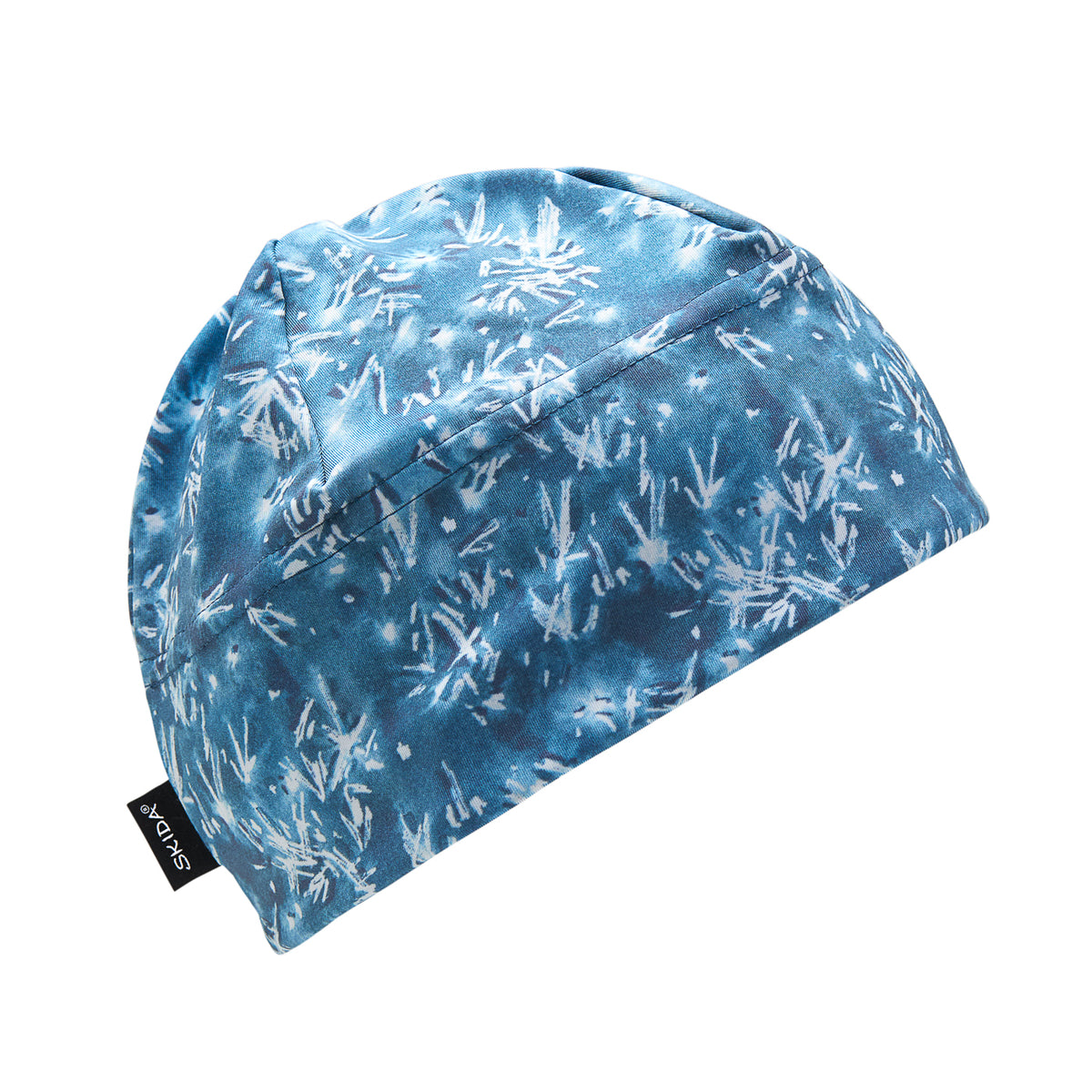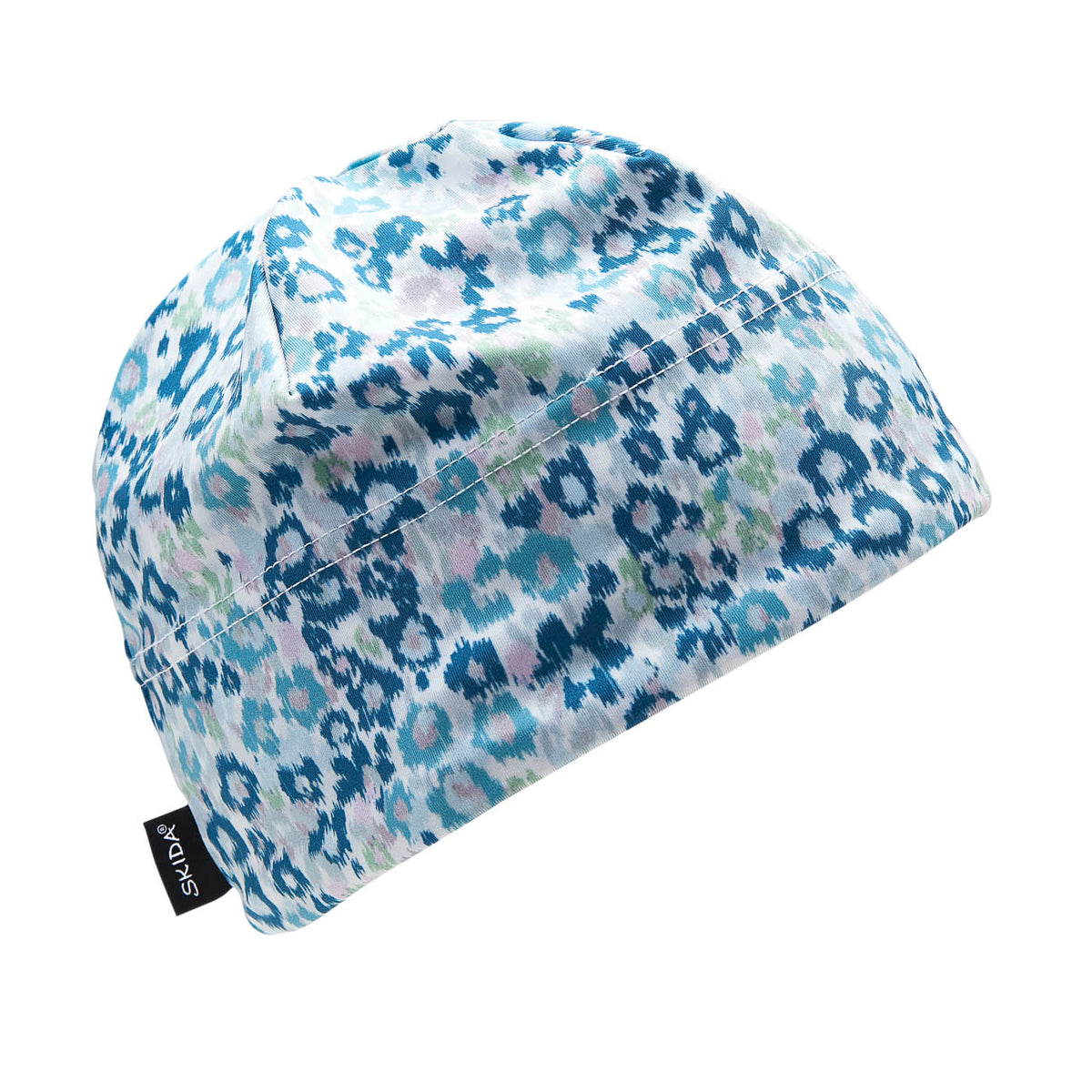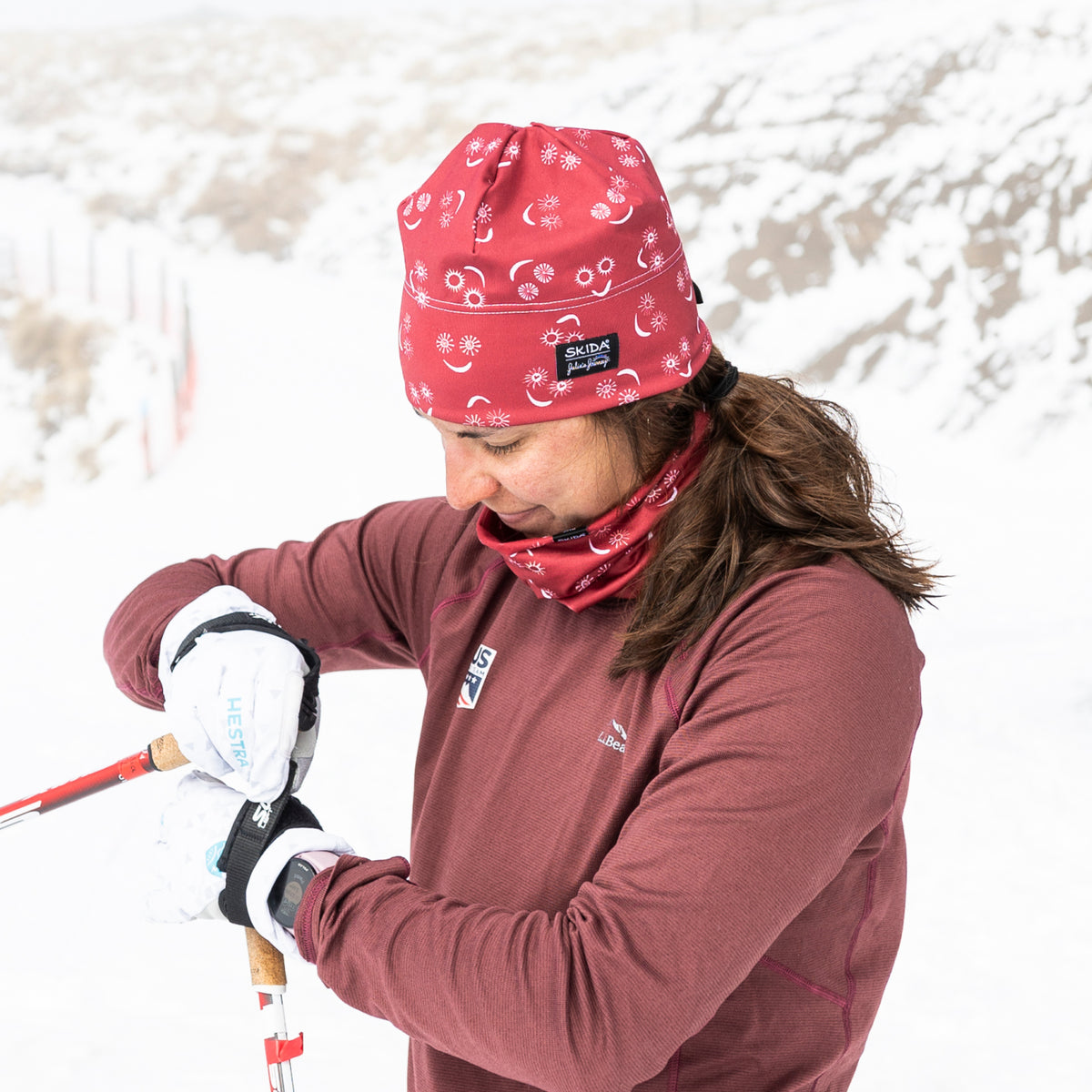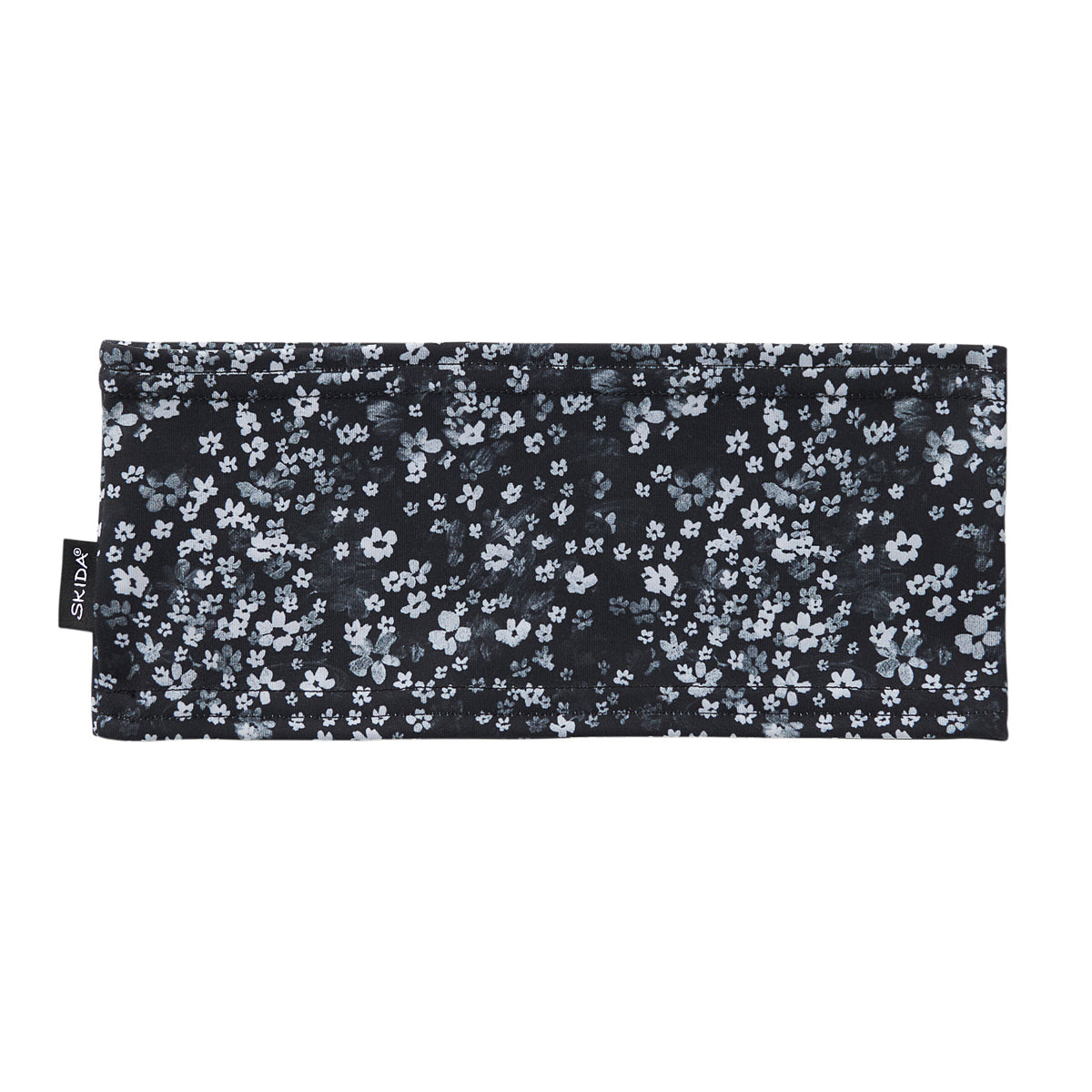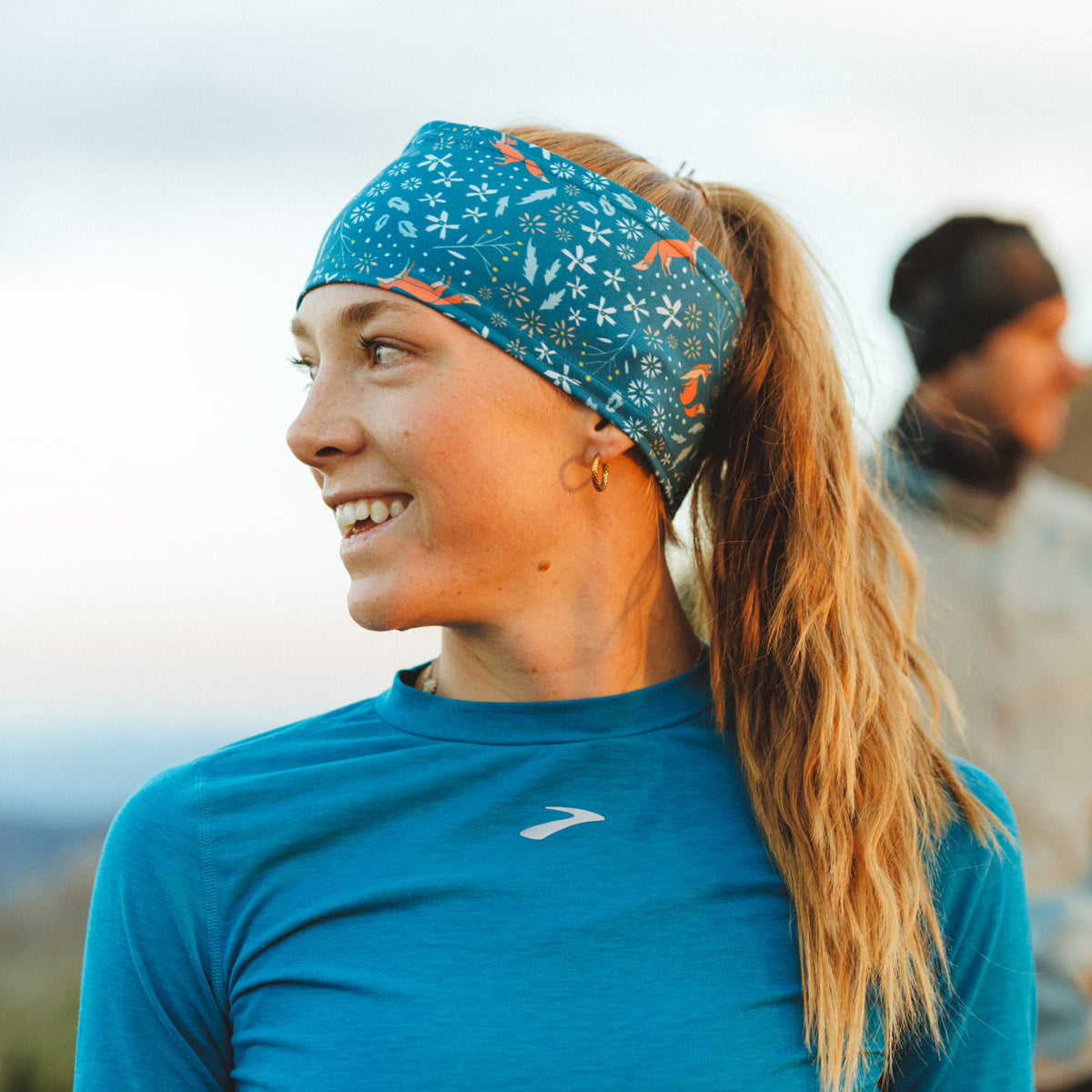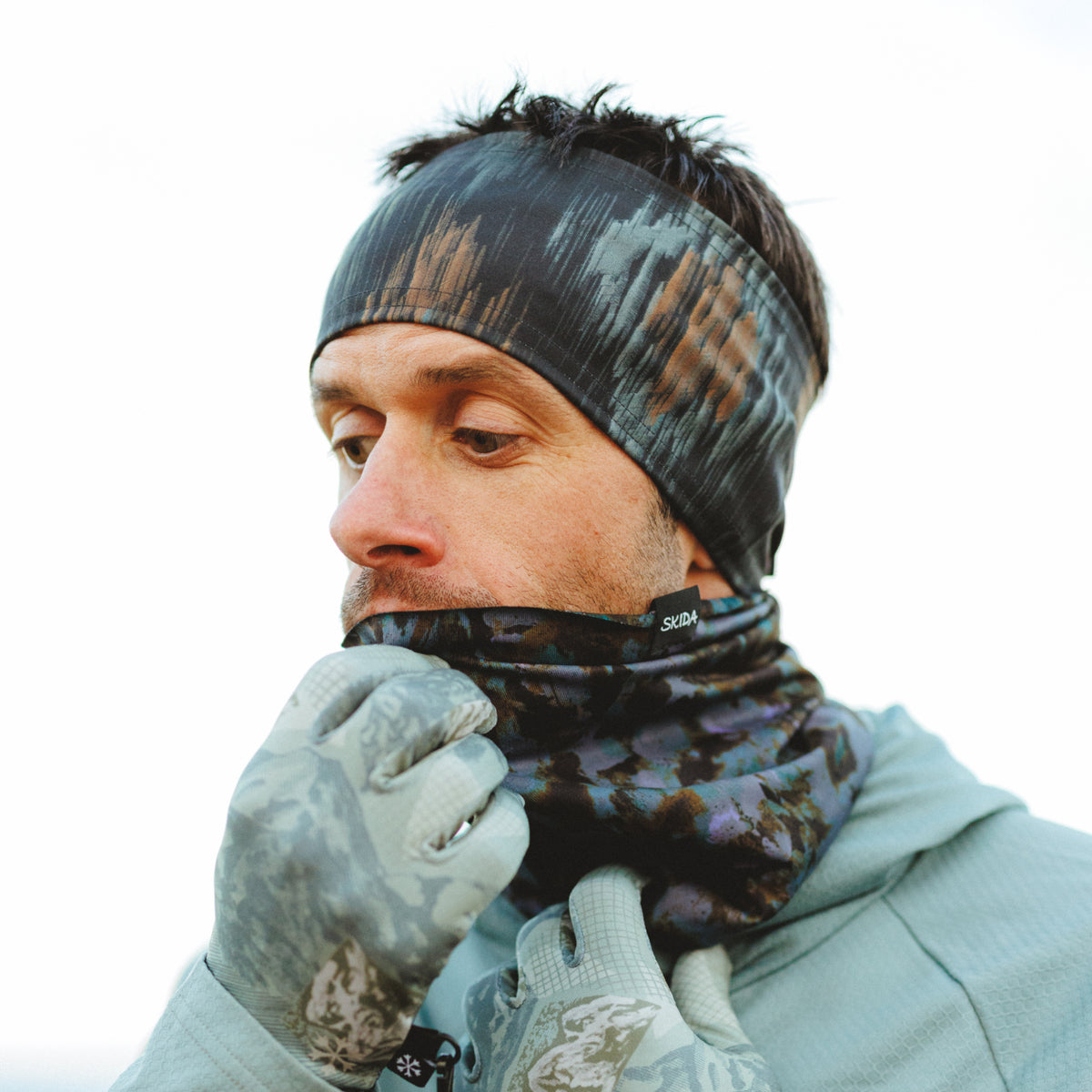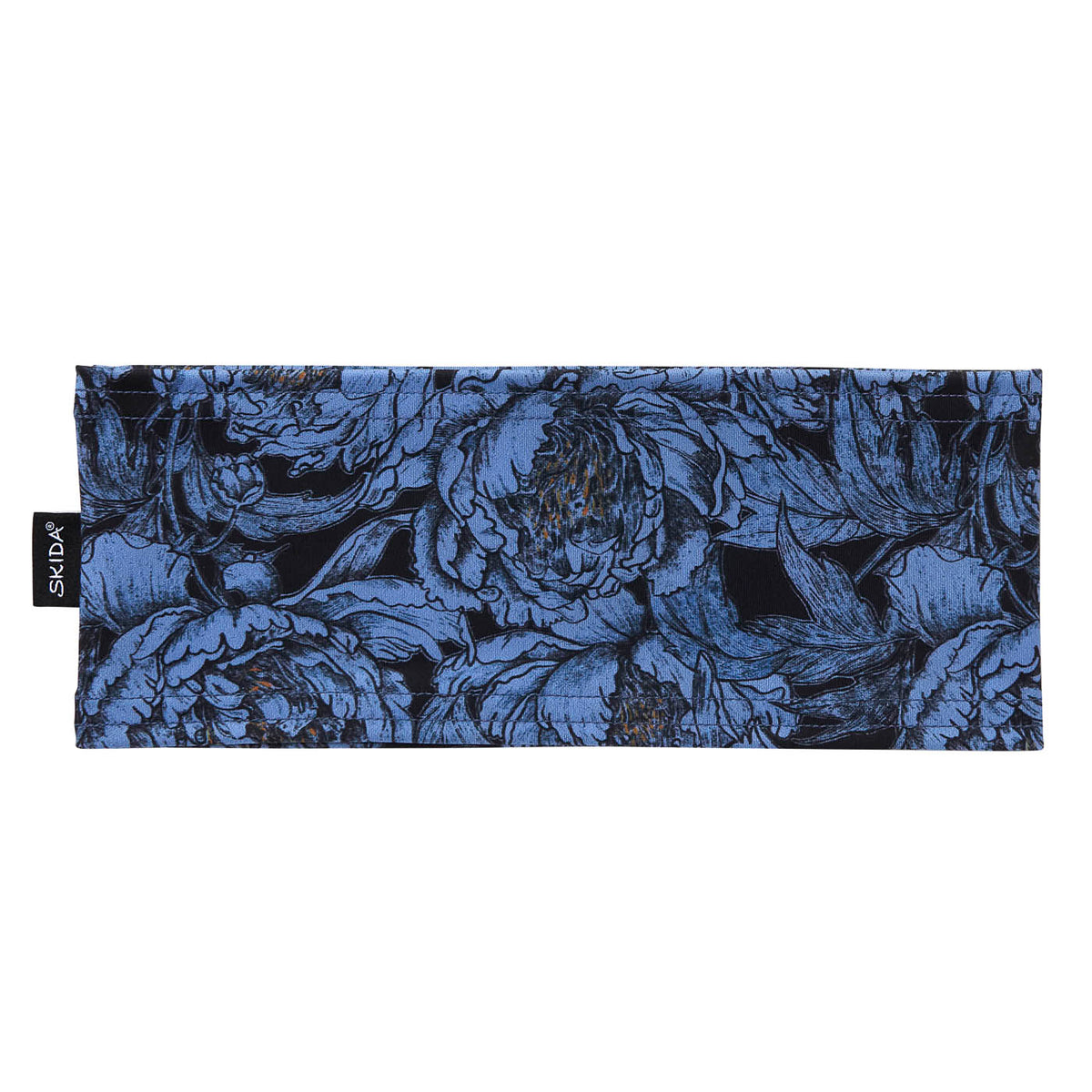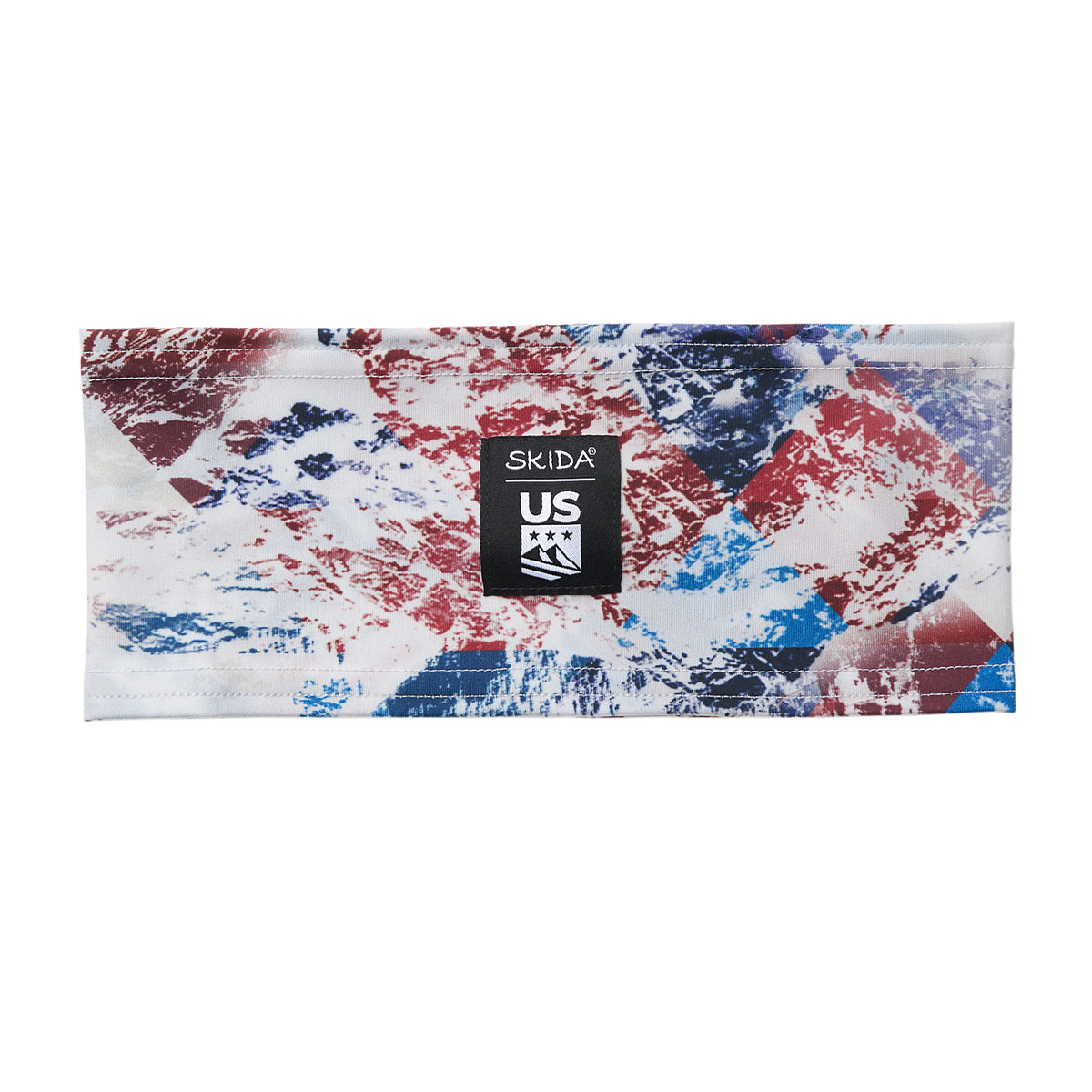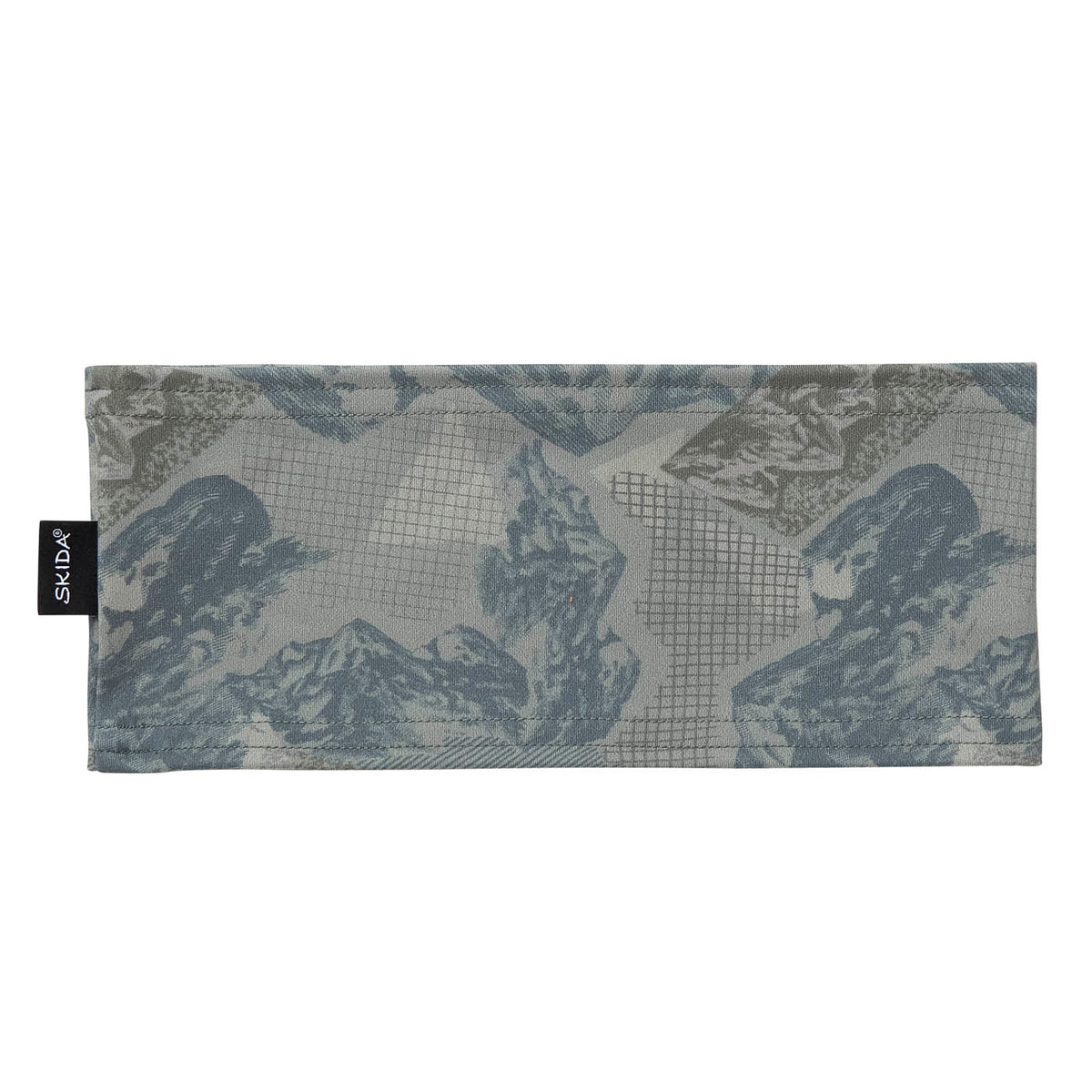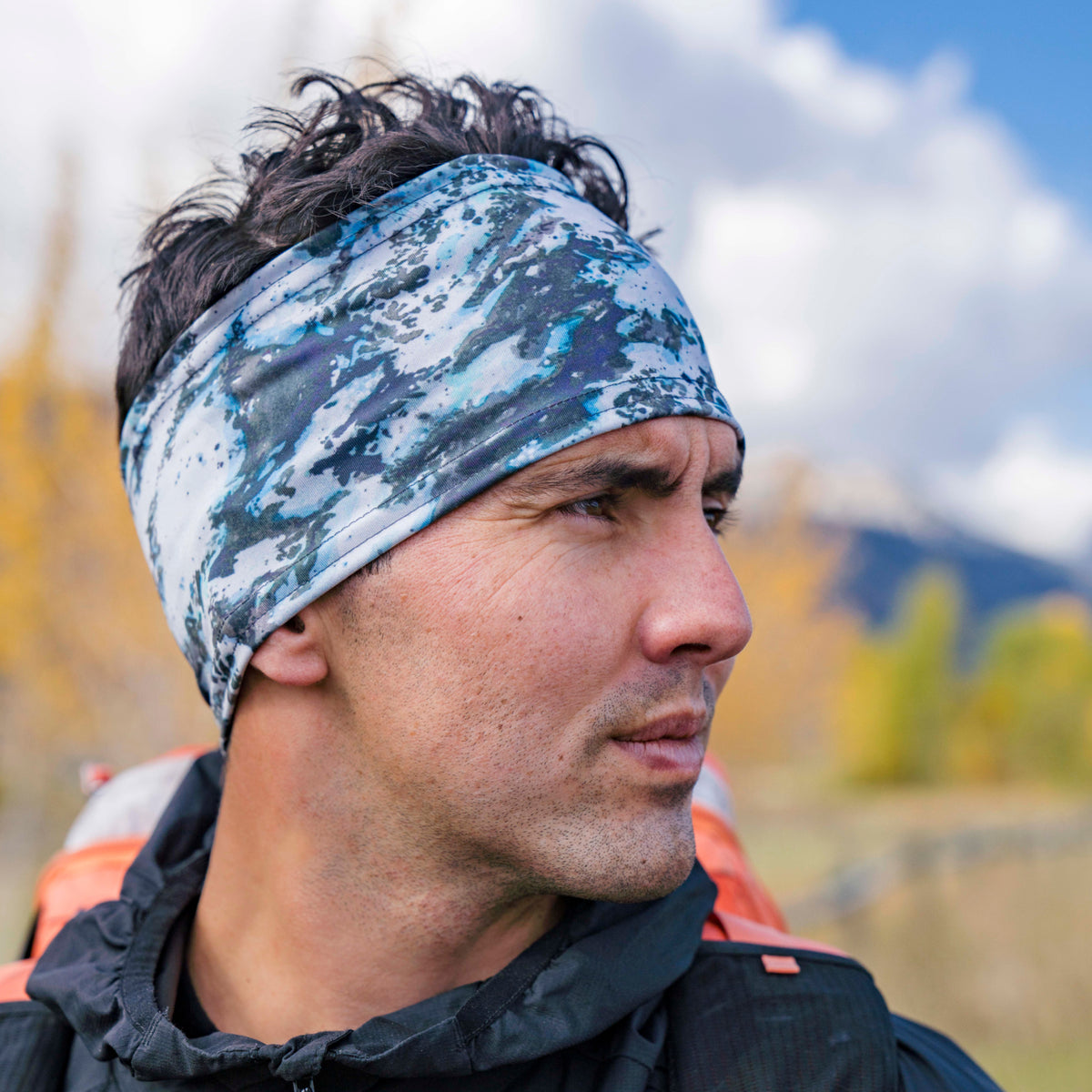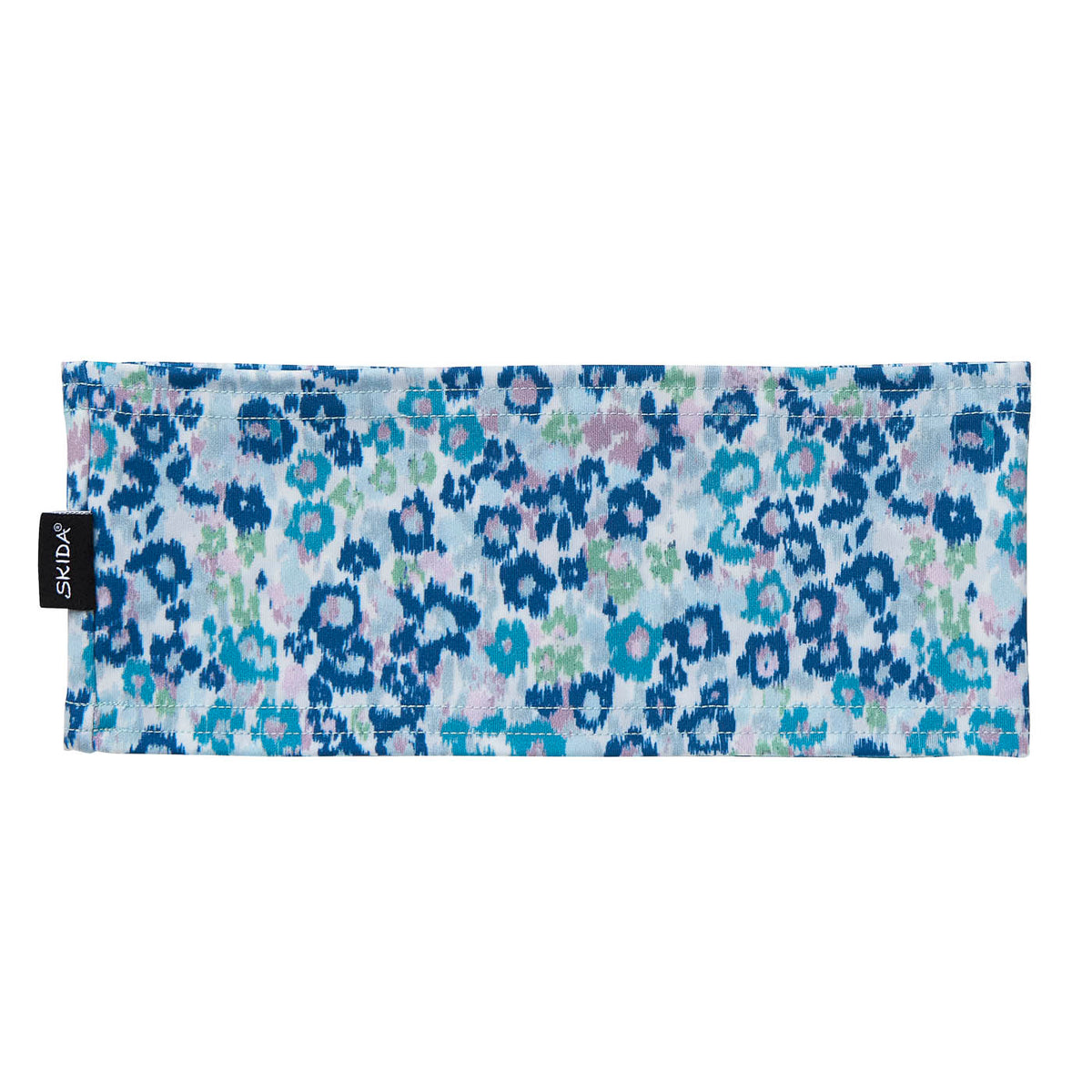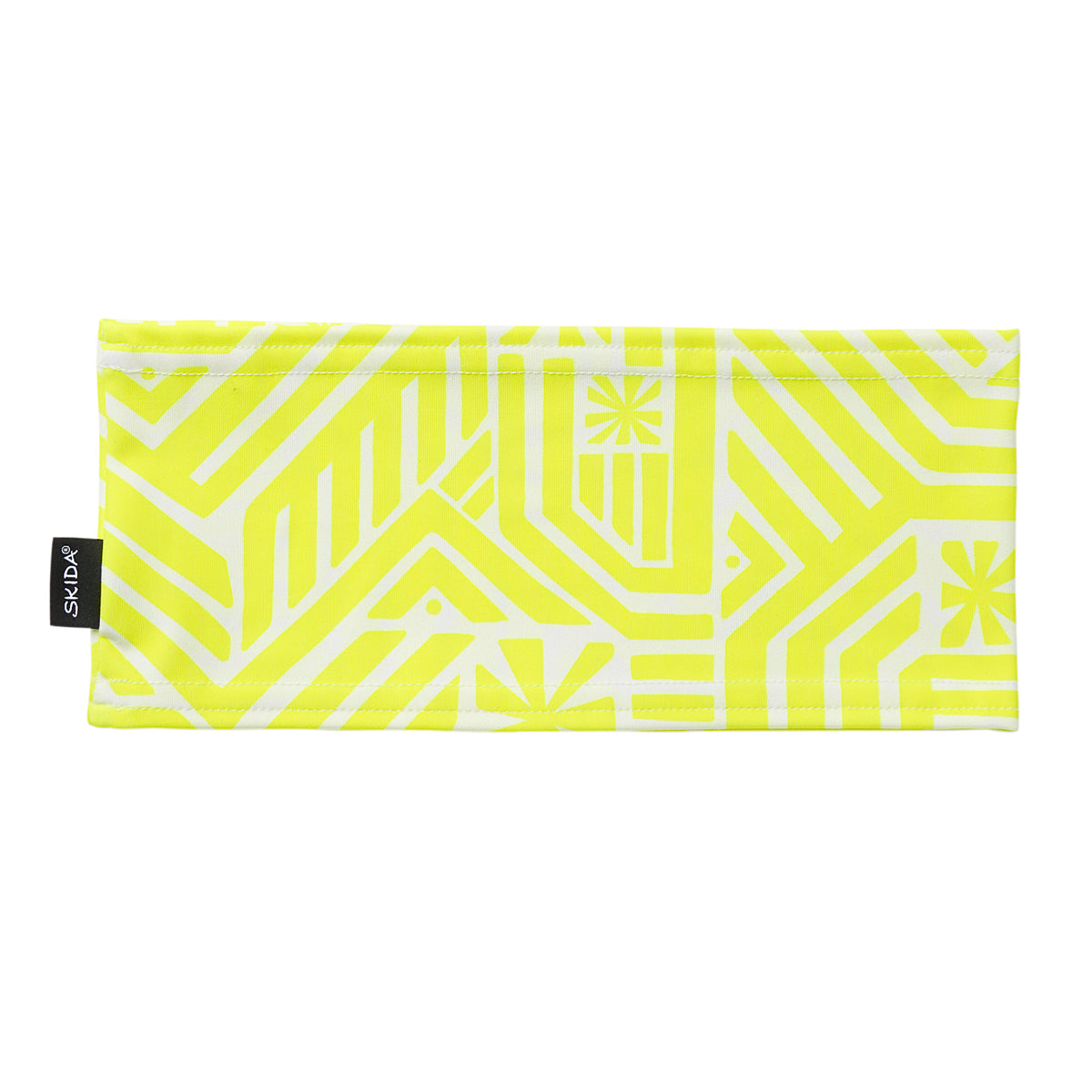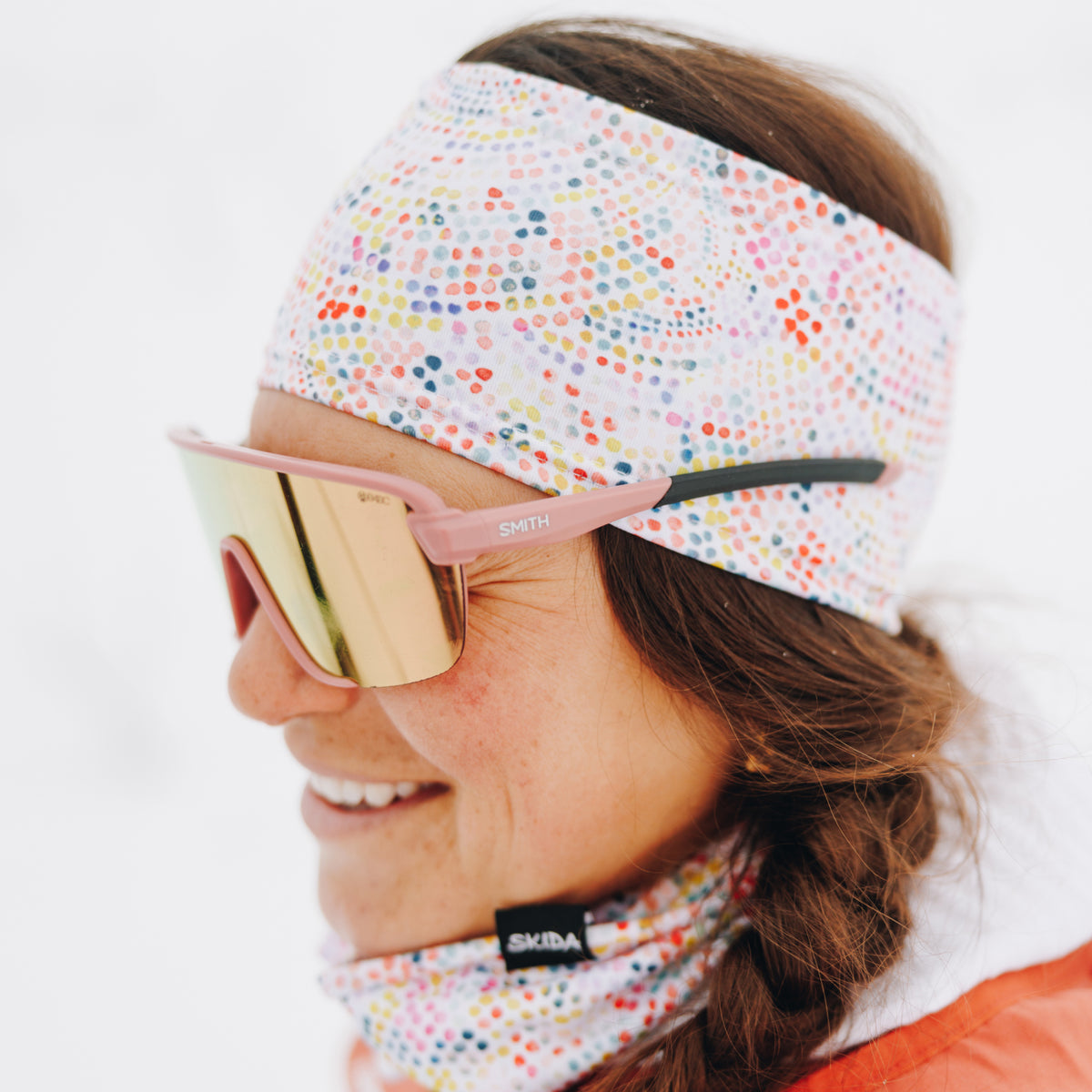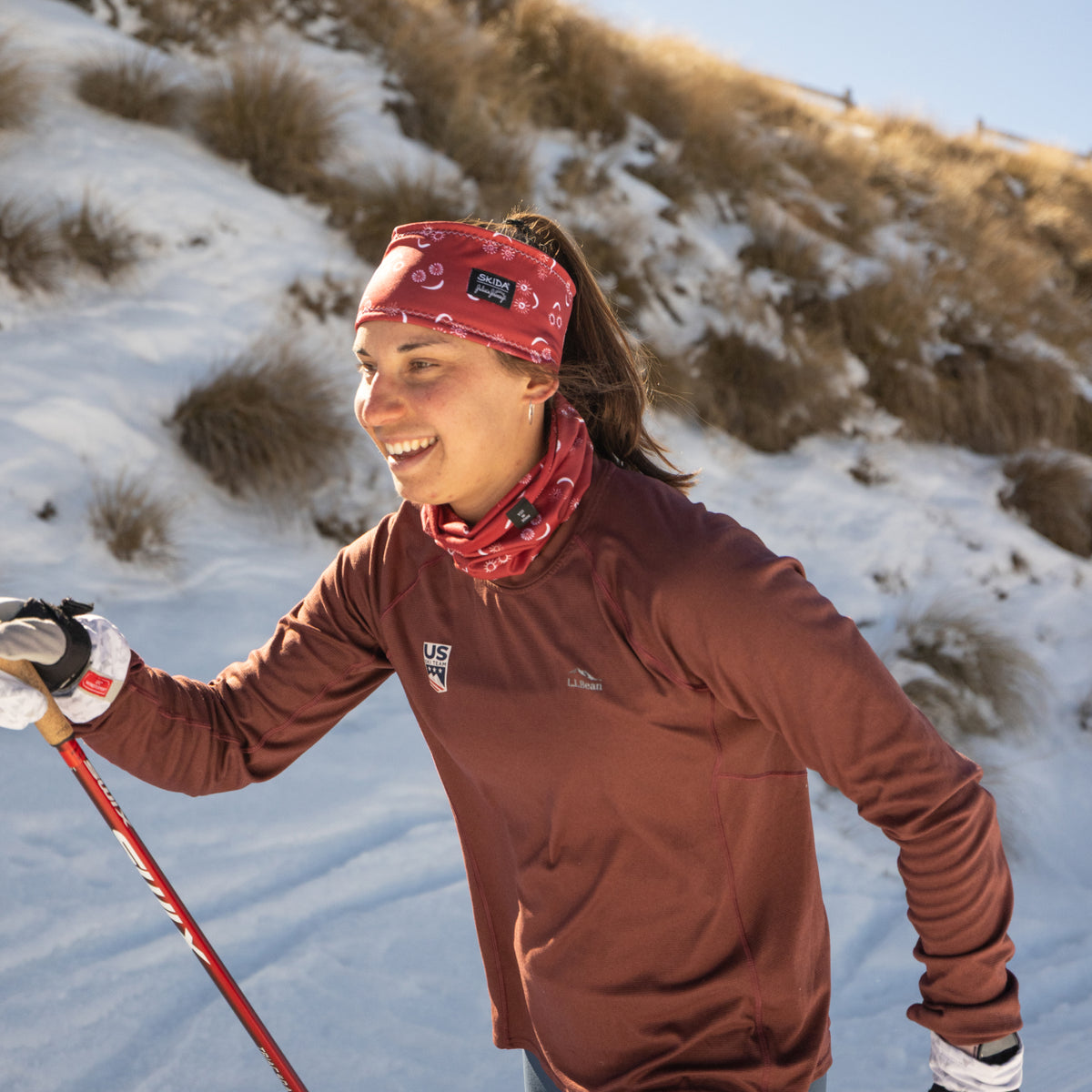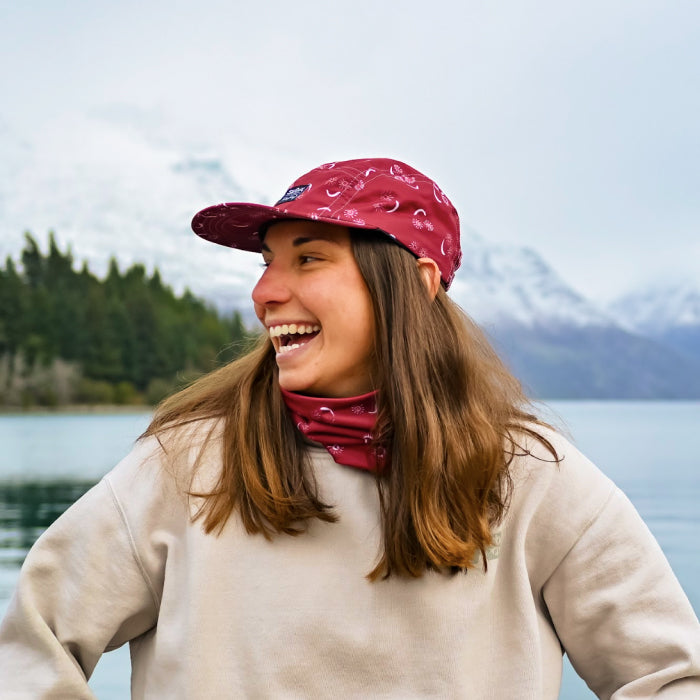
Meet the Athlete:
Julia Kern
A New Englander who found her home in Vermont, Julia Kern is a two-time World Championship medalist and a 2022 Olympian. Last season, she bagged fourteen top-20 finishes on the World Cup circuit. Read on to catch up on #JuliasJourney!
get to know julia kern
⚡️ Rapid Fire
- Favorite training snack: Gummy bears
- Your biggest cheerleader: My sister Nadja
- Favorite Skida print: Hot Stuff
- Favorite Skida product: High Pile Fleece Hat
- Favorite place to ski? Trapp Family Lodge
- Go-to rest day activity: Cooking projects
- A woman who inspires you: My mom
- Your special trick for staying warm: Packing and wearing all the layers I own, fuzzy layers
- The final song on your pump up playlist: We Belong, RAC Odezsa Remix
On the Olympics:
Personal Reflections
When did the Olympics first become a goal for you?
I remember as a young kid, I dreamed of becoming an Olympian someday. I recall having an Olympic swimmer Barbie I would play with in the bathtub at a young age, but I didn’t develop my dream of becoming an Olympic skier until my first year in college. When I was named to the U.S. Ski Team just before graduating from high school, it suddenly started to feel real, and I realized that I was on the path to making it a reality.
Are there any athletes in particular that inspired you to dream of becoming an Olympian? If so, what about them stood out to you?
I had a book that was all about historic Olympians of the 80s and 90s that I loved to read, including athletes like Carl Lewis, Mia Hamm, and Florence Delorez Griffith Joyner (Flo Jo). They were all world-class, doing incredible things in their sport.
What does competing in the Olympics mean to you personally?
The Olympics, for me, are the purest expression of what sport is all about — heart, resilience, and human connection. It’s the culmination of years of sacrifice, setbacks, and small victories that no one else sees. But what makes it truly powerful is standing on the start line knowing you're part of something so much bigger — surrounded by athletes from all over the world who’ve walked their own incredible paths to get there. We may come from different places, but in that moment, we’re all connected by the same passion. It’s not just about the race. It’s about everything and everyone who got you there.
What’s been the biggest challenge in your Olympic prep so far?
My biggest challenge has been keeping my body healthy. Being a professional athlete puts a lot of wear and tear on the body, and my body in particular likes to be finicky like a race car. I have been struggling with a back injury for many years that took a turn for the worse a year ago, and I have been working really hard to work through that and maintain more consistency in my training throughout the prep.
Has your perspective on competition or skiing changed as you've gotten closer to the Games?
My perspective on the Olympics has always been a little different from what people might expect. I’ve learned that there’s so much outside of our control — in the lead-up and at the Games themselves — that tying my entire self-worth to the outcome doesn’t feel right. Of course, I still dream of winning an Olympic medal one day, but I don’t see it as the ultimate measure of success. What matters most to me is showing up fully, racing with heart, and knowing I gave everything I had. If I can feel like I’ve raced to my potential on that stage, that’s enough. Everything during an Olympic year feels amplified — like someone turned up the volume on the radio. The noise, both good and bad, is still there... just louder. But at the end of the day, the Olympics are still just a ski race, and the same process, the same steps, have to happen to get there and to compete well.
What advice would you give to younger athletes who dream of making it to the Olympics?
My advice would be to keep playing as many sports as you enjoy for as long as you can. You never know what you might end up loving later on — I certainly didn’t — and the skills you build in those different sports will stay with you throughout your entire athletic journey. There will definitely be bumps along the way and challenges to overcome, but it’s in those tough moments that you learn the most about yourself and grow the most. Those moments aren’t easy, but I found that those are the moments that have set me apart. It is not about how you fall, but how you get back up, as cliché as it sounds!
"There’s something incredibly powerful about chasing a medal not just for yourself, but for each other — a true team effort, built on trust, belief, and heart."
-Julia Kern, Stifel U.S. Ski Team Athlete
The Milan-Cortina Games
Describe a particular moment at the Games you’re dreaming about.
I dream of two moments. The first is crossing the finish line with my family and friends there in person — the people who supported me every step of the way. To be able to share that moment with them, to look up and know we reached that dream together, would mean everything. The second is representing our team in a team event, where each of us races with everything we’ve got. There’s something incredibly powerful about chasing a medal not just for yourself, but for each other — a true team effort, built on trust, belief, and heart.
What are your sport-related goals for the Games? What are your non-sport-related goals for the Games?
Right now, my biggest goals on the sports side are to bring my best to the sprint and hopefully the team sprint—if I’m selected to race it. I’m aiming to make the sprint final and really put myself in the mix for a medal in the team sprint. That would mean a lot.
Outside of racing, I’m also excited about the little things that make the Olympics special—like collecting and trading pins with athletes from other countries. It’s such a fun way to connect and make new friends across teams and cultures.
Most of all, I want to be really present and soak in the whole Olympic experience. It’s so easy to get wrapped up in the competition mindset, but this is a once-in-a-lifetime opportunity. I want to appreciate every moment, not just the races, but everything that comes with being part of something this special.
What other athletes are you rooting for most during this Olympic season?
I am rooting for our whole U.S Ski Team, within the cross country team, as well as in other disciplines like the Women’s tech team (go Paula!). There are a few cross-country athletes from smaller nations who I have gotten to know over the years, and hearing the stories of how they made their journey is so inspiring, and I can’t wait to see them on that stage.
What are you most looking forward to about the Olympic experience—both on and off the snow?
I’m really excited to experience an Olympics with fans in the stands, especially at a venue that already feels familiar to me. I’ve always loved being in Italy, and getting to race there with a big, energetic crowd—I think that’s going to be unforgettable. It might sound simple, but one of my favorite things about the Olympics is just being able to turn on the TV and watch sports pretty much 24/7. There’s always something inspiring going on, and I love that energy.
What do you hope young skiers or fans watching back home take away from your journey to the Games?
I hope people take away that there isn’t just one path to get there, there is no “right” path, it is the path you forge. That path is never a linear upward trajectory, and part of the journey is figuring it out along the way. Although I have a fair share of setbacks in my career, I have found ways to work around it and keep believing in myself. Although the Olympics try to sell these inspirational stories around some of the best athletes that make things seem so easy and smooth sailing, every athlete has their battles along the way and it is okay to have yours too on your own journey. Also, to be fast you don’t have to be serious all the time, in fact I think when things are fun, you race faster and are happier! So keep it light and remember to have fun!
Helmets Off
What do you do to bring yourself joy during a big training block or during stressful parts of the season?
When I have the ability to cook, I like to cook a fun meal with loved ones or bake something tasty.I have been going to a lot of concerts this summer as well, I love live music! On the road, I often take out my camera and go for a walk and photograph, and appreciate the area around me that skiing has brought me to. And of course, calling friends and family to catch up so I continue to feel connected with people even if I am on the road many months of the year.
Are there any mental strategies you rely on when things get tough? If so, what are they?
I like to find the bright side :) When things get tough, I like to take a step back and think to myself, what can I learn or take away from this situation? Through injuries, I have found that a shift in perspective can help me appreciate what my body can do, or what in the situation is still good and work off of that. Sometimes it means finding the lesson out of the mistake or situation that is tough, and knowing that you learned something through the process.
How do you prepare to perform on race day? Do you have any rituals, lucky objects, or superstitions?
The more I race, the more I realize that some of my superstitions have accidentally been broken! Still, I like to be super prepared by packing every possible layer I might need—basically, I bring almost all the clothes I have with me on the road to make sure I’m ready for anything on race day.
I’ve developed a race-day packing routine that stays consistent: a mini race outfit to change into right before the start, along with snacks, water, drinks, and everything else I need.
Before I head out to ski, I like to visualize my warm-up and the race itself, always to the same song. It helps me get my mind focused and in the right place for how I want to execute the day.
If you had to sum up your approach to this Olympic year in three words, what would they be?
Quality, balance, consistency
A Few More Q's:
Tell us about this year’s print: what inspired it, and what element from it are you most excited about?
I chose a smiley face theme for this year’s print because I’ve been adding a smiley next to my name for years—on gear, clothing, skis—you name it. It started just for fun and became a little reminder to always smile.
An Olympic year felt like the perfect time to lean into that mindset and create something playful and true to me. I also wanted to try something bold with a deep red background and tie in the USA colors. From there, Jane Ogden helped bring it to life with sun-inspired smiley eyes that feel bright, happy, and full of good energy.
The U.S. women’s team is known for its camaraderie—what do you try to bring to that culture, and what does being part of a team mean to you?
I try to be a sounding board for my teammates and get to know who they are beyond skiing. We're more than just athletes—we’re people, and I want to support them in being their best selves.
On the road, it’s easy to only talk about skiing, so I love creating moments where we can connect as regular people. Honestly, I wouldn’t still be racing if it weren’t for this team. It’s not the results I remember most, but the funny, meaningful moments we share in between—the highs, the lows, and everything in between.
You’ve talked about loving the process just as much as the result—what part of this Olympic build-up has been most meaningful to you?
I moved to Richmond last year for a mix of reasons, and it’s brought a fresh perspective to my training and day-to-day life. While I was nervous at first to train more on my own—especially after being surrounded by such incredible teammates and coaches at SMS T2—it’s given me space to grow in new ways.
Training solo has let me try new things and make room for the parts of life I love outside of skiing—like spending more time with my boyfriend, going to friends' weddings, mountain biking, and focusing on physical therapy.. Rehabbing my back injury this year, that flexibility has really paid off—I have been able to work closely with my physical therapist and have seen big gains in both pain reduction and technique improvements. Now that I am able to train a lot more normally. I have been linking up with my SMS T2 teammates for camps so I can work closely with them, learning from one another and pushing hard.
You're active both as a member of POW and as an athlete representative to FIS. What motivates your advocacy work, and what do you hope to accomplish with it?
My purpose in skiing isn’t the results. It’s a lot more than that. And I think it is really helpful to be reminded: We’re doing this for more than just ourselves. I absolutely love ski racing. But to use that platform to make meaningful change, that is the purpose.
What motivates me is the belief that athletes have a voice in the systems that shape our sport—and that we can use our platforms to push for positive change beyond it.
As a FIS athlete rep, my goal is to bring the athletes' voice into the decision-making process and to encourage athletes to share their feedback—because their perspective truly matters. This role has given me a much deeper appreciation for everything that happens behind the scenes to make a World Cup possible, and it’s also empowered me to help drive change at a higher level within the sport.
With Protect Our Winters, it’s about standing up for the places we train and compete in—the mountains, snow, and environment we rely on and enjoy.. Climate change is already affecting our sport, and it’s important to me to be part of the solution, even in small ways. This past season, these two roles collided at World Championships, showcasing the importance of the athletes' voices.
At the end of the day, I love ski racing, but what gives it real meaning is being part of something bigger—supporting each other as athletes, protecting the planet we love, and leaving the sport better than we found it.
When you’re not skiing, it seems like you’re often behind a camera, seeking waves in the ocean or otherwise finding ways to play outside. How do you balance your passions and diverse interests as you prepare for the Olympics?
A lot of planning—haha! I try to build time into my schedule to visit my family in California, which luckily also means some beach time and chasing waves. Over the years, I’ve learned that mental and physical recovery is just as important as training. Taking that time helps me stay balanced and avoid burnout during a long season.
My time behind the camera definitely comes in waves—I often get busy and don’t make as much time for it as I’d like. But when I do, it really sparks my creative side and brings me a lot of joy. Thankfully, our training keeps us outside a lot, so I try to incorporate surfing, mountain biking, and photography into my routine in fun and creative ways when I can.
Is there anything from your New England roots—family traditions, food, mindset—that still shows up in your racing today? If so, what and how?
Growing up in New England, I have skied in my fair share of bad conditions or small loops. I definitely don’t mind rainy or bad weather days, and I like to convince myself that this is a leg up on the others on the less-than-ideal race days. I also love some Vermont maple syrup, which often finds its way into my tea, water bottle, toast, or yogurt on the road. The New England ski community always made sure that Eastern Cup weekends were about more than just racing fast—they were about having fun. That spirit stays with me, so I’ll keep smiling on race days. You don’t have to be serious all the time to ski fast.

